
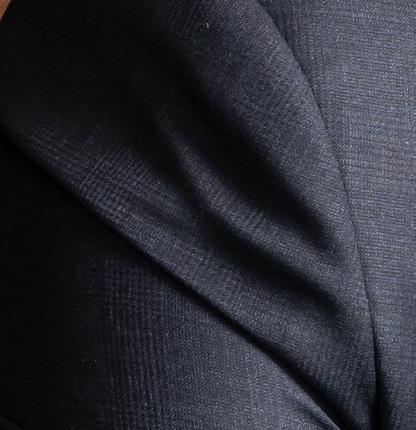




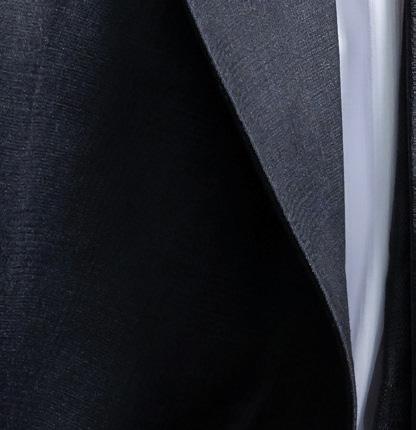



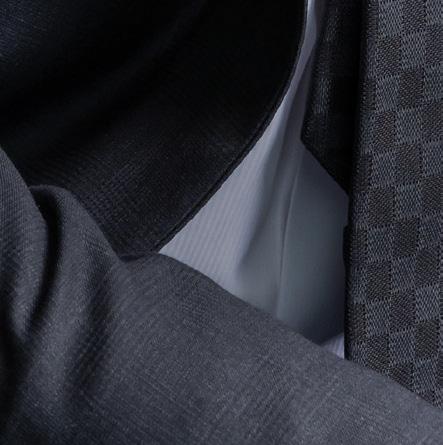






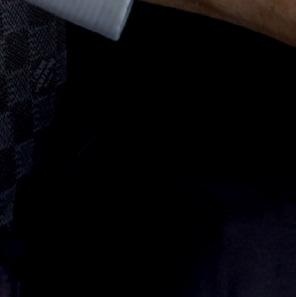







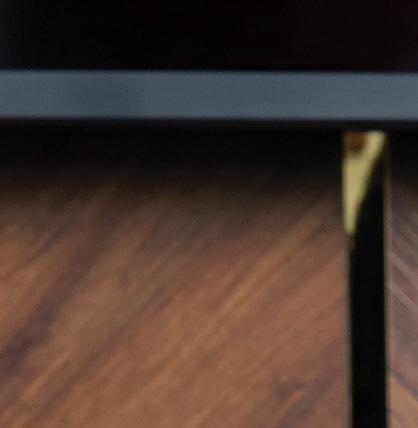
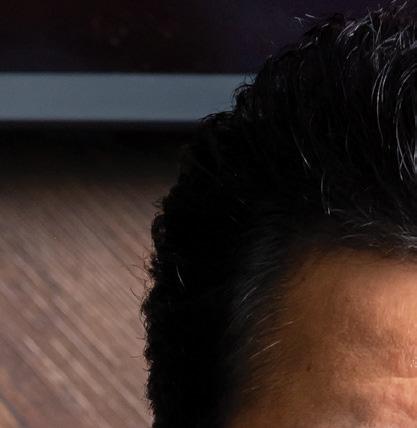
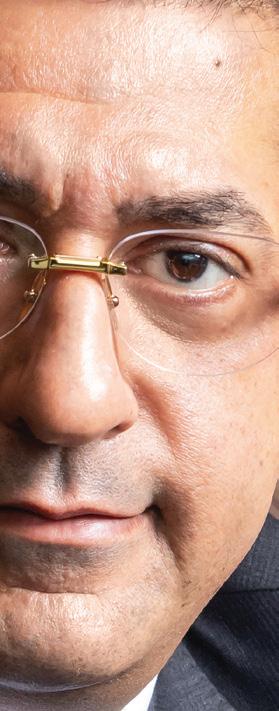

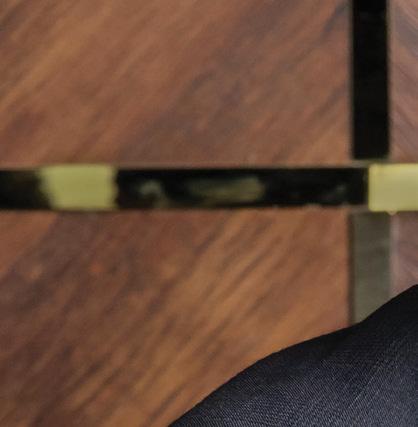
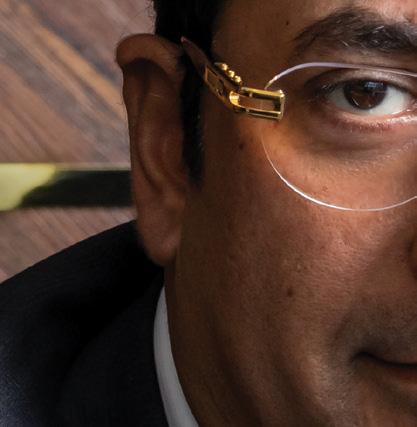



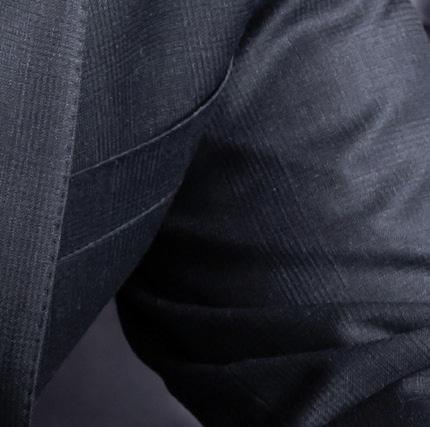

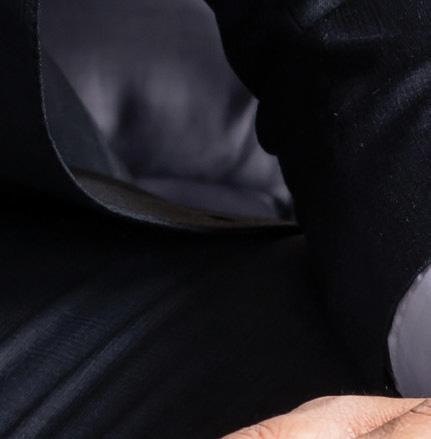
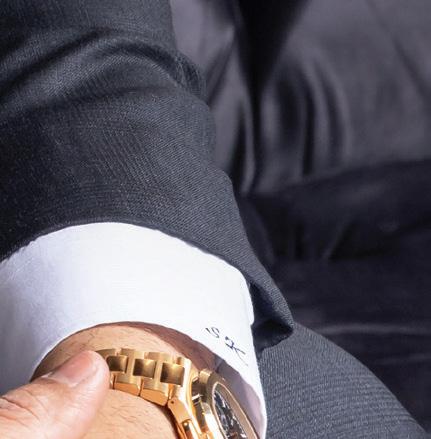


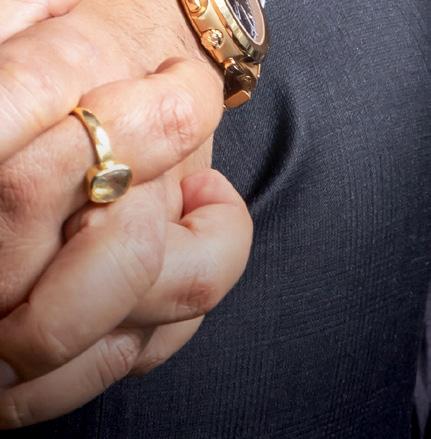



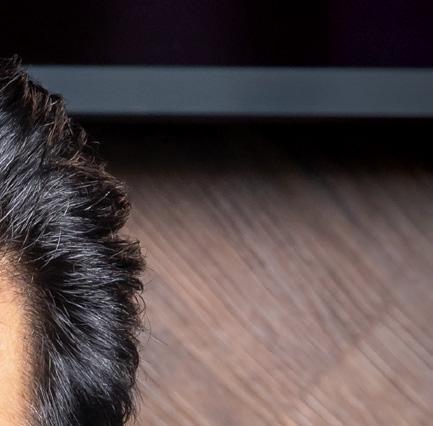
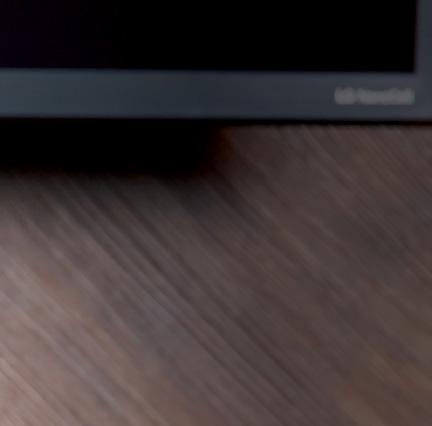
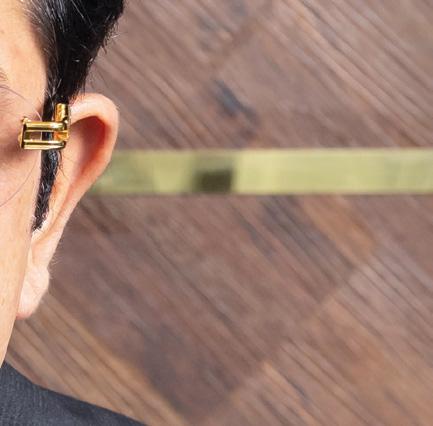



SPECIAL REPORT FROM ELECTRIC TO AUTONOMOUS, THE FUTURE OF CARS SHOWCASED LUXURY CONCIERGE REAL ESTATE'S SHITIJ KAPOOR TELLS US WHAT IT TAKES TO THRIVE IN THE UAE'S COMPETITIVE REAL ESTATE MARKET P.38 RIDING THE DIGITAL WAVE: Neobanks are disrupting the region's banking sector P.67 THE RISE OF THE ECOPRENEUR: How startups can play a profitable role in the rising green tide BD 2.10 KD 1.70 RO 2.10 SR 20 DHS 20 gulfbusiness.com / OCTOBER 2023
THE RIGHT MOVES








30






DRIVEN BY CORE VALUES


Shitij Kapoor, founder and CEO of Luxury Concierge Real Estate, shares how the company’s success is founded on key partnerships and factors that make the brokerage a preferred choice with investors

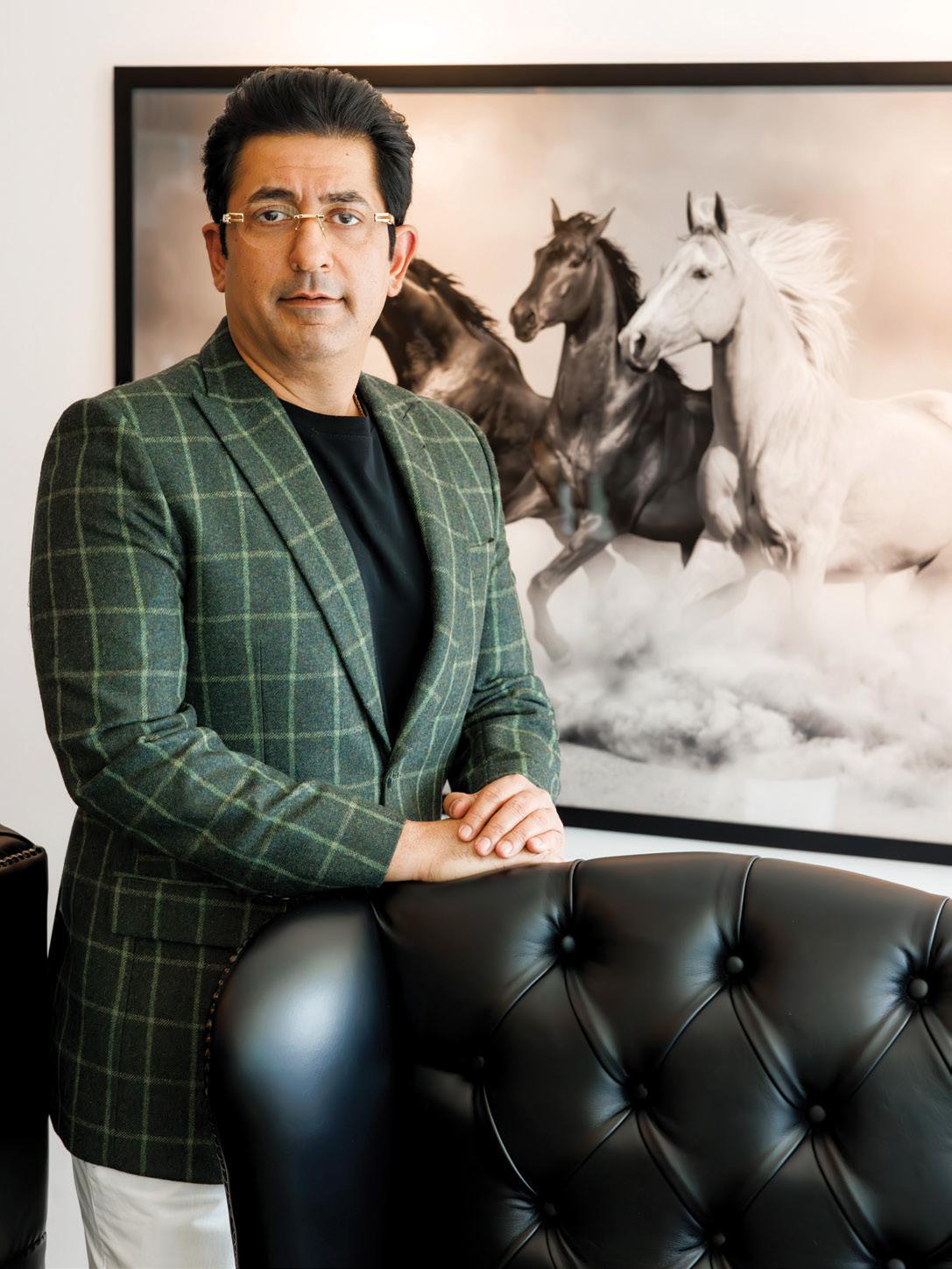
43









What does the future of automobiles look like?


From electric and self-driving cars to innovative new designs and materials — we look at the trends disrupting the auto industry
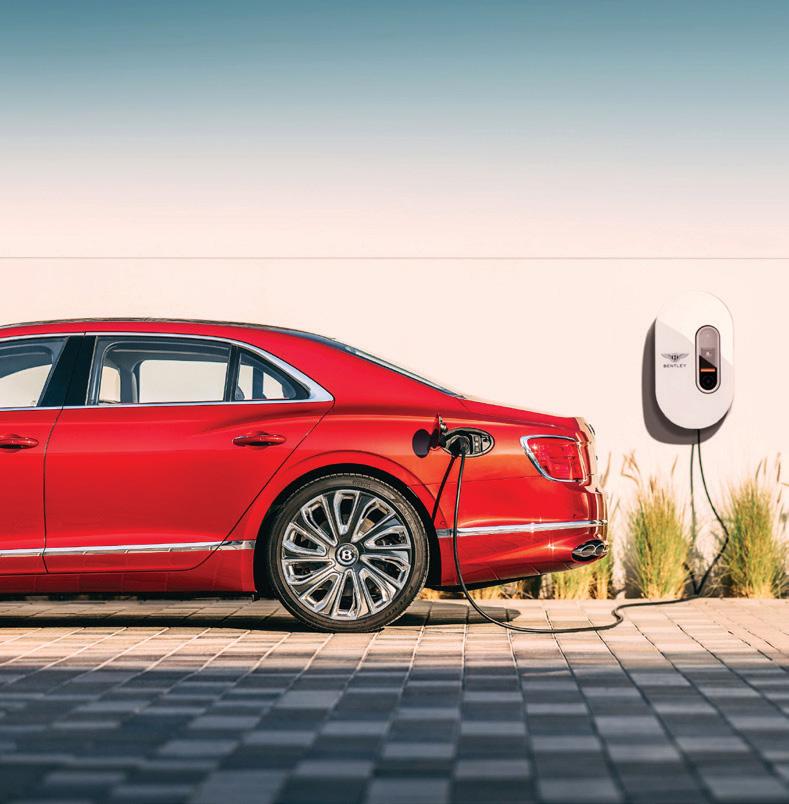
gulfbusiness.com 4 October 2023
CONTENTS / OCTOBER 2023
Gulf Business
07 The brief An
the
and
with
and
Pic: Supplied Illustration: Getty images/kmlmtz66 Pic: Supplied
insight into
news
trends shaping the region
perceptive commentary
analysis
Calling all podcasters and content creators!










Whether you are looking to record, edit or manage your podcast, our fully equipped podcast and video recording studio has it all.

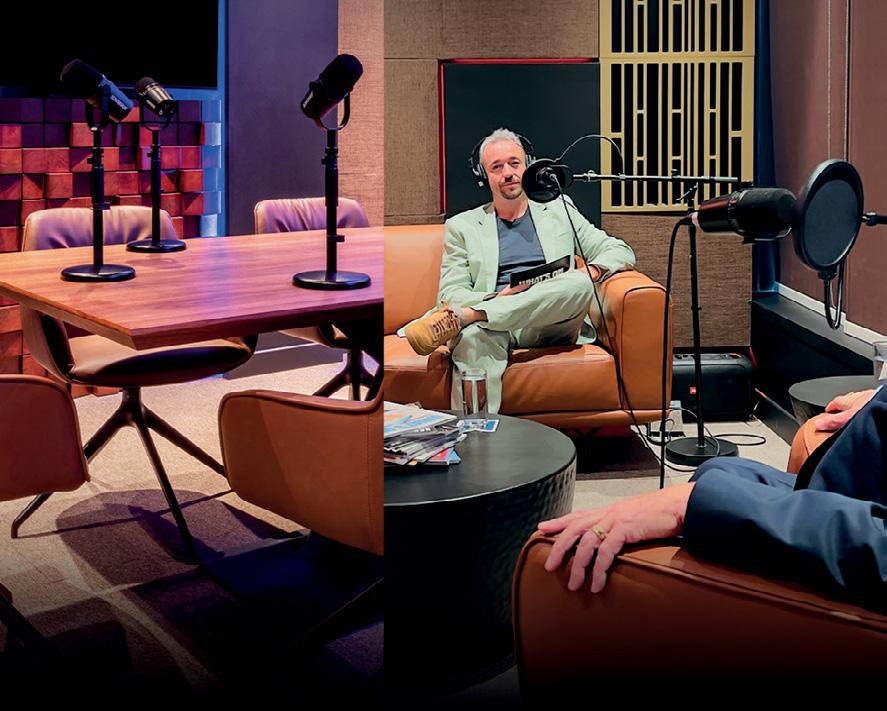


+971 4 427 3000 | podcast@motivate.ae
YOUR STUDIO motivatemedia.com
BOOK
CONTENTS / OCTOBER 2023
59 Lifestyle
Sleep easy: The Mattress Store, a sleep and comfort retailer, wants you to enjoy your deep slumber p.61

The magic of masks: Homegrown skincare brand GLIST’s luxurious sheet masks are perfect to pamper your skin p.62
“Honestly, I see myself as an astronaut ready to go on any mission. Personally, I would love to go to the Moon and to Mars, if possible. I don’t think it is going to happen soon to Mars. The lunar mission is closer, accessible”
Sultan Al Neyadi, UAE astronaut
67 The SME Story
Interviews with entrepreneurs and insights from experts on how the regional SME ecosystem is evolving
Editor-in-chief Obaid Humaid Al Tayer
Managing partner and group editor Ian Fairservice
Chief commercial officer Anthony Milne anthony@motivate.ae
Publisher Manish Chopra manish.chopra@motivate.ae
Editor Neesha Salian neesha.salian@motivate.ae
Digital editor Marisha Singh marisha.singh@motivate.ae
Tech editor Divsha Bhat divsha.bhat@motivate.ae
Senior feature writer Kudakwashe Muzoriwa
Kudakwashe.Muzoriwa@motivate.ae
Senior art director Freddie N. Colinares freddie@motivate.ae
Senior art director Olga Petroff olga.petroff@motivate.ae

General manager – production S Sunil Kumar
Production manager Binu Purandaran
Production supervisor Venita Pinto
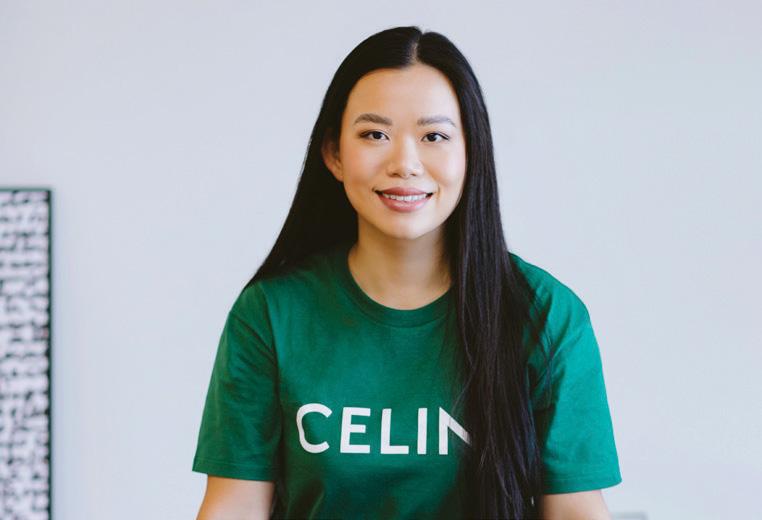
Senior sales manager Sangeetha J S Sangeetha.js@motivate.ae
Group marketing manager Joelle AlBeaino joelle.albeaino@motivate.ae
Cover: Freddie N Colinares
gulfbusiness.com 6 October 2023
HEAD OFFICE: Media One Tower, Dubai Media City, PO Box 2331, Dubai, UAE, Tel: +971 4 427 3000, Fax: +971 4 428 2260, motivate@motivate.ae DUBAI MEDIA CITY: SD 2-94, 2nd Floor, Building 2, Dubai, UAE, Tel: +971 4 390 3550, Fax: +971 4 390 4845 ABU DHABI: PO Box 43072, UAE, Tel: +971 2 677 2005, Fax: +971 2 677 0124, motivate-adh@motivate.ae SAUDI ARABIA: Regus Offices No. 455 - 456, 4th Floor, Hamad Tower, King Fahad Road, Al Olaya, Riyadh, KSA, Tel: +966 11 834 3595 / +966 11 834 3596, motivate@motivate.ae LONDON: Acre House, 11/15 William Road, London NW1 3ER, UK, motivateuk@motivate.ae
us on social media: Linkedin: Gulf Business Facebook: GulfBusiness Twitter: @GulfBusiness Instagram: @GulfBusiness
Follow
Pics: Supplied
gulfbusiness.com October 2023 7 Islamic Finance 08 Construction 10 Sustainability 16 Governance 18 Alan’s Corner 24 OCT 23 The Brief SAUDI HNWI* VIEWS ON DUBAI’S RESIDENTIAL MARKET 5/10 6/10 SOURCE: SOURCE: KNIGHT FRANK, YOUGOV *High-Net-Worth Individual (HNWI) Is the insurance sector ready for change? Insurance solutions are leveraging disruptive tech and becoming more personalised to stay relevant to customers p.12 ILLUSTRATION: GETTY IMAGES/ ZHUWEIYI49 Keen to purchase a branded residence in Dubai 8/10 1/10 Keen to purchase a residential property in Dubai Parks are the most important consideration when purchasing a property Would be less likely to buy a property in Dubai should a casino open
On a rising trajectory
$49bn in sukuk issued during Q2 alone in the core Islamic markets of the Gulf Cooperation Council, Malaysia, Indonesia, Türkiye and Pakistan. Fitch rates around 70 per cent of the global outstanding sukuk in hard currencies.
Macro developments, such as rising interest rates, volatile oil prices and additional layers of shariacompliance complexities, didn’t deter its growth. Quarterly sukuk issuance was up by 10 per cent on the previous quarter, bucking the trend the rest of the bond market experienced in the same markets, which fell by almost 5 per cent.
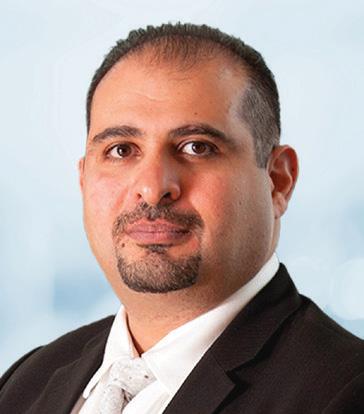
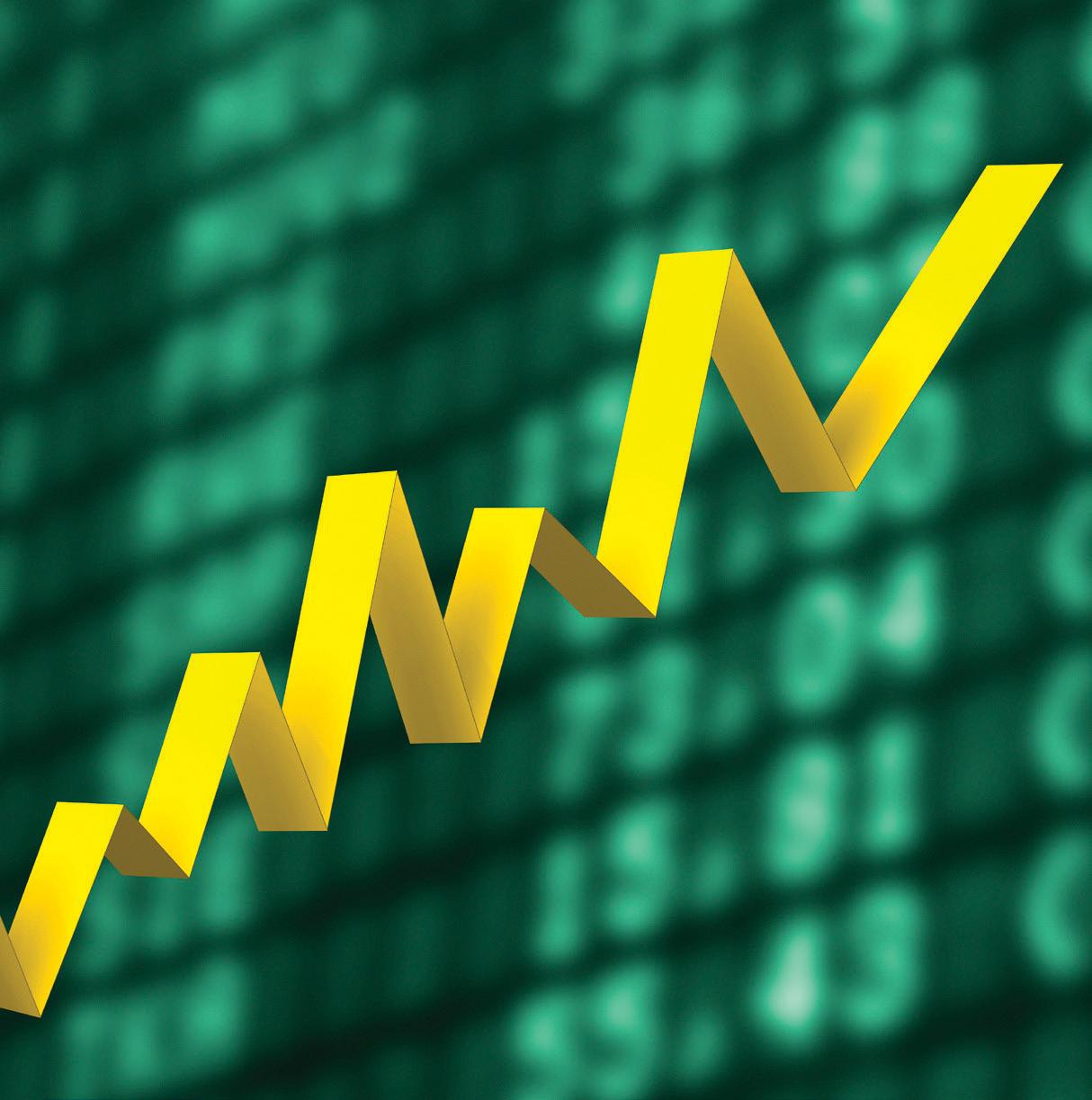
Sovereigns and supranationals were the largest issuers of sukuk in the quarter, followed by corporates and financial institutions. Local currency issues held 75.2 per cent of the total outstanding sukuk. Sukuk remains a sizable part of emerging market debt issuance (excluding China), with its share reaching 6 per cent in H1 23.
Sukuk defaults remained minimal at only 0.21 per cent of all issued sukuk, with a number of distressed issuers and investors preferring out-of-court consensual restructurings. Hence, there is a lack of restructuring and legal precedents relating to effective enforcement, despite the growth of the global sukuk market over the past decade.
Most Fitch-rated sukuk continued to be investment-grade, at 79 per cent of outstanding volumes, with 12.6 per cent of issuers displaying a positive outlook, and 77.5 per cent having a stable outlook at the end of Q2.
ESG SUKUK IN THE YEAR OF COP28
The global Islamic finance industry is on a growth trajectory, with its assets estimated to have crossed $3.3tn as of H1 2023 despite multiple headwinds. The first half of the year saw a strong uptake in the global sukuk markets, with a diverse range of issuers, currencies and geographies, in addition to larger volumes. Yet global sukuk supply still remains limited compared with demand from investors.
MARKET PROFILE
Outstanding sukuk volumes crossed $800bn for the first time in Q2 this year. This was driven by over
The volume of outstanding environmental, social, and governance (ESG) sukuk reached $30.5bn at the end of Q2, a significant 22 per cent rise quarteron-quarter. This included over $3.5bn issued in the quarter in the core markets of the GCC, Malaysia and Türkiye, up 124 per cent from the previous quarter.
ESG sukuk issuers are mainly from Saudi Arabia, UAE, Indonesia and Malaysia. However, ESG debt development, as well as debt capital markets in general, lagged in most other core Islamic markets.
MULTIPLE MILESTONES IN 2023
A wave of diverse instruments swept international markets in H1 2023, such as the largest-ever sukuk from a US-based corporate issued by Air Lease Corporation (rated BBB by Fitch Ratings).
gulfbusiness.com 8 October 2023
The Brief / Islamic Finance
The medium-to-long-term outlook for the global sukuk market is positive, supported by issuers’ funding diversification push and refinancing needs
COMMENT
ILLUSTRATION: GETTY IMAGES/ ARTPARTNER-IMAGES
In the UAE, we witnessed the government’s first Emirati dirham-denominated treasury sukuk and the first UAE-dirham sukuk issued by a UAE bank (A+).
Egypt also debuted a $1.5bn sovereign sukuk and the first ever project-finance sukuk was issued by GreenSaif Pipelines (A+).
The world’s largest Islamic bank, Al Rajhi Bank, also marked an entry of their inaugural US dollar sustainable sukuk (A-). Another entry was the first Kazakhstani tenge sukuk (A+) issued by the Islamic Corporation for the Development of the Private Sector.
Mexican officials are also currently in exploratory talks to issue sukuk.
PRICING AND INVESTOR CREDIT RISK PERCEPTION
The pricing of most sukuk and comparable bonds continued to be similar and highly correlated in H1 2023, with this trend likely to persist. However, analysis shows periods of global volatility or sukuk-specific developments, where the correlation between sukuk and bond yields fell and average spreads expanded, albeit temporarily.
REGUL ATORY INITIATIVES
Regulatory initiatives could help create a more enabling ecosystem for Islamic finance. For example,
SUKUK* VOLUMES BY SECTOR IN Q2 2023
Fitch rates more than 80 per cent of the ESG sukuk market in hard currencies
Saudi Arabia’s Capital Market Authority announced a cancellation of its share in sukuk and bonds trading commission as of May 2023, to help reduce costs for market participants and increase liquidity.
In UAE, the Securities and Commodities Authority issued regulations exempting companies wishing to list their green or sustainability-related sukuk or bonds in a local market from registration fees for 2023. The Higher Sharia Authority of the Central Bank of the UAE still requires sukuk issuers, investors and arrangers in the UAE to comply with AAOIFI sharia standards.
FUTURE OUTLOOK
However, in the short-term sukuk as a whole is expected to slow in Q3, coinciding with summer vacations in many countries, before picking up pace again in Q4. The medium-to-long term outlook for global sukuk market is positive, supported by issuers’ funding diversification push and refinancing needs, as well as a continued Islamic investor demand.
ESG sukuk remains a promising subsegment and we expect it to remain a key issuance theme during H2 and beyond amid the government initiatives promoting sustainability and economic diversification.
ESG sukuk currently accounts for 3.8 per cent of global outstanding sukuk, and we expect this share to almost double to 7.5 per cent by 2028.
gulfbusiness.com October 2023 9
ESG sukuk outstanding out of total ESG bonds and sukuk – Q2 2023 COUNTRY % BAHRAIN 100 SAUDI ARABIA 54 MALAYSIA 52 UAE 43 INDONESIA 23 TÜRKIYE 4 GCC COUNTRIES 51
Hard-currency
S OVEREIGN/ SUPRANATIONAL CORPORATES AND OTHERS FINANCIAL INSTITUTIONS STRUCTURED FINANCE INFRASTRUCTURE AND PROJECT FINANCE 59% 4% 2% INTERNATIONAL PUBLIC FINANCE 2% 16% 17% *Fitch rated sukuk
Bashar Al-Natoor, global head of Islamic Finance at Fitch Ratings
Setting the foundation for sustainability

Construction demand and activity in the Middle East is booming as governments across the region drive investment in business and tourism, while diversifying markets’ economies away from fossil fuels. Developments are growing not only in number but in size and complexity, with increasing investment in major programmes and ‘giga-projects’ such as Saudi Arabia’s NEOM.
While this growth paints an exciting picture for the future prosperity of the region’s societies, it poses significant challenges for the progress of sustainability and decarbonisation. Delivery of some of the world’s largest, most ambitious projects will be carbon intensive and place pressure on resources, particularly on water, energy supplies and material availability. However, the investment also poses an opportunity for the Middle East to start to place sustainability at the core of development and lead the way on the global stage. We know the appetite from the industry is there. Turner & Townsend’s Building a sustainable future in the Middle East report recently found that a majority of developers, investors, consultancies and
government bodies in the region are now discussing sustainability requirements from the outset –at the project briefing stage. Less encouraging is that fewer than half are then translating these considerations through to operation, meaning that the potential impact is not being fully realised.
It’s clear there’s awareness of the importance of sustainability but the challenge is understanding how that translates to action and impact.
GEARING UP FOR CHANGE
There are reasons to be optimistic that change is afoot, with political pressure building to bridge the gap between ambition and delivery.
Later this year, the UAE will hold the Conference of the Parties of the UNFCCC (COP28) in Dubai. This will offer a time for political and business leaders to reflect on progress made and plan further action. With the eyes of global governments and investors on the UAE and the wider region, we should expect significant, wide-reaching and potentially rapid change in regulation surrounding sustainability requirements.
gulfbusiness.com 10 October 2023
The Brief / Construction COMMENT
As global investment strategies focus on tightening ESG criteria, it’s increasingly essential that development projects align with sustainability requirements
ILLUSTRATION: GETTY IMAGES/ SERGEYTIKHOMIROV
Though most construction businesses agree that government incentives and regulation would help fast-track progress towards decarbonisation, there will be significant ground to make up. Our data shows that the majority of existing projects don’t exceed current minimum regulatory requirements.
That matters because it creates risk both for new and existing assets. As global investment strategies focus on tightening ESG criteria, it’s increasingly essential that development projects can demonstrate their alignment with sustainability requirements. The same trend applies for established assets which are becoming less attractive to investors, occupiers and end users unless they can be upgraded or retrofitted.
SETTING PROJECTS UP FOR SUCCESS
Sustainability, as with any other project outcome, should be considered from the outset to have the best chance of success. This means integrating it into the procurement process, making sustainability a core decision driver alongside cost, quality and delivery.
This is particularly vital when it comes to developers tracking, understanding and ultimately reducing Scope 3 emissions – those which are produced not directly by the organisation itself, but by partners and suppliers throughout its value chain. Awareness around Scope 3 emissions is growing across the sector but more action is needed to fully get a hold on what, for most developers, will make up the majority of emissions. Feeding requirements, from material provenance and fuel usage on site to water efficiency and operational carbon in operation, into prequalification and tenders will help first to ensure minimum conditions are met. By engaging the supply chain early on, we will be able to achieve more in a shorter timeframe and in a more cost-effective way than would be the case by retrofitting sustainability goals into a project at a later stage.
More importantly, in the longer term, a focus on sustainability requirements within procurement will encourage the standardisation of emissions reporting, building greater transparency around and understanding of current performance and potential improvements.
ASSESSING THE WHOLE LIFE IMPACT OF PROJECTS
While regulatory change is expected to come as a result of COP28, we can’t yet say what form this will take. Even as new regulations become clear in the coming months, these will of course continue to evolve well beyond this year’s climate conference –as will consumer needs driving the use of buildings and infrastructure.
Assets will need to flex with these developments. To ensure they’re sustainable, usable and profitable in the long term, clients must broaden their approach to a project’s sustainability credentials, undertaking whole life assessments to consider the full impact throughout its lifecycle.
A great example is Expo City in Dubai, which took this approach from the outset of the project. The project team assessed the nature and purpose of the development not just for its main purpose of Expo 2020, but how it would then need to adapt following the event. The site has since transitioned into an innovative ‘city of the future’. Its environmentallyfriendly residential, leisure and commercial space will help to attract businesses, citizens and tourists, support sustainable growth and reinforce Dubai as a global destination.
Whether it’s a large-scale development zone or an individual residential building, we need to understand how the asset may need to be transformed to suit future requirements and what impact these changes may have on emissions and natural resources.
LOOKING BEYOND COP28
Increased regulation is needed to drive positive change across the Middle East’s construction sector and should be welcomed. COP28 is set to be the catalyst for this.
It will inevitably come with its challenges for the whole supply chain, particularly given change is likely to be introduced quickly. We need to see a shift in approach with sustainability being brought to the fore – not just in theory during the design phase, but in practice throughout construction and operation.
As investor appetite grows for future-proofed, sustainable assets, we have an imperative to act. However, we should also see this as a brilliant opportunity – to create jobs, deliver economic growth and secure a green, healthy future for the Middle East.
gulfbusiness.com October 2023 11
Lindsey Malcolm, sustainability lead at Turner & Townsend Middle East
“DELIVERY OF SOME OF THE WORLD’S LARGEST, MOST AMBITIOUS PROJECTS WILL BE CARBON INTENSIVE AND PLACE PRESSURE ON RESOURCES, PARTICULARLY ON WATER, ENERGY SUPPLIES AND MATERIAL AVAILABILITY”
A MAJORITY OF DEVELOPERS, INVESTORS, CONSULTANCIES AND GOVERNMENT BODIES IN THE REGION ARE NOW DISCUSSING SUSTAINABILITY REQUIREMENTS FROM THE OUTSET – AT THE PROJECT BRIEFING STAGE
Insuring its future
Over the years, the insurance sector in the GCC region has undergone a remarkable evolution. We have witnessed a significant shift from a mandatory and more traditional focus on motor and health insurance to a more diverse range of offerings.
Today’s insurance players provide comprehensive coverage for health, life, and specialised sectors, tailored to the unique needs of diverse customer segments, with personalisation becoming a major focus.
According to research conducted by investment banking advisory firm Alpen Capital, the insurance industry in the GCC region is projected to grow from $26.5bn in 2021 to $31.1bn in 2026. This trend can be attributed to several key drivers.
Firstly, the region’s expanding population creates an increased demand for insurance coverage across various sectors. Furthermore, regulatory reforms have created a more competitive landscape, attracting foreign investments and promoting innovation. The rising awareness of the importance of insurance among individuals and businesses, coupled with the region’s economic diversification efforts, has further fuelled the sector’s growth.
While insurance companies will always retain the role of society’s risk managers that instil confidence

gulfbusiness.com 12 October 2023
The Brief / Insurance COMMENT
We explore how disruptive technologies are reshaping the insurance landscape
ILLUSTRATION: GETTY IMAGES/ ERHUI1979
Martin Rueegg, group CEO of NLGIC Group (to be rebranded as Liva)
in people to live the life they want, the way insurance solutions are built and delivered is evolving, and so are the products themselves. For example, driverless cars come with a very different set of risks than we have been used to with conventional cars, and the industry needs to respond to this change.
HOW TECH IS TRANSFORMING THE SECTOR
So how can insurance players keep pace with the ever-changing landscape? This is a simple yet difficult question. The most effective way is investing in advanced technology, combined with adopting a customer-centric approach.
Innovation is at the heart of the industry. Technology makes customers’ lives easier while driving efficiency, transparency, and agility for insurers and partners. Digital channels allow customers to easily purchase policies, manage claims, and access support, providing them with unprecedented convenience and a seamless experience.
Additionally, the integration of internet of things (IoT) devices enables companies to gather valuable data to gain insights into customer preferences and behaviours with the aim of developing even more personalised insurance solutions through accurate underwriting. Meanwhile, regular customer feedback and market research help them to proactively adapt to changing needs. Other topics, such as cybersecurity and data privacy, are very much at the centre of any insurance operation to ensure the utmost protection for policyholders.
Disruptive technologies are reshaping the industry as we know it. Artificial intelligence and machine learning algorithms have become integral in automating underwriting and claims processing, streamlining operations and ensuring faster service delivery. Moreover, the adoption of telematics and IoT devices allows insurance companies to offer usage-based policies and obtain real-time data for accurate risk assessment. Parametric insurance is a prime example of an area which disruptive technologies are truly redefining by supporting the creation of products that automatically arrange payments based on certain events. For instance, if a flight is delayed by more than three hours, the customers receive compensation paid straight into their bank accounts without having to do anything.
A HOLISTIC APPROACH
Today, the role of insurance players transcends risk transfer through an insurance contract. In this dynamic landscape, companies are starting to look beyond insurance to build holistic ecosystems of solutions that safeguard all aspects of people’s lives. Making data and information available to prevent events is just as important as insuring them. For example, insurers can share the insights gained out of the millions of records they have, providing support and guidance to people and organisations along their journeys. To remain relevant well into the future, insurance companies must serve as trusted partners to their customers, empowering them to navigate an ever-changing world with confidence.
gulfbusiness.com October 2023 13
THE INSURANCE INDUSTRY IN THE GCC REGION IS PROJECTED TO GROW FROM $26.5BN IN 2021 TO $31.1BN IN 2026 $26.5BN $31.1BN 2021 2026
“REGULATORY REFORMS HAVE CREATED A MORE COMPETITIVE LANDSCAPE, ATTRACTING FOREIGN INVESTMENTS AND PROMOTING INNOVATION. THE RISING AWARENESS OF THE IMPORTANCE OF INSURANCE AMONG INDIVIDUALS AND BUSINESSES, COUPLED WITH THE REGION’S ECONOMIC DIVERSIFICATION EFFORTS, HAS FURTHER FUELLED THE SECTOR’S GROWTH”
Unlocking opportunities


Blockchain technology can help address the pressing challenges faced by carbon credits in the non-compliance market




The idea of ‘stressed assets’ has taken on a new meaning in today’s quickly changing global economy. Traditionally associated with financial organisations dealing with non-performing loans, this phrase was eventually broadened to cover assets that are misunderstood, mishandled, or underutilised.
Carbon credits, the key tool at our disposal to e ectively reduce emissions by putting a price on pollution, are at the vanguard of this disruptive asset class. As we plunge deeper into the realm of stressed assets, it becomes clear that carbon credits, particularly in the non-compliance market, are confronted with hurdles that impede their potential.
Stressed assets, in the context of our discourse, refer to resources that are undervalued or mismanaged, thereby missing their potential contributions.
CHALLENGES FACED
Carbon credits, o ten linked to emissions reductions and environmental sustainability, have become a prime example of such stressed assets. Despite its promise, this asset class has obstacles that prevent it from serving its full potential in the non-compliance market.
A significant obstacle involves the limited comprehension surrounding carbon credits. Many stakeholders, including businesses and individuals, feel doubtful or perplexed about the mechanics and benefits of carbon credit trading.

This misperception is further exacerbated by the lack of trust in the current system. Scepticism abounds due to concerns about authenticity, accountability, and credibility within the carbon credit market. Moreover, the lack of transparency
DESPITE ITS PROMISE, THIS ASSET CLASS HAS OBSTACLES THAT PREVENT IT FROM SERVING ITS FULL POTENTIAL IN THE NON-COMPLIANCE MARKET

gulfbusiness.com 14 October 2023 The Brief / Carbon Credits COMMENT
ILLUSTRATION: GETTY IMAGES/ CEMILE BINGOL
across a fragmented lifecycle and processes has hindered effective decision-making and use of the credits, thereby stifling the growth of this asset class.
Numerous instances showcase the significant influence of carbon credits along with the situations where their envisioned potential has not been fully realised.
The European Union Emissions Trading System (or EUETS) has experienced achievements as well as drawbacks. While it has effectively prompted the reduction of emissions in various industries throughout the continent, the occurrence of deceitful issuance of carbon credits has tarnished its standing.
CREATING POSITIVE IMPACT
In contrast, voluntary carbon offset projects, such as reforestation initiatives in developing countries, have highlighted the potential for positive impact. However, these projects often struggle to attract sufficient investment due to the challenges.
New tech platforms provide an innovative answer that addresses the pressing challenges faced by carbon credits in the non-compliance market. By harnessing the power of blockchain, technology platforms aim to establish a transparent, reliable, and united ecosystem for carbon credit trading.
This technology will not only instil trust but also enable transparency and collaboration across a streamlined platform for the tokenisation of carbon credits, unlocking their full potential.
Transparency, accountability, and reliability are the cornerstones of modern technology that successfully demolish the pressures that have been holding back carbon credits. Every transaction and credit route can be traced and validated as a result of the blockchain’s intrinsic openness, removing worries about legitimacy.
Rishi Vaidya, head of partnerships and marketing at Carbo-X
CARBON CREDITS EMBODY INNOVATION, COLLABORATION, AND RESPONSIBLE INVESTMENT, DRIVING BOTH FINANCIAL RESILIENCE AND A LOW-CARBON ECONOMY
A unified platform connects buyers and sellers, resulting in a more integrated market with less fragmentation. Furthermore, such platforms’ commitment to accountability ensures that credits are backed by genuine, verifiable emission reductions, addressing the trust gap that has plagued this asset class.
CATALYSTS FOR CHANGE
Focusing on carbon credits’ significance reveals the potential to be catalysts for change across various sectors. Beyond tokens; they embody innovation, collaboration, and responsible investment, driving both financial resilience and a low-carbon economy. By diversifying revenue streams, companies can safeguard their financial future while contributing to a low-carbon economy.
Industrial operations, too, stand to benefit, as carbon credit adoption can revitalise processes, making them more efficient and sustainable. Carbon credits, in the broader scale of things, can be the trigger for a shift in fundamental assumptions, transcending their status as stressed assets. By embracing these credits, industries can help power the transition to a low-carbon economy.
Carbon credits have languished as stressed assets for too long, trapped by challenges that obscure their true potential. The introduction of blockchain technology, on the other hand, gives a transformational chance to release the potential of these credits.
Through blockchain-powered transparency, accountability, and unity, carbon credits can rise from the shadows to reach their full potential in helping reduce emissions globally.
Carbon credits offer an opportunity for the business world to effectively enact urgent transformational change, as the global community wrestles with the pressing need for climate action.
gulfbusiness.com October 2023 15
“THIS TECHNOLOGY WILL NOT ONLY INSTIL TRUST BUT ALSO ENABLE TRANSPARENCY AND COLLABORATION ACROSS A STREAMLINED PLATFORM FOR THE TOKENISATION OF CARBON CREDITS, UNLOCKING THEIR FULL POTENTIAL”
BY EMBRACING THESE CREDITS, INDUSTRIES CAN HELP POWER THE TRANSITION TO A LOW-CARBON ECONOMY
$
Water partnership

Public-private partnerships are driving water security in the UAE and the learnings from these initiatives can be leveraged to drive sustainability on a global scale
Oil and water are often used in metaphors describing polar opposites, but when it comes to the Middle East, there are several parallels one can draw between these natural resources.
For example, just as they proved instrumental in the growth of the region’s petrochemicals sector, public-private partnerships (PPPs) are playing a similarly pivotal role in ensuring long-term water security and sustainability for the region. Economies such as the UAE have proved particularly adept at encouraging and facilitating commercial partnerships, providing a playbook for the rest of the world to follow.
So, how exactly are PPPs advancing water innovation in the Emirates and the wider Middle East?
STRONG FOUNDATIONS
The UAE Water Security Strategy 2036 sets out a number of ambitious targets, including a 21 per cent reduction in demand for water resources, a $110 per cubic metre increase in the water productivity index, a three-degree decrease in the water scarcity index, 95 per cent reuse of treated water, and a national water storage capacity of two days.
Achieving these goals will require significant innovation, meaning international experts from the commercial sector must work closely with policymakers to drive change. Fortunately, the UAE has a strong track record when it comes to leveraging private-sector investment in water infrastructure.
Abu Dhabi, for instance, is pursuing an array of tenders in this space. As legal research
gulfbusiness.com 16 October 2023
The Brief / Sustainability
COMMENT
ILLUSTRATION: GETTY IMAGES/ KMLMTZ66
platform Lexology notes, these include the Mirfa 2 Independent Water Project, the Shuweihat 4 RO Independent Water Project, and the Abu Dhabi Islands Independent Water Project. Similar programmes are also taking place elsewhere in the UAE, with PPPs being used to develop reverse osmosis facilities in Hassayan, Dubai and Hamriyah, Sharjah.
These partnerships are playing – and will continue to play – an instrumental role in strengthening the UAE’s water infrastructure. By bringing together the expertise, resources and shared goals of both the public and private sectors, enabling them to pool knowledge and leverage cuttingedge technology, these partnerships are serving to foster innovation, resulting in solutions with the potential to tackle scarcity, boost quality and improve the way in which water is managed.
DRIVING SUSTAINABILITY
Such issues seem especially pertinent this year as the UAE prepares to host COP28. From November 30 to December 12, delegates will meet in Dubai to engage in discussions about a variety of pressing issues, including the relationship between water and climate. Priority action areas will also be identified as part of the first-ever Global Stocktake, with the aim of achieving a 43 per cent reduction in emissions by 2030.
COP28 represents a golden opportunity for the UAE and its Gulf neighbours to build on the progress achieved to date, showcasing regional water innovations and catalysing future collaborations
PRIORITY ACTION AREAS WILL BE IDENTIFIED AS PART OF THE FIRST-EVER GLOBAL STOCKTAKE, WITH THE AIM OF ACHIEVING A 43 PER CENT REDUCTION IN EMISSIONS BY 2030
Pietro Moro, managing director, Xylem Middle East & Türkiye
THE UAE WATER SECURITY STRATEGY 2036 SETS OUT A NUMBER OF AMBITIOUS TARGETS, INCLUDING:
A 21 per cent reduction in demand for water resources, A $110 per cubic metre increase in the water productivity index
A three-degree decrease in the water scarcity index 95 per cent reuse of treated water
A national water storage capacity of two days
between governments and private entities with the power to overcome water-related challenges on a global scale.
A GLOBAL ISSUE
Water scarcity has represented a challenge for communities across the Middle East for millennia, but it is no longer an issue confined to those living in desert environments. As the effects of climate change have accelerated, people in every corner of the planet are having to think and act creatively to conserve this precious resource.
As the UAE has demonstrated, sustained support from government officials and private-sector experts can propel the global water agenda forward, contributing to a more secure and resilient water future for all. Now more than ever, policymakers and business leaders must come together to foster strong and strategic PPPs that will drive water innovation and sustainability in other regions.
Oil may have represented the economic backbone of the Middle East historically, but I would argue that water security will exert an even greater influence over the region’s future. The UAE and its Gulf neighbours are ideally placed to teach the international community important lessons about water innovation, not to mention the power of PPPs.
So, as we look towards COP28, we should seize every possible opportunity to enable long-term water sustainability, whether we hail from the public or private sector.
gulfbusiness.com October 2023 17
“BY BRINGING TOGETHER THE EXPERTISE, RESOURCES AND SHARED GOALS OF BOTH THE PUBLIC AND PRIVATE SECTORS, ENABLING THEM TO POOL KNOWLEDGE AND LEVERAGE CUTTINGEDGE TECHNOLOGY, THESE PARTNERSHIPS ARE SERVING TO FOSTER INNOVATION, RESULTING IN SOLUTIONS WITH THE POTENTIAL TO TACKLE SCARCITY, BOOST QUALITY AND IMPROVE THE WAY IN WHICH WATER IS MANAGED”
The path to sustainable progress
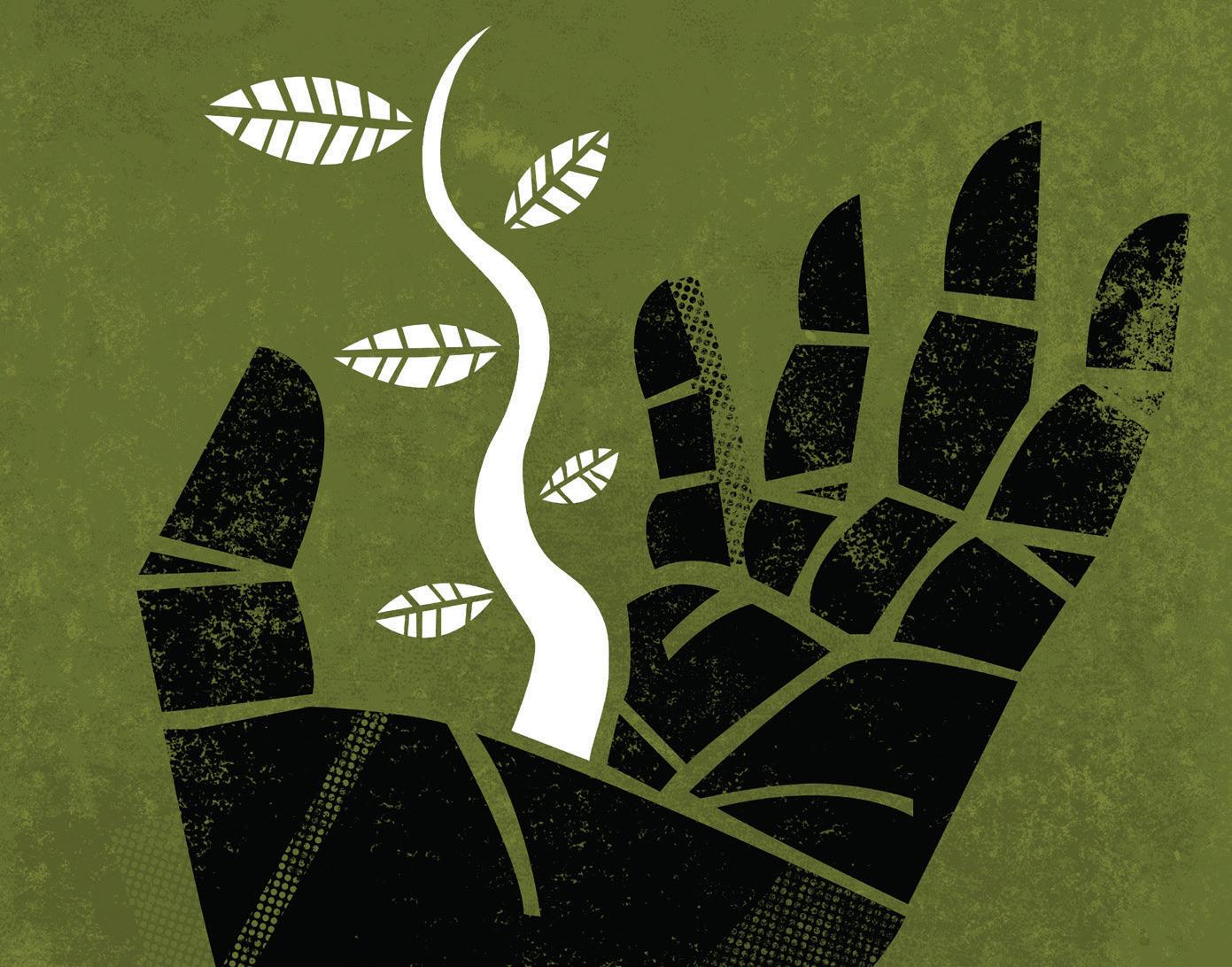
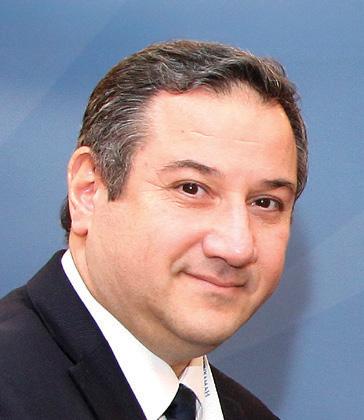
A HOLISTIC APPROACH
The traditional pursuit of profit at any cost is yielding to a more holistic approach that values long-term value creation. Research demonstrates that purpose-driven companies outperform the market by 5 – 7 per cent annually. However, achieving sustainable economic growth demands a corporate mindset transcending short-term gains and prioritising lasting positive impacts. Such a transformative shift, underpinned by robust corporate governance practices, benefits shareholders and instils investor confidence, contributing to market stability.
Corporate control involves balancing power and influence among shareholders, management, and boards. Striking the proper equilibrium ensures that all stakeholders act in the organisation’s best interest.
The best-performing companies are undoubtedly the ones that champion transparency, fairness, and integrity in corporate control, creating an environment where decisions align with the company’s long-term vision.
Stakeholders play a pivotal role in shaping the destiny of corporations. Effective corporate governance acknowledges the interests of diverse stakeholders, including employees, customers, suppliers, and local communities.
In an era marked by unprecedented challenges and opportunities, the role of corporations in driving sustainable economic development and societal progress has never been more crucial. According to McKinsey’s insightful report, Urban World: The Shifting Global Business Landscape, emerging regions are set to house more than 45 per cent of Fortune Global 500 companies by 2025. As businesses navigate these transformative changes and emerging markets redefine competitive dynamics worldwide, corporate control, power and accountability pillars appear as the bedrock of longterm value creation. Fostering an environment of responsible governance is paramount in driving sustainable economies, empowering society, and safeguarding the environment.
Enhancing accountability and transparency empowers stakeholders to actively participate in governance. Research highlights that consumers are four times more likely to support companies with a strong sense of purpose, underscoring the significance of disclosure and reporting practices.
The impact of corporate actions on the environment and society demands conscientious consideration. According to S&P Global Market Intelligence, 80 per cent of the world’s largest companies report exposure to physical and market transition risks associated with climate change.
As Europe battles with extreme heatwaves, climate-related weather events are expected to cost businesses $1.3tn by 2026, according to a CDP report. This demonstrates that sustainable strategies, encompassing environmental and social considerations, are no longer optional – they are vital. However, cultivating responsible corporate
gulfbusiness.com 18 October 2023
The Brief / Governance
Responsible corporate governance is vital for businesses seeking long-term success and societal impact, and it requires a commitment to transparency, accountability, sustainability and ethics
ILLUSTRATION: GETTY IMAGES/CARGO
80 PER CENT
OF THE WORLD’S LARGEST COMPANIES REPORT EXPOSURE TO PHYSICAL AND MARKET TRANSITION RISKS ASSOCIATED WITH CLIMATE CHANGE
practices extends beyond mere compliance. Collaboration between companies, regulators, and investors is key to successfully embedding governance practices that propel positive change.
LONG-TERM VALUE CREATION
We can all envision a future of shared prosperity and environmental harmony, where the significance of corporate governance cannot be overstated. By diligently managing corporate control, power and accountability, we pave the way for long-term value creation that enriches economies, empowers societies, and safeguards the environment.
Together, we can all embark on this journey, passionately advocating for responsible governance practices that create a brighter, more sustainable future for all. Collectively, we can shape a world where corporations become agents of positive change, leaving an enduring legacy of progress for generations to come.
Expanding upon these themes, it’s essential to delve deeper into the mechanisms and practices underpinning responsible corporate governance. The bedrock of sound governance lies in the composition and functioning of corporate boards. Diverse and independent boards are more likely to provide effective oversight and strategic guidance, reducing the risk of conflicts of interest and myopic decision-making.
Furthermore, the role of executive compensation should be scrutinised within the context of corporate governance. Excessive executive pay can undermine the alignment of interests between management and shareholders, eroding long-term value creation.
Adopting compensation structures that tie executive remuneration to long-term performance metrics and sustainability goals can promote responsible behaviour.
THE SHIFTING GLOBAL BUSINESS LANDSCAPE: EMERGING REGIONS ARE SET TO HOUSE MORE THAN 45 PER CENT OF FORTUNE GLOBAL 500 COMPANIES BY 2025
Corporate governance is not a static concept; it must evolve to address emerging challenges. Cybersecurity and data privacy have become integral components of corporate risk management in today’s digital age. Companies must establish robust cybersecurity policies and data protection measures to safeguard their operations, customer trust, and reputation.
FOCUS ON ETHICS
Another facet of responsible corporate governance pertains to supply chain ethics. Businesses are increasingly being held accountable for the conduct of their suppliers. Ensuring ethical practices throughout the supply chain, from sourcing raw materials to production and distribution, is paramount to avoid reputational damage and legal liabilities.
Inclusivity in decision-making is another aspect that deserves attention. Companies that actively engage with their stakeholders, including marginalized communities and vulnerable populations, demonstrate a commitment to social responsibility. Such engagement can lead to innovative solutions addressing societal challenges, fostering goodwill, and enhancing a company’s social licence.
Technological advancements such as artificial intelligence (AI) and automation will continue to shape corporate governance practices as we look to the future. Ethical AI deployment, data ethics, and responsible automation should be integral considerations for boards and management teams as they navigate the evolving landscape of technologydriven business operations.
In conclusion, responsible corporate governance is not a mere buzzword; it’s an imperative for businesses seeking long-term success and societal impact. It requires a commitment to transparency, accountability, sustainability, and ethical behaviour.
By continuously evolving and embracing these principles, corporations can navigate the complexities of the modern business landscape, contribute positively to society and the environment, and ensure their enduring relevance and prosperity.
gulfbusiness.com October 2023 19
Dr Ashraf Gamal El Din, CEO of Hawkamah, the Institute for Governance
“INCLUSIVITY IN DECISION-MAKING IS ANOTHER ASPECT THAT DESERVES ATTENTION. COMPANIES THAT ACTIVELY ENGAGE WITH THEIR STAKEHOLDERS, INCLUDING MARGINALISED COMMUNITIES AND VULNERABLE POPULATIONS, DEMONSTRATE A COMMITMENT TO SOCIAL RESPONSIBILITY”
Built on a vision
AMER KHARBUSH, HEAD OF PROGRAMME AND PROJECT MANAGEMENT WITH SAUDI-BASED ROSHN GROUP, TELLS GULF BUSINESS ABOUT THE COMPANY’S APPROACH TO INTEGRATED COMMUNITY DEVELOPMENT
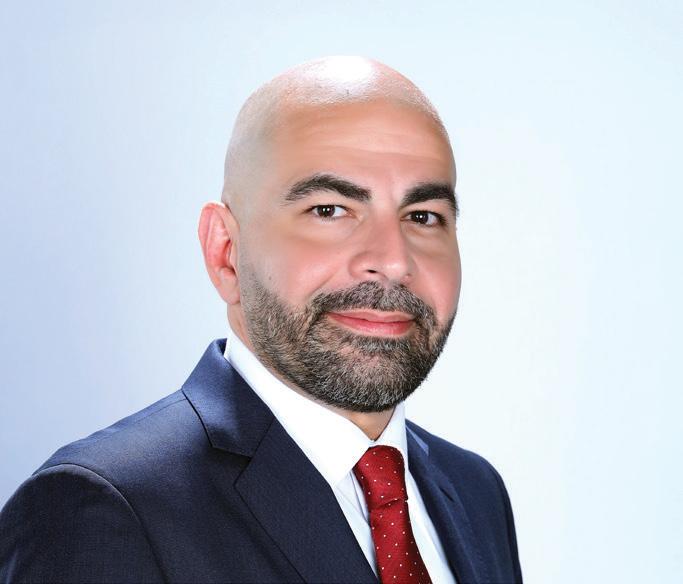 BY KUDAKWASHE MUZORIWA
BY KUDAKWASHE MUZORIWA
QWhat opportunities do you foresee in Saudi Arabia’s real estate market?

Projections have put the Saudi population at 50 million by 2030, and the government has outlined its intentions to ensure there is housing for all the people in the country. This demand provides an opportunity for all big developers in real estate, specifically those focusing on community projects. ROSHN is supporting the goal of Saudi home ownership of 70 per cent in line with Vision 2030. The future looks promising, and it is exciting that there will always be the latest innovations and products in the market.
Saudi Arabia’s real estate and infrastructure projects have crossed $1.23tn. How do you envision the future of the industry going forward?
From my background in design and construction, I see a very positive future for
the real estate and infrastructure market in Saudi Arabia and believe it will overtake the pace of development in the rest of the world. Future development will focus on how best to industrialise construction and focus less on building on-site and more on building in factories.
We want to ensure that we attain the best quality while reducing the time, waste, and impact on the environment by outsourcing everything to factories. This has not been done in construction in the past. As ROSHN, we are always looking at ways of making this happen and are working with multiple vendors to ensure that we design for the future.
Tell us how the company is contributing to Saudi Arabia’s infrastructure development under Vision 2030.
Our approach to development at ROSHN is to put people at the centre of all our projects.
This applies not only to the homes that we build but across our entire infrastructure development philosophy. We understand that infrastructure is not simply a case of providing utilities, but it is about providing the necessary social infrastructure to support people-centric communities. We simultaneously work to ensure that we provide electricity, power, and water in a way that meets the needs of the residents, but we also implement integrated master planning to ensure that the residents of our communities are supported by an evolved social infrastructure including schools, healthcare clinics, retail outlets, mosques, and transport services. In this way, we align with the objectives of Vision 2030.
Our most recent project, MARAFY, is an example of our approach to integrated community development, and our commitment to putting people first.
Tell us more about ROSHN’s investments and development projects?
As one of the biggest real estate developers in Saudi Arabia, our focus is to develop community developments and mixed-use developments at scale, and we are now known as the leading master community developer in the kingdom.
We have several projects underway across the kingdom, including the western, eastern and central regions. We are also continually investigating new potential projects across Saudi Arabia and have partnered with several exciting companies – the details of which we will disclose soon. We have stepped up our game with MARAFY, which marked the company’s entry into the mixed-use development market and will see us developing brandnew canal access in Jeddah.
gulfbusiness.com 20 October 2023 INTERVIEW
THE BRIEF
ILLUSTRATION: GETTY IMAGES/ FOTOGRAFIABASICA
ROSHN IS SUPPORTING THE GOAL OF SAUDI HOME OWNERSHIP OF 70 PER CENT IN LINE WITH VISION 2030. THE FUTURE LOOKS PROMISING, AND IT IS EXCITING THAT THERE WILL ALWAYS BE THE LATEST INNOVATIONS AND PRODUCTS IN THE MARKET”
Aligned with the agenda
ABDALLA AL BANNA OF DUBAI WORLD TRADE CENTRE SHARES HOW ITS FREE ZONE IS SUPPORTING DUBAI’S D33 ECONOMIC AGENDA
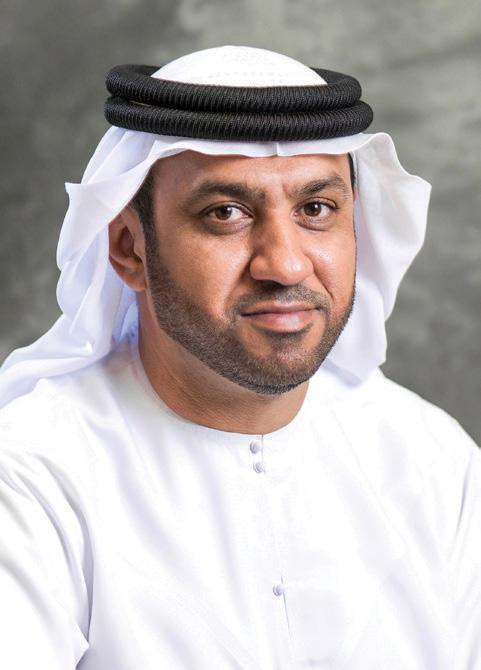
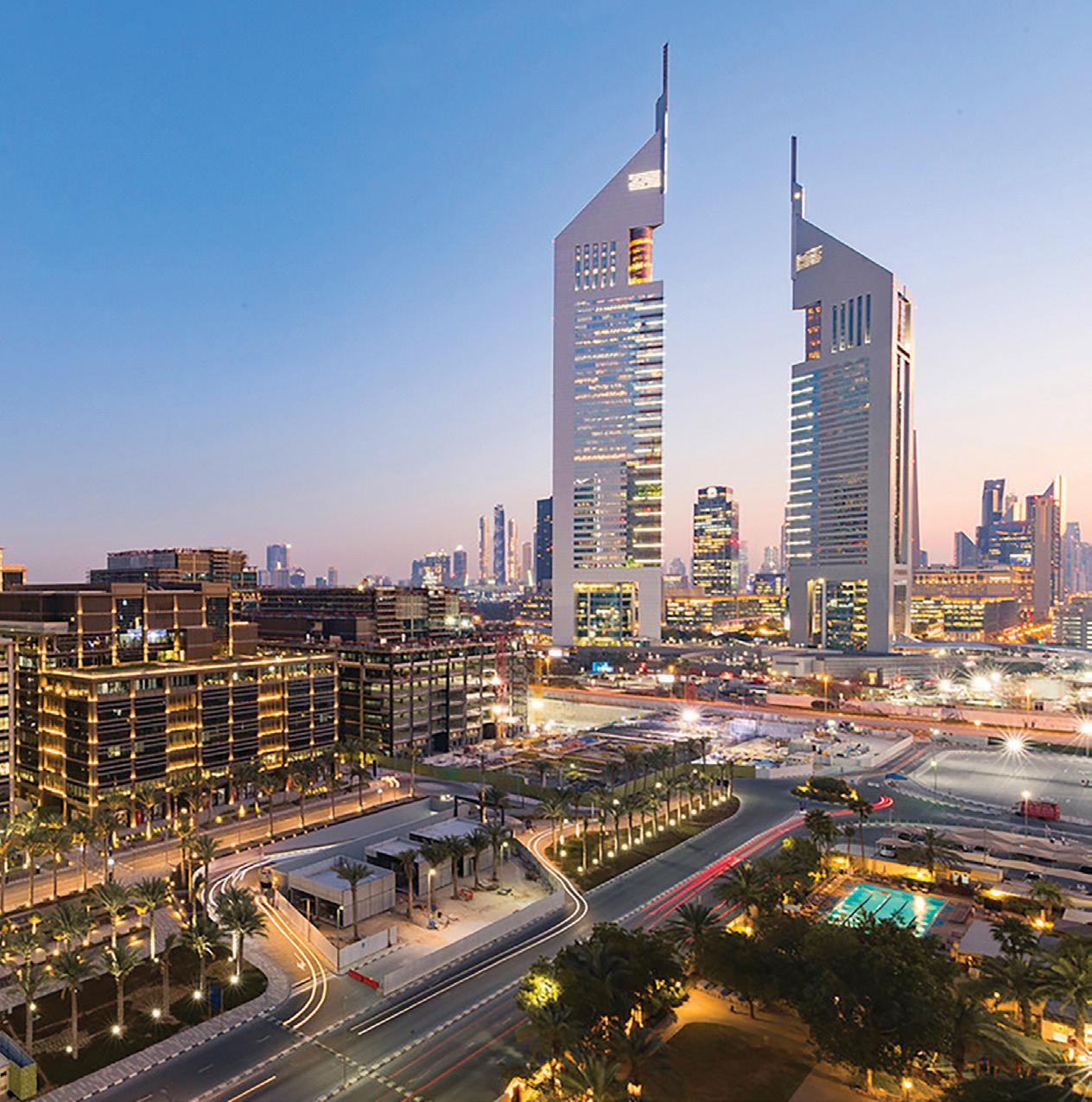
People are key to the design philosophy of the group. Tell us more about it.
Our design philosophy is people-centred while remaining as efficient and sustainable as possible: it’s all about the people, and about the residents. We want to make the lives of the people living in our communities better and easier. Our group CEO has stated many times that we ensure that our homes are fit for purpose and as energyefficient as possible.
Every house in the community has a form of solar-powered utility and electric vehicle charger provisions to prepare for a future in which electric vehicles will become dominant. PIF-backed Lucid is playing a big role in this transition.
Our design philosophy is also centred on providing mixed-use communities in which residents will be able to combine work and play.
ROSHN is the first PIF-funded giga project to become a member of the UN Global Compact. What does this mean for the company?
We are proud to have been the first Saudi giga-project to have joined the UN Global Compact. The group is strongly committed to the key principles of human rights, labour rights, environmental protection, anti-corruption, trust, integrity and transparency, all of which are included in the UN Global Compact. We will be reporting on our ongoing performance against these principles annually and will work tirelessly to continue to raise the standards of real estate development in Saudi Arabia and beyond.
Dubai World Trade Centre Authority (DWTCA) Free Zone recently reported a robust performance in H1 2023, reflecting its alignment with Dubai’s D33 Economic Agenda of attracting foreign investment through the provision of a conducive business environment. It also reported that licence renewals recorded a 32 per cent year-onyear growth against H1 2022. Here, Abdalla Al Banna, VP of Free Zone Regulatory Operations at Dubai World Trade Centre (DWTC), tells Gulf Business more about how the authority is supporting the growth of SMEs and bolstering the emirate’s economy and sustainability targets.
gulfbusiness.com October 2023 21 INTERVIEW
THE BRIEF
PICS: SUPPLIED
INTERVIEW
How is Dubai World Trade Centre Authority (DWTCA) Free Zone aligned with Dubai’s D33 Economic Agenda?
The DWTCA Free Zone is an emblem of Dubai’s future economy, fostering a probusiness climate with ultra-modern infrastructure. As a well-regulated ecosystem, it has rapidly become a leading driver of global competitiveness and pioneering business ecosystems, with a particular emphasis on the digital economy.
Our tenants span more than 40 diverse sectors, including Fortune Global 500 companies, SMEs, digital transformation startups, research and development firms, and tech innovators, reinforcing the D33 agenda’s strategic priorities.
The free zone is aligned with the agenda’s goals of attracting foreign investment and positioning Dubai as a hub for innovative economic ventures is evident.
One Central, currently at 75 per cent occupancy, also bears testament to our contributions to Dubai’s economic agenda.
By capitalising on the momentum of the D33 agenda, the UAE Industrial Strategy and other relevant strategies, we are continuously exploring growth avenues and innovative ideas.
How was H1 2023 for the free zone?
DWTCA Free Zone experienced a striking 250 per cent increase in licence renewals during H1 2023, from 254 to 892 renewals. We also welcomed 322 new companies, enhancing our international community of more than 2,000 companies.
This includes diverse enterprises such as BlueCrest Capital Management, Merz Middle East, MMBI Food Trading, and Korean Tourism Organisation, among others. The surge in license applications reflects the growing interest in virtual assets and family offices, and DWTCA Free Zone’s reputation, fortified by the DWTC’s four-decade-long business facilitation expertise, makes it a preferred destination for these sectors.
How has the authority supported the growth of SMEs in the emirate?
Our in-depth understanding of SMEs’ needs, drawn from extensive experience and relationships, allows us to offer straightforward, simple, and streamlined
procedures for rapid establishment. Our comprehensive support services, from licensing, company registration, visa processing to administrative tasks, ensure a smooth process for SMEs.
We offer appealing financial incentives including discounted license fees, reduced rental rates, flexible payment schemes, and rent-free services during the application phase, contingent on the scope and validity of their business proposal. We also provide cost-effective and adaptable office spaces, networking events, workshops, seminars, business advisory services, mentorship programmes, and dedicated platforms for the exchange of industry-specific insights and knowledge.
The Intelak Incubators initiative, launched in H1 2023, exemplifies our proactive approach, offering tailored accelerator and incubation programmes to foster start-ups and early-stage ventures within our dynamic Free Zone ecosystem.
Tell us about some of the success stories that underscore the authority’s commitment to building Dubai’s business ecosystem.
DWTCA Free Zone serves as a business success enabler and an attractive hub for entrepreneurs and emerging industry champions, fostering a culture of innovation and growth.
Noteworthy examples include Kitopi, which expanded its physical footprint from 5,000 to 21,000 square feet in 2022, and BlueCrest Capital Management, which expanded its office space from just under 4,500 to 6,900 square feet. These instances underscore how DWTCA Free Zone’s environment fuels the growth of diverse enterprises.
How is the free zone supporting the emirate’s focus on advanced technologies?
The free zone, designed to catalyse Dubai’s future economy, offers a pro-business environment and cutting-edge infrastructure.
Our well-regulated ecosystem is a magnet for digital transformation pioneers, R&D companies, and tech innovators. Capitalising on Dubai’s prominence in next-gen technologies such as the metaverse, artificial intelligence, Web3 and blockchain, we are strategically nurturing the virtual
DWTCA FREE ZONE EXPERIENCED A STRIKING 250 PER CENT INCREASE IN LICENCE RENEWALS DURING H1 2023, FROM 254 TO 892 RENEWALS. WE ALSO WELCOMED 322 NEW COMPANIES, ENHANCING OUR INTERNATIONAL COMMUNITY OF MORE THAN 2,000 COMPANIES”
assets ecosystem and consolidating the emirate’s reputation as a leading accelerator for the future economy.
How is the free zone conforming to the emirate’s sustainability agenda?
We are committed to a net-zero sustainable future and we place sustainability at the heart of our strategic decision-making. This has been institutionalised through our core values, green building initiatives, waste management, resource optimisation, renewable energy integration, and proactive stakeholder engagement. This commitment to sustainability has not only improved our brand reputation and operational efficiency in the short term but also made us resilient and poised for long-term growth.
Our efforts align with Dubai’s agenda, reinforcing our contribution to the city’s broader sustainability goals. Moreover, our focus on sustainability has cultivated a culture of responsibility and foresight within DWTCA Free Zone, influencing all aspects of our decision-making process.
An evident example of this is our LEED Gold-certified One Central development which adheres to the highest sustainability standards under the International Management Regime from the Royal Institution of Chartered Surveyors.
We collaborate with environmental organisations on environmental campaigns and initiatives and prioritise waste management using the “reduce, reuse, recycle” principle. We also recognise the crucial role of sustainability in our planet’s future and are steadfastly committed to making a difference.
gulfbusiness.com 22 October 2023
Q
THE BRIEF
Transforming food industry, enabling innovation
Global well-being conglomerate, GMG, is focused on supporting UAE’s national food security strategy
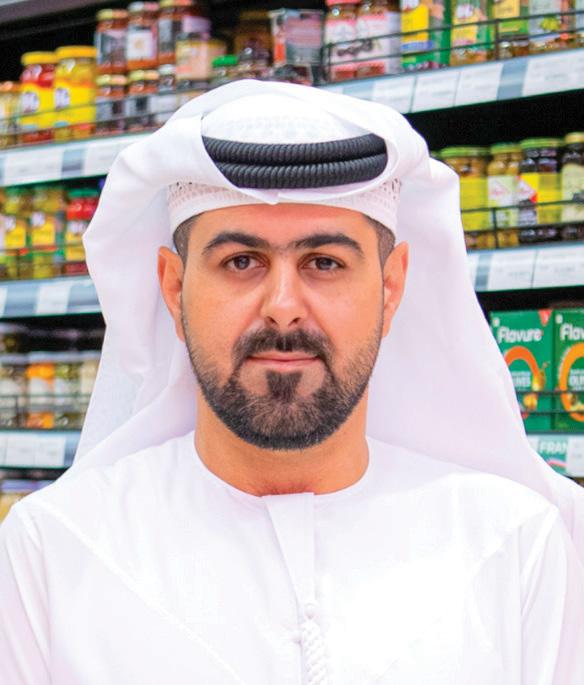 By Mohammad A Baker, deputy chairman and CEO of GMG
By Mohammad A Baker, deputy chairman and CEO of GMG
As a homegrown company, GMG supports the UAE’s food security strategy – a critical national goal heightened by the recent upheavals in the global supply chain. The company is helping advance national efforts to develop sustainable food production systems through modern technologies while enhancing local production.
Our ‘farm to fork’ strategy is the key driver for this vision, which covers the entire food consumption chain, from homegrown food brands to food retail stores that distribute a plethora of brands under the Everyday Goods division.
In the food retail segment, GMG holds exclusive rights to expand wellknown supermarket brands across most of the Middle East region. These include Géant, Franprix, Monoprix, and monop, which belong to the French retailing giant Groupe Casino as well as our recent acquisition aswaaq, which added 22 supermarkets to our rapidly growing retail network.
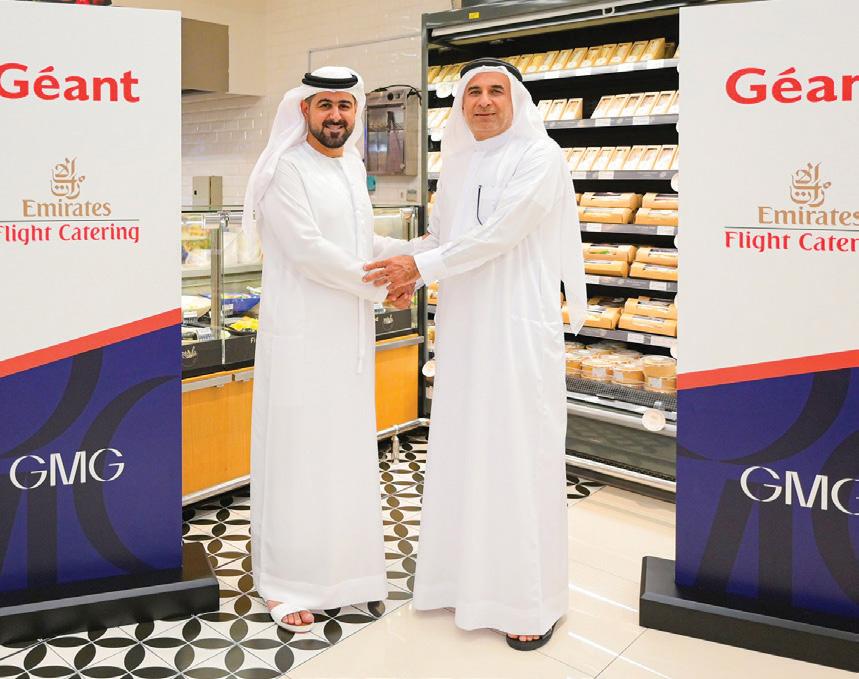
A prominent player
GMG’s position is further strengthened by its expanding manufacturing capabilities, establishing us as a prominent player in the country’s food production industry. The current production infrastructure covers six product lines: meat, seafood, Himalayan pink salt, herbs and spices, sausages and cold cuts, and butchery and marination. These make up all our homegrown brands: Farm Fresh, Chef’s Choice, Klassic, Sapora, Noor Al Islami, RUH, and Quality 1st Choice.
This year, we’ve achieved a significant milestone with the opening of four new factories that manufacture a range of food products. Collectively, these factories rank among the largest food production facilities in the UAE. Additionally, we’ve established the world’s secondlargest fully automated Himalayan pink salt factory, producing 200,000 kilogrammes daily. Our adaptable, top-tier international machinery ensures we meet current and future customer demands, setting us apart from competitors.
This production process is paired with a digitally-optimised logistics infrastructure. An advanced set of interconnected digital applications and tools aligned to create a seamless flow of goods from port to warehouse and finally the store and/or customer.
All of this is monitored through a state-of-the-art command centre to ensure consistent service delivery.
Supporting other players
GMG is keen to support other players in the country’s food
value chain while ensuring we fill gaps in our farm-to-fork vision. Our recent strategic partnership with other local producers such as Bustanica, the world’s largest hydroponic farm, is a testament to this objective. Under this agreement Bustanica will supply high-quality leafy greens to Géant Hypermarkets and supermarkets across the UAE, ensuring fresh and organic ingredients/food for our consumers. In addition, GMG has signed an MoU with Silal, which is part of ADQ and one of the region’s largest holding companies, to drive collaboration in the food sector by connecting consumers directly with farmers.
The current trajectory builds on my father, Abdul Aziz Baker’s legacy dating back to 1977. He set up a butchery in Dubai with a vision to enhance the quality of life for UAE residents by offering fresh meat, fish and cold cuts. Since then, GMG has grown into a global retail and manufacturing conglomerate and a major private sector contributor to UAE’s food security objectives.
We are proud to be a part of a transformative change in the food production system that leverages sustainable practices and modern technology to enhance local production. We believe this is a collective responsibility we can achieve by working with stakeholders and partners with a shared vision of innovation and excellence in food production and retail.
BRAND VIEW
Alan’s Corner







 Alan O’Neill Managing
Alan O’Neill Managing
Behaviours that boost business







In your organisation, you and your colleagues are most likely defined by the department you belong to. You might be in sales, IT, marketing, operations, finance, or whatever. “She or he is from the marketing department” may be a description that your colleagues comfortably use to define you when speaking in public. But do you know how you are defined in private? Are you fast-moving and very direct? Are you a loyal and great team player? Do you slow things down by being very analytical? Or are you the bubbly and chatty one?
When you are faced with di erent scenarios, such as problem-solving, in a sales call, or in a meeting, your own default or preferred style is never far from the surface. Unless you are very aware and have a high level of emotional intelligence, your inherent social style will drive your behaviour. And it’s your behaviour that impacts others, either positively or negatively.


gulfbusiness.com 24 October 2023
We look at the role that leaders play in encouraging positive and productive team behaviours
director of Kara, change consultant and speaker
ILLUSTRATION: GETTY IMAGES/ FANATIC STUDIO / GARY WATERS
Kerrie Barron, who is part of my team, supports individuals and teams to maximise their team performance. “When teams reach peak performance, there is less energy spent on debating the politics and intentions of various players and much more on the work at hand,” she says. “But that requires a level of trust that comes from a better understanding of each other’s style and motivation.”
YOUR SOCIAL STYLE AND ITS IMPACT
Let me start by saying there is no such thing as a ‘right’ or ‘wrong’ style. However, in given situations, some styles help achieve an e ective result, while others can inhibit it. For example, let’s say your primary style is to be dominant, decisive, and resultsfocused in every situation. That might be perfect in a crisis but not if you’re trying to coach one of your teams.
In summary, there are four main styles, determined on one axis by the extent of your level of assertiveness versus introversion. On the other axis your orientation on tasks and results versus people and relationships. Here are just some characteristics to illustrate the extremes of each style.
TIPS TO IMPROVE YOUR SOCIAL STYLE
Great leaders create a high-performance and motivating culture that brings out the best in every team member. That’s done with great communication and
EMPATHETIC LEADERSHIP SAW
AN INCREASE IN EMPLOYEE ENGAGEMENT, LEADING TO A
25 PER CENT BOOST IN PRODUCTIVITY
through understanding relationships. In turn, that generates increased collaboration and teamwork across the organisation.
Be aware of your style and of those who are around you. Engage in a facilitated workshop to help you determine the style of each team member.
Flex your style to work more e ectively with diverse styles that are di erent to yours. In the past, leaders expected their people to adapt to them. That model has completely reversed now. Leaders now “serve” the team. So, when there is potential for conflict or di erent agendas, seek common ground and mutual interest with those of a di erent style.
Clashes of styles are inevitable. Develop the emotional intelligence of your team so that they become more aware of each other and know when to let go or adapt as needed.
Paced and more introverted
Task/Goal focus
ANALYTICAL
Technical specialists Process driven Works slowly
AMIABLE
High avoidance Dependable Loyal
Team focused
Little self-direction
DRIVING
Direct and decisive Results-focused
Competitive
Poor listening
EXPRESSIVE
Extroverted Works quickly Very persuasive Poor planning
Open and people oriented
Fastpaced and assertive
Put people in positions not just based on their technical expertise but also those that play to their strengths. For example, putting a ‘driver’ type salesperson in front of an ‘amiable’ buyer is a recipe for conflict. If you have no choice in this, then ensure that the salesperson knows how to recognise it and adapt.
THE LAST WORD
Organisational life has undergone significant changes in recent years, driven by the pandemic, evolving workforce dynamics, technological advancements, globalisation and other factors.
New-style leaders will be those who can navigate these changes and create environments that foster collaboration, learning and growth.
Empathy is a characteristic that has escalated in importance. Being understanding of others helps to earn their trust. And there is evidence to prove its value. Recent research by McKinsey showed that empathetic leadership saw an increase in employee engagement, leading to a 25 per cent boost in productivity.
Now, that’s worth going a ter.
gulfbusiness.com October 2023 25 The Brief / Alan’s Corner
“WHEN YOU ARE FACED WITH DIFFERENT SCENARIOS, SUCH AS PROBLEM-SOLVING, IN A SALES CALL, OR IN A MEETING, YOUR OWN DEFAULT OR PREFERRED STYLE IS NEVER FAR FROM THE SURFACE”
The business case for creativity


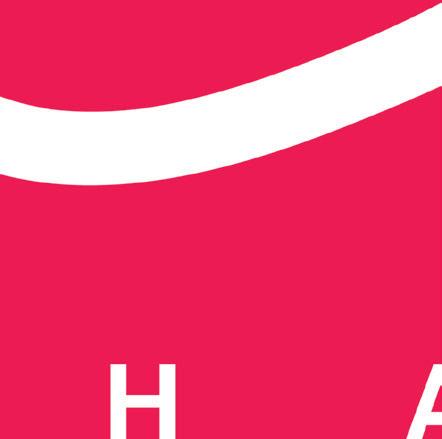




Saudi Arabia’s economic vision is fuelled by a growing culture of the creative arts industry
Saudi Arabia is leveraging the power of storytelling and it has garnered global attention for its e orts. Over the past several years, the Middle East’s largest economy has leaned into its cultural identity, explored new ideas and pathways, and launched numerous projects to support its economic expansion plans. Its path towards achieving the Vision 2030 objectives are being forged by empowering citizens through localisation in all spheres. Rooted in the objectives of the national vision, every sector is encouraged to innovate, to contribute to the kingdom’s future.
As it advances towards new frontiers, the country’s cultural and creative industries (CCIs) have been recognised as a key contributor in reaching its socioeconomic goals. Access to creative tools, avenues for people to monetise their craft and the steady rise of digital creators have created an exciting future for the creative and cultural economy in Saudi Arabia.
Industry experts estimate the value of creative industries globally stands at $985bn. By the close of the decade, research projects that the creative economy will grow by 40 per cent and create more than 8 million new jobs.
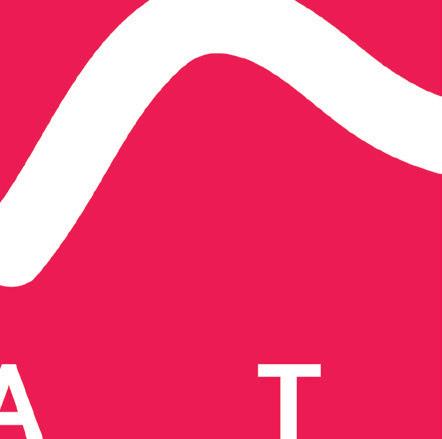

Domestically, reports place the value of Saudi Arabia’s CCIs at approximately $15bn per year. The industry is expected to grow at more than 10 per cent per year in the Middle East and North Africa (MENA) region and an impressive 13 per cent within Saudi Arabia. Studies have shown that the creative industries have measurable value in ensuring the well-being of people and promoting innovation, two benefits that the kingdom is ready to actualise.
The progression of the kingdom’s CCIs is being guided by the country’s young population, with 63 per cent of citizens below the age of 30. Ongoing localisation e orts have created job opportunities for more than 500,000 Saudi nationals in the private sector from 2019 to 2022, giving citizens the resources and acumen needed to thrive in the country’s emerging industries. Coupled with a wide variety of cultural initiatives, engagements and public events hosted by the Ministry of Culture and other governing bodies, citizens are being encouraged to pursue their creative passions more than ever before.
Saudi Arabia’s creative spirit is deeply rooted in and continues to be influenced



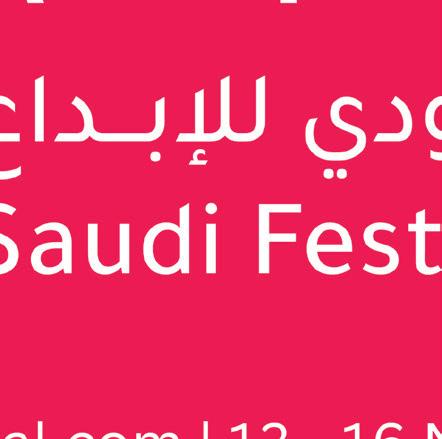


by its Islamic heritage and geography. Located at the crossroads of three continents, it has been the epicentre of trade for centuries. Its identity is hence entrenched in innovation and commerce, evident in its culture, cuisine, attire, literature, music, and communication styles influenced by diverse traditions . Each region in the kingdom has a distinct cultural identity, visible through their unique music and folk tales which serve as an inspiration for Saudi artists, enabling them to creatively express and celebrate their heritage through their stories.
AS IT ADVANCES TOWARDS NEW FRONTIERS, THE COUNTRY’S CULTURAL AND CREATIVE INDUSTRIES (CCIS) HAVE BEEN RECOGNISED AS A KEY CONTRIBUTOR IN REACHING ITS SOCIOECONOMIC GOALS. ACCESS TO CREATIVE TOOLS, AVENUES FOR PEOPLE TO MONETISE THEIR CRAFT AND THE STEADY RISE OF DIGITAL CREATORS HAVE CREATED AN EXCITING FUTURE FOR THE CREATIVE AND CULTURAL ECONOMY IN SAUDI ARABIA
to bring together global players to help foster a culture of creativity across the country’s vast landscape. Recognising the importance of blending creativity with commerce, Saudi Arabia’s capital city Riyadh will soon host an event that brings together the country’s culture, creativity, talent, and technology.
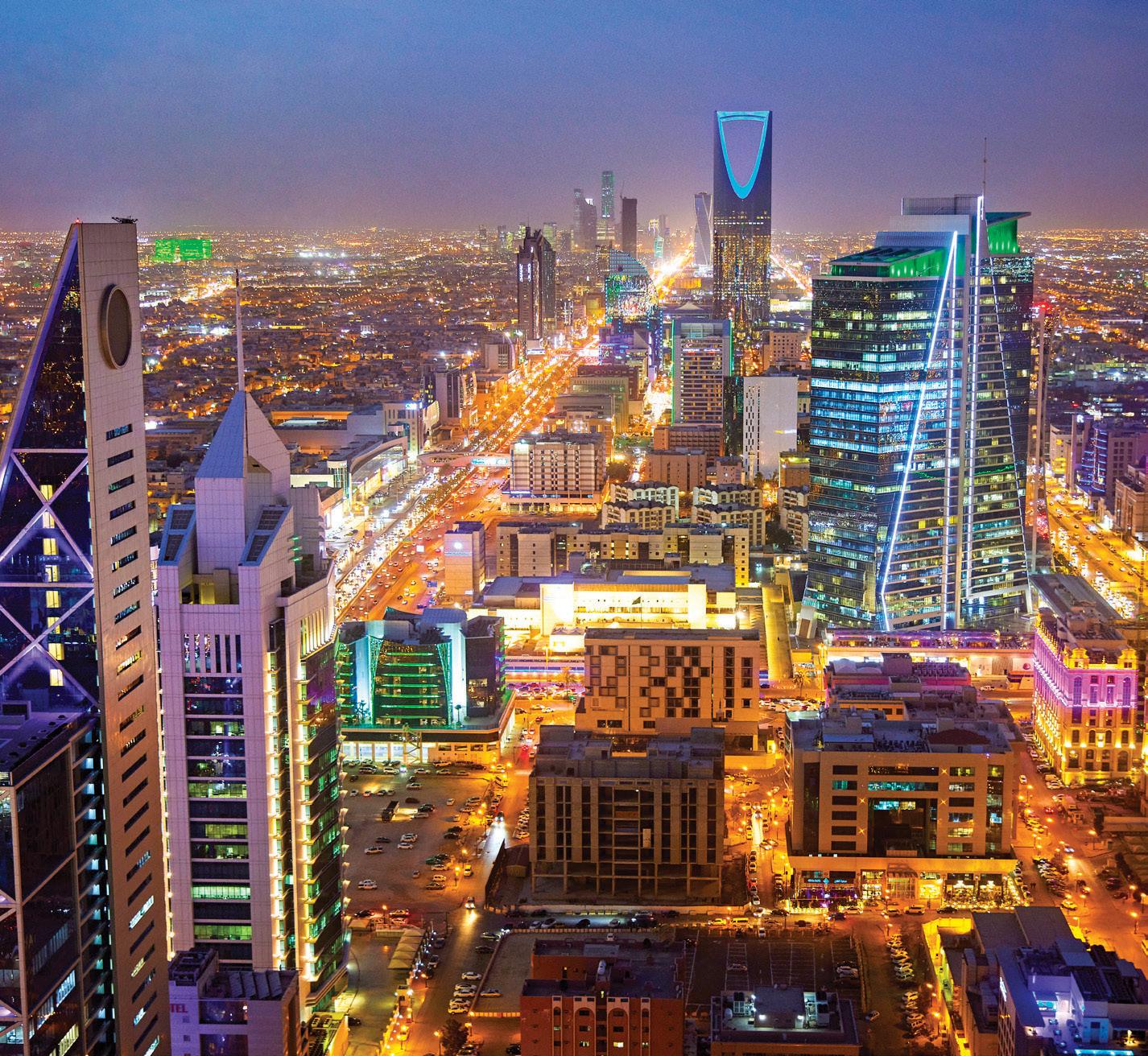
The inaugural edition of ‘Athar –Saudi Festival of Creativity’ will take place in November. Spread over four days the festival will host a three-day young talent academy programme, along with industry awards. It is set to unveil a distinguished speaker lineup of more than 100 national and global industry strategists, innovators, and experts. Additionally, 12 young talent academies, each addressing a di erent creative marketing topic – ranging from PR to strategy, integrated marketing to design, branding, copywriting and much more, will run in tandem with the event.
ONGOING LOCALISATION EFFORTS HAVE SUCCESSFULLY CREATED JOB OPPORTUNITIES FOR MORE THAN 500,000 SAUDI NATIONALS IN THE PRIVATE SECTOR
Cultural initiatives introduced across the kingdom aim to ensure Saudi heritage is preserved and celebrated. At the 45th session of the UNESCO World Heritage Committee in Riyadh earlier last month, Saudi Arabia and UNESCO organised the ‘Dive into Heritage’ initiative, which harnessed the power of digital technology, such as 3D modelling and interactive maps, to recreate an immersive digital viewing experience.
As the kingdom ramps up its CCI initiatives, e orts on the ground are afoot
The festival will culminate with the Athar Awards Gala Dinner, which will feature the Creative Legacy Awards, verified jointly by the organisers of Dubai Lynx and Cannes Lions. It will be presented to the agencies, networks and brands of the decade.
With more than 1,500 industry professionals and young talent expected to come together in an environment that inspires cultural exchange, collaboration, training, and development, Athar Festival looks forward to celebrating the power of creativity, spotlighting the kingdom’s CCIs as an important facet of the country’s long-term socioeconomic development.
BRAND VIEW
GROWTH OF GLOBAL WEALTH
DESPITE CHALLENGES FACED IN 2022, GLOBAL WEALTH IS EXPECTED TO REBOUND IN 2023 BY 5 PER CENT. HERE, WE LOOK AT KEY FINANCIAL HIGHLIGHTS AND FORECASTS
RECENT PERFORMANCES AND FUTURE FORECASTS FOR FINANCIAL AND REAL ASSETS SHOW STRONG REGIONAL VARIATION






TOP 10 BOOKING CENTRES*

Regionally, Western European players showed the strongest resilience in 2022, posting a 3.8% decrease in CBV*, compared with far steeper declines of 13.1% in North America and 13.7% in Asia-Pacific


Following nearly 15 years of steady expansion that began in the wake of the 2007-2008 financial crisis, the growth of global financial wealth was stopped in its tracks in 2022, declining by 4 per cent to $255tn.

THE DOWNTURN IN 2022 FOLLOWED A STRONG YEAR IN 2021, DURING WHICH FINANCIAL WEALTH ROSE BY MORE THAN 10% , ONE OF THE SHARPEST RISES IN OVER A DECADE

The Brief / Infographics gulfbusiness.com 28 October 2023
SOURCE BCG GLOBAL WEALTH REPORT 2023: RESETTING THE COURSE
*Chartered Business Valuators (or CBVs) are accredited finance professionals with extensive knowledge and expertise in the specialised field of business valuation
GLOBAL 2021 2022 2027 Growth 21-22 CAGR 22-27 Financial assets 263.9 254.6 329.1 –3.5% 5.3% Liabilities 54.1 57.3 73.9 5.9% 5.9% Real assets 247.8 261.5 341.2 5.5% 5.5% NORTH AMERICA 2021 2022 2027 Growth 21-22 CAGR 22-27 Financial assets 126.3 116.0 146.0 –8.1% 4.7% Liabilities 19.7 21.2 26.5 7.6% 4.6% Real assets 57.3 61.2 83.2 6.8% 6.3% WESTERN EUROPE 2021 2022 2027 Growth 21-22 CAGR 22-27 Financial assets 50.4 49.0 59.2 –2.8% 3.9% Liabilities 12.2 12.7 15.0 3.8% 3.4% Real assets 61.5 63.2 75.5 2.7% 3.6%
01 Hong Kong 02 Switzerland 03 Singapore 04 US 05 UK (mainland) 06 UAE 07 Channel Islands & Isle of Man 08 Luxembourg 09 Cayman Islands 10 Bahamas 7.6% 3.0% 9.0% 3.6% 2.6% 9.6% 2.2% 3.1% 4.0% 4.3%
All fi gures in $ Trillion Average ranking based on year 2017, 2022 and 2027 bookings *A booking center is a type of offshore financial centre that mainly serves as a processing hub for international transactions. Its purpose is to facilitate the booking and settlement of financial transactions, such as cross-border trades CAGR 22-27
THE VALUE OF REAL ASSETS
– physical goods in the form of real estate, art, jewellery, premium antiques, rare wines, and the like –continued its growth trajectory by 5.5% to reach $261tn in 2022.
COMBINING BOTH FINANCIAL AND REAL ASSETS , total absolute global wealth in 2022 reached $516 tn , an increase of 1% over 2021
Representing 13.2 per cent of the Middle East and Africa’s financial wealth in 2022 and growing at a rate of 6.5 per cent per annum from 2017 to reach $1tn in 2022, the UAE’s trajectory signals the country’s strong position as one of the preferred global destinations for the wealthy. This impressive growth reflects the strong value proposition the country has developed for highnet-worth individuals.”
— Mohammad Khan, managing director and partner, at BCG
MIDDLE EAST AND AFRICA
$ 1tn 2022
Compound Annual Growth Rate (CAGR) of 5.5% in new wealth
1.3tn

gulfbusiness.com October 2023 29
THE
FINANCIAL WEALTH $
2027
UNITED ARAB EMIRATES (UAE)
Recent performances and future forecasts 2021 20 15 10 5 0 2022 2027 Growth 21-22 CAGR 22-27 Originated from ultra high net worth (UHNW) individuals worth more than $100m The influence of these individuals is anticipated to continue to remain consistent until 2027 (approximately)
6.8 10.6 12.0 18.2 12.9% 8.7% 1.1 1.3 1.8 10% 7.9% 7.3 10.6 7.5% 7.7%
25% OF UAE'S FINANCIAL WEALTH
REAL
FINANCIAL ASSETS LIABILITIES
ASSETS
gulfbusiness.com 30 October 2023 A STRONG FOUNDATION SHITIJ KAPOOR , CEO AND FOUNDER OF LUXURY CONCIERGE REAL ESTATE, SHARES HOW HIS COMPANY’S SUCCESS IS BUILT ON STRONG DEVELOPER PARTNERSHIPS, CORE VALUES AND A THRIVING RELATIONSHIP WITH INVESTORS WORDS KUDAKWASHE MUZORIWA PHOTOS AHMED ABDELWAHAB COVER STORY


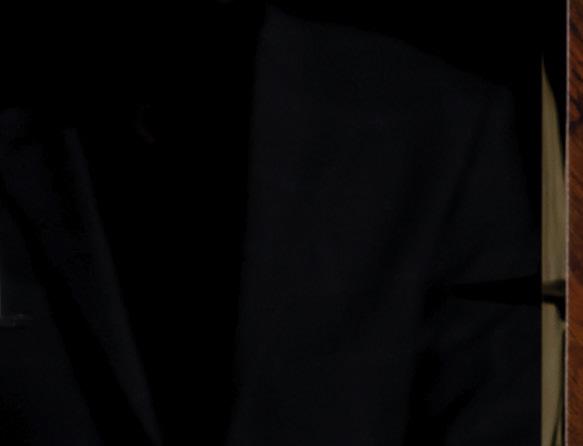
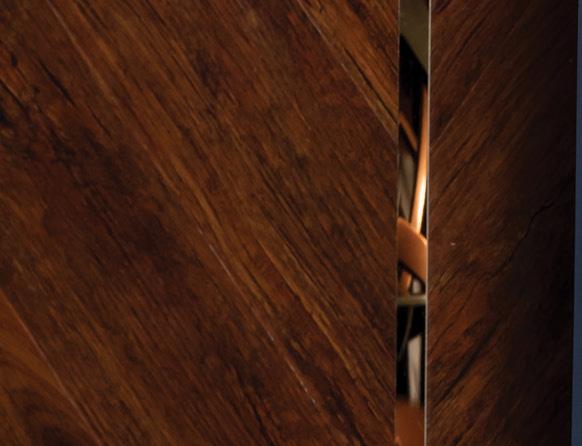


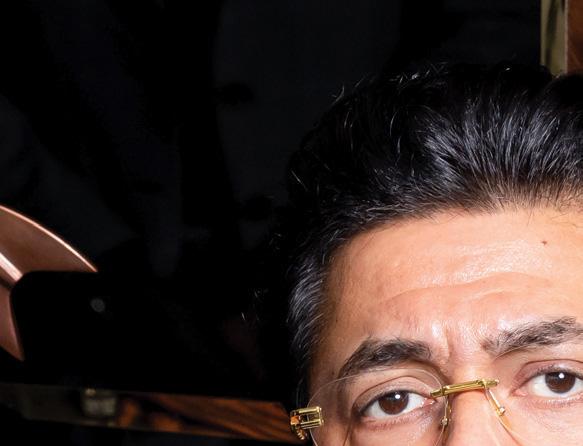

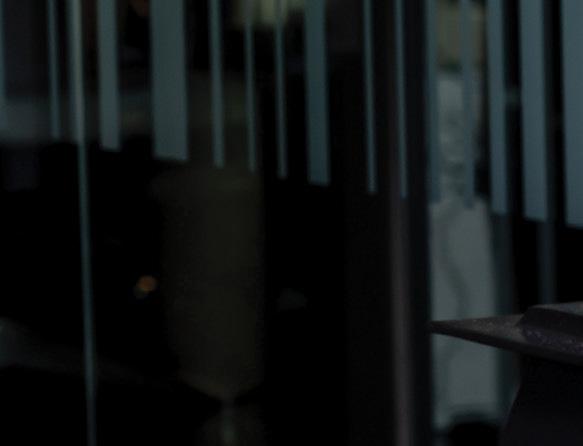
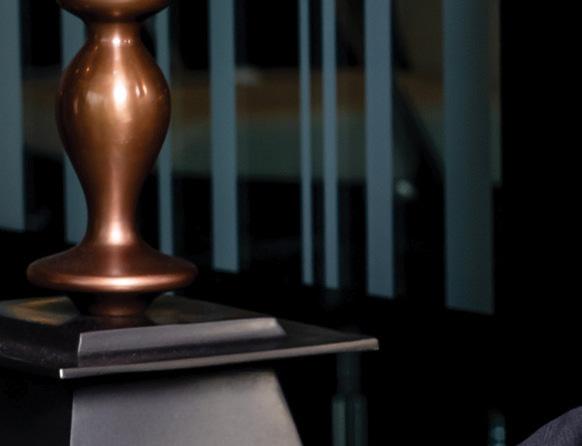
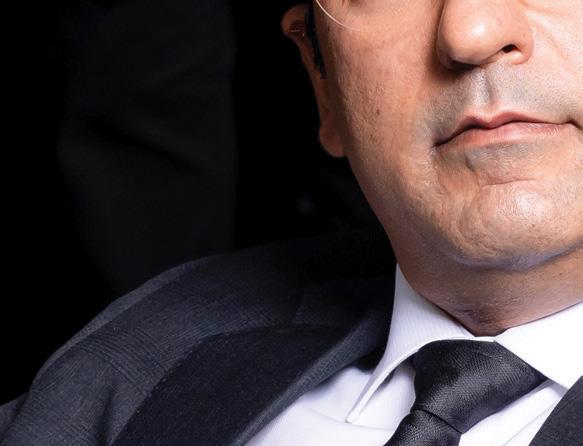
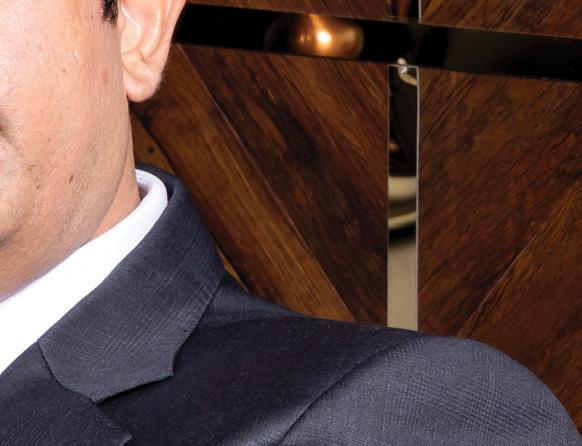
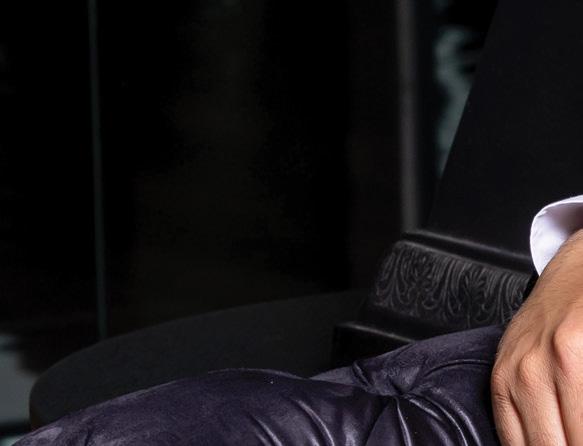
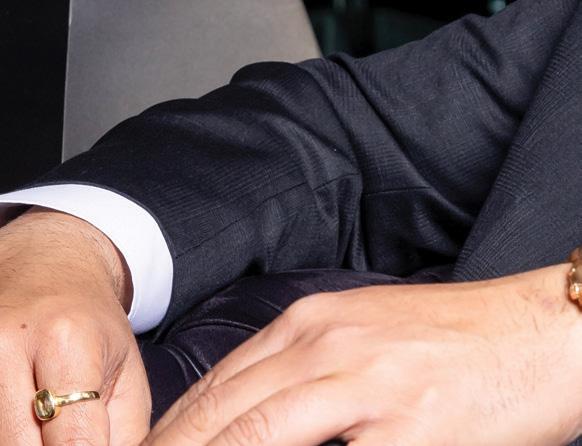



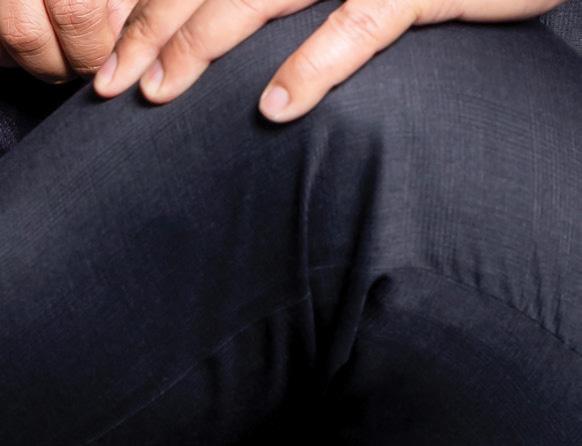



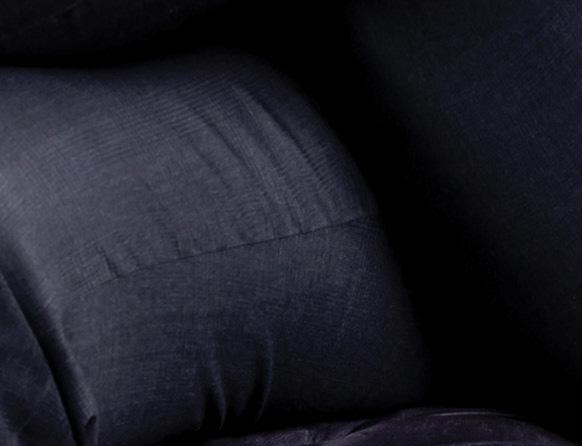
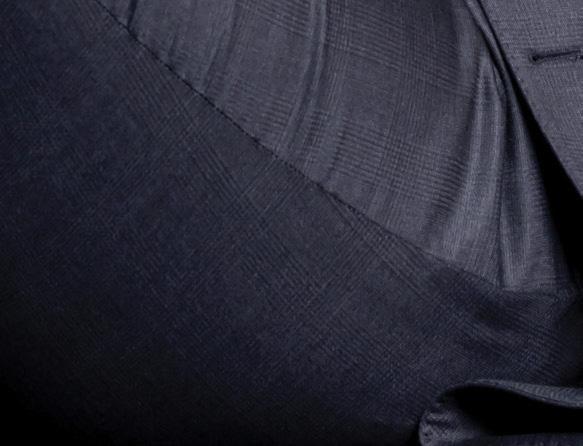






gulfbusiness.com October 2023 31
Iam amazed every day at how Dubai’s stunning urban landscape keeps evolving,” says Shitij Kapoor, founder and CEO of Luxury Concierge Real Estate’s (LCRE). Looking at the emirate’s stunning skyline from the vantage point of his office at Opus Tower in Business Bay, Kapoor extols the pace at which the city has been developing, revealing iconic buildings and architectural landmarks that have strategically positioned the emirate among the world’s most cosmopolitan cities such as London, Tokyo, New York and Singapore.
“Dubai’s real estate market continues to achieve outstanding historical performance and sustainable growth, with record transaction values month-over-month in line with expanding investors’ choices and options to invest in the city,” shares Kapoor, a serial entrepreneur and key figure in the emirate’s real estate sector for over a decade and a half.
Kapoor attributes the upward trend seen over the past three years to Dubai’s dynamic economy, vibrant lifestyle, strategic location, favourable tax regime, exceptional infrastructure, world-class healthcare facilities, safe environment and the allure of the Golden Visa programme. “These factors have collectively drawn high-net-worth individuals (HNWIs) and wealthy investors to the region, surpassing expectations.”
Their interest is not limited to just luxury real estate, he adds. “Dubai’s real estate market offers compelling investment opportunities, catering to different preferences. From
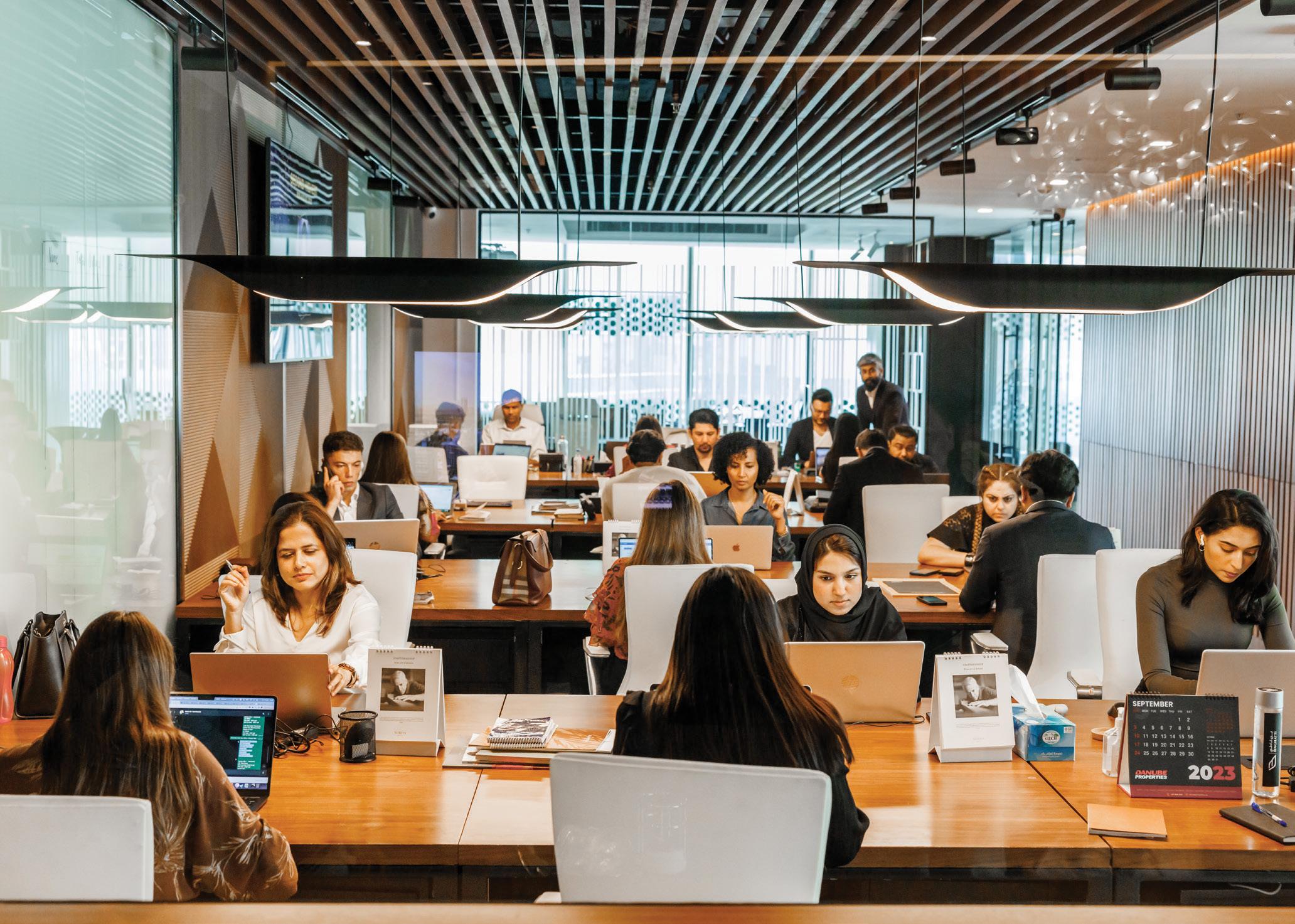
the luxury property market to commercial spaces to hospitality, the range ensures that potential investors can align their choices with their investment objectives.
“I am very optimistic that these trends will not abate anytime soon.”
Kapoor’s confidence is not misplaced. Global property consultancy firm, Knight Frank, recently revealed that Dubai’s luxury property prices surged by 48.8 per cent in 12 months to June 2023, maintaining its top ranking for the eighth consecutive quarter.
According to the property consultancy firm, prices in Dubai skyrocketed 225 per cent since hitting a pandemic low during the third quarter of 2020.
This growth promises to continue into Q4 after transaction values hit a record Dhs283bn in the first six months of the year.
LCRE, one of Dubai’s leading real estate agencies, has benefitted from these developments. The company raked in Dhs1.5bn in sales so far this year, building on its stellar record in 2021, when it recorded Dhs1.3bn in sales and achieved even greater success with Dhs1.7bn in sales last year.
gulfbusiness.com 32 October 2023
“The going has not always been this good,” reminisces Kapoor, who has had a long but interesting road to his current position at the helm of LCRE.
THE START OF A JOURNEY
Kapoor began his career journey in 2002 when he ventured into the hospitality industry back in India, a move that laid the foundation for his interest in business before he moved to Dubai.
“I entered Dubai’s real estate sector in 2007, following which we faced challenging times during the 2008-09 Lehman Brothers crash,” he says.
Undeterred by the global financial crisis, Kapoor founded LCRE in 2010 to establish a high-value company that nurtures strong relationships with prominent developers while cultivating his vision for a luxury brokerage firm.
“LCRE was founded on the ambition to leverage Dubai’s thriving luxury segment and forge strong holds with all major developers that give us and our clients the advantage of exclusive access and early information on upcoming launches,” he says.
LCRE’s growth has been exponential over the years, particularly between 2016 and 2020, when it opened three o ces in Dubai’s prime locations to cater to the growing demand from buyers and investors alike.
PREMIUM PARTNERS
The company has maintained its position as a top broker for premium developers such as Emaar Properties from 2018 to 2023, DAMAC Properties from 2017 to 2023, and Sobha Realty from 2020 to 2023.
“We are doubling down on our network of developer partnerships while strengthening our position as a top broker in the country to advance customer service and tailor-made solutions to meet the diverse needs of our clients,” says Kapoor.
The partnership with Emaar is the cornerstone of the company’s success. “As the most recognised real estate agency, the collaboration allows us to o er our clients exclusive access to Emaar’s premium developments, ensuring they have access to some of the most sought-a ter properties in Dubai.”
Kapoor highlights that the partnership bolsters LCRE’s reputation for excellence and reliability while instilling confidence in clients. Furthermore, it enables the company to provide valuable insights into Emaar’s diverse portfolio, allowing investors to make well-informed decisions.
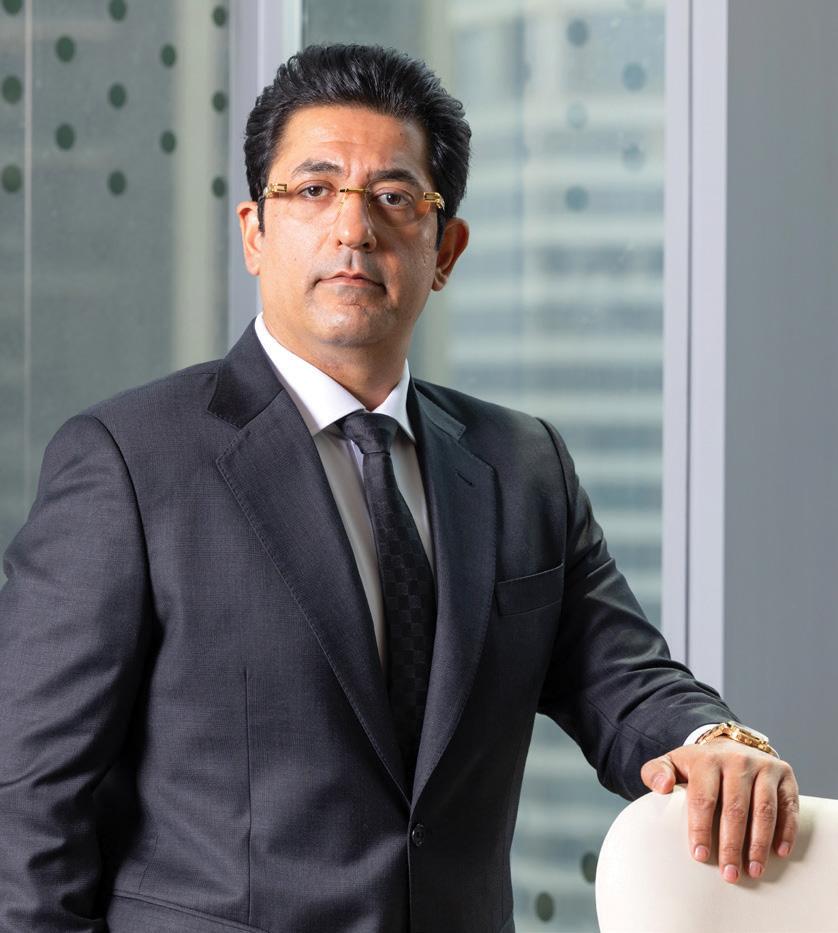
“Ultimately, our collaboration with Emaar cements our position as a trusted and leading agency in the Dubai real estate market,” adds Kapoor.
LCRE TOUCHED DHS1.3 BN IN SALES IN 2021. IN 2022, IT ACHIEVED EVEN GREATER SUCCESS WITH DHS1.7 BN IN SALES. NOTABLY, LCRE HAS REACHED DHS1.5 BN IN SALES IN 2023 AS OF SEPTEMBER 1
Kapoor is setting the tone for LCRE’s growth strategy to further elevate the firm’s profile in UAE’s competitive property market.
He adds that in addition to all the steps he’s taken to expand the business, the foundation of the company’s success lies in LCRE’s core values, which are transparency and integrity.
“To uphold these principles, we are leveraging innovative technologies such as artificial intelligence and machine learning across our portfolio,” says Kapoor. “These technologies enable us to provide clients with data-driven insights, helping them make informed decisions.”
We are doubling down on our network of developer partnerships while strengthening our position as a top broker in the country to advance customer service and tailor-made solutions to meet the diverse needs of our clients”
gulfbusiness.com October 2023 33 COVER STORY
Kapoor, who also has interests in construction, plans to expand LCRE’s footprint across the region while diversifying its offerings to include property management and investment advisory services.
The company’s in-depth insights into the city’s real estate sector make it the broker of choice for savvy investors seeking to diversify their portfolios and capitalise on a flourishing market. The firm, which is capitalising on all its hard work and contacts established over the years, now has a HNWI client base from across the globe.
“I always tell my clients to prioritise several key factors before they buy a property,” Kapoor says.
“First, the location is paramount, as it can significantly impact rental yields and potential capital appreciation and secondly, understanding the legal regulations governing property ownership and transactions is crucial to ensure a smooth investment process.”
Kapoor emphasises that assessing the developer’s reputation in the market is vital for quality assurance, adding that, “Investors should also carefully analyse rental yields to gauge income potential and consider an exit strategy”.
A PROMISING FUTURE
Kapoor believes that Dubai’s property market has a promising future. “Despite the rapid growth of the past few years, there are several factors that will likely continue to drive the industry forward.
“The hosting of global events such as COP28 and continued infrastructure development will sustain demand for properties while the introduction of new technologies and sustainable practices is revolutionising the market,” he says.
However, Kapoor believes that while the real estate sector will continue to thrive, a balanced approach that addresses evolving challenges will be crucial to sustain growth.
Dubai’s attraction to international companies further bolsters the real estate market. Its prime location provides access to emerging markets in the Middle East and Asia, coupled with world-renowned infrastructure and favourable tax policies.
As a result, demand for both residential and commercial properties continues to rise, fuelled by the influx of international
companies seeking to establish their presence in the region.
“There is growing demand for housing and commercial spaces in dynamic markets such as Dubai, and real estate provides a tangible and stable investment that tends to be appreciated over time while rental income offers a consistent stream of cash flow,” says Kapoor.
He adds that real estate investment has moved beyond cyclical headwinds – soaring interest rates, a slowing global economy and sinking deal flows – and remains a reliable asset class in 2023.
Likewise, real estate investments can serve as a hedge against inflation, Kapoor explains while highlighting that property values often increase with rising prices, and the sector’s resilience and potential for long-term returns make it an attractive asset class.
With the combination of accessible financing options and a growing population, Dubai’s real estate market remains robust and poised for further expansion in the fourth quarter of the year. The property market’s luxury or prime segment continues to be a global outlier with prices projected to end 2023 around 50 per cent higher than in 2021.
TRENDS THAT ARE SHAPING DUBAI’S PROPERTY MARKET
There is a growing emphasis on green spaces and sustainability, with developers incorporating eco-friendly features and landscaping to enhance the quality of life for residents
There is a shift towards smart home technologies , offering residents greater control and convenience
Co-living and co-working spaces are gaining popularity, reflecting changing lifestyles and work habits
There is an increased focus on wellness amenities , such as gyms and wellness centres, to promote a healthier lifestyle.
Real estate investors are clamouring for more flexible payment plans and friendly policies to make the market more accessible to a wider range of buyers and investors
gulfbusiness.com 34 October 2023
Off-plan properties, found in prime locations, such as Emaar Beachfront and Palm Jumeirah, often offer competitive prices and the potential for significant capital appreciation upon completion”
A SOUND STRATEGY
The multifaceted property market demands more than just financial capital, it also requires insights, and strategies from trustworthy and established experts. Kapoor highlights that the better value for money varies based on individual investment strategies and risk tolerance.
“Top investment locations in Dubai include Emirates Hills, Dubai Hills, Palm Jumeirah, Bluewaters Island, Mohammed Bin Rashid City, and Downtown Dubai. These locations o er stable and consistent rental yields,” he shares.
Dubai recorded a 43 per cent year-on-year growth in the value of real estate transactions in August to Dhs33.7bn, according to real estate marketplace as demand in the city’s property market remains strong amid robust economic growth.
The growth is reflected in the value of o -plan properties, which reached Dhs17bn during the period. Kapoor says choosing between o -plan and secondary properties in Dubai depends on an investor’s preferences and long-term investment goals.
He highlights that Dubai’s o -plan segment is playing an even more significant role in driving growth in the property market, accounting for 58 per cent of the total sales transactions in August and 50 per cent of the total transaction value.
“O -plan properties, found in prime locations such as Emaar Beachfront and Palm Jumeirah, o ten o er competitive prices and the potential for significant capital appreciation upon completion,” adds Kapoor.
KAPOOR’S RECIPE FOR SUCCESS
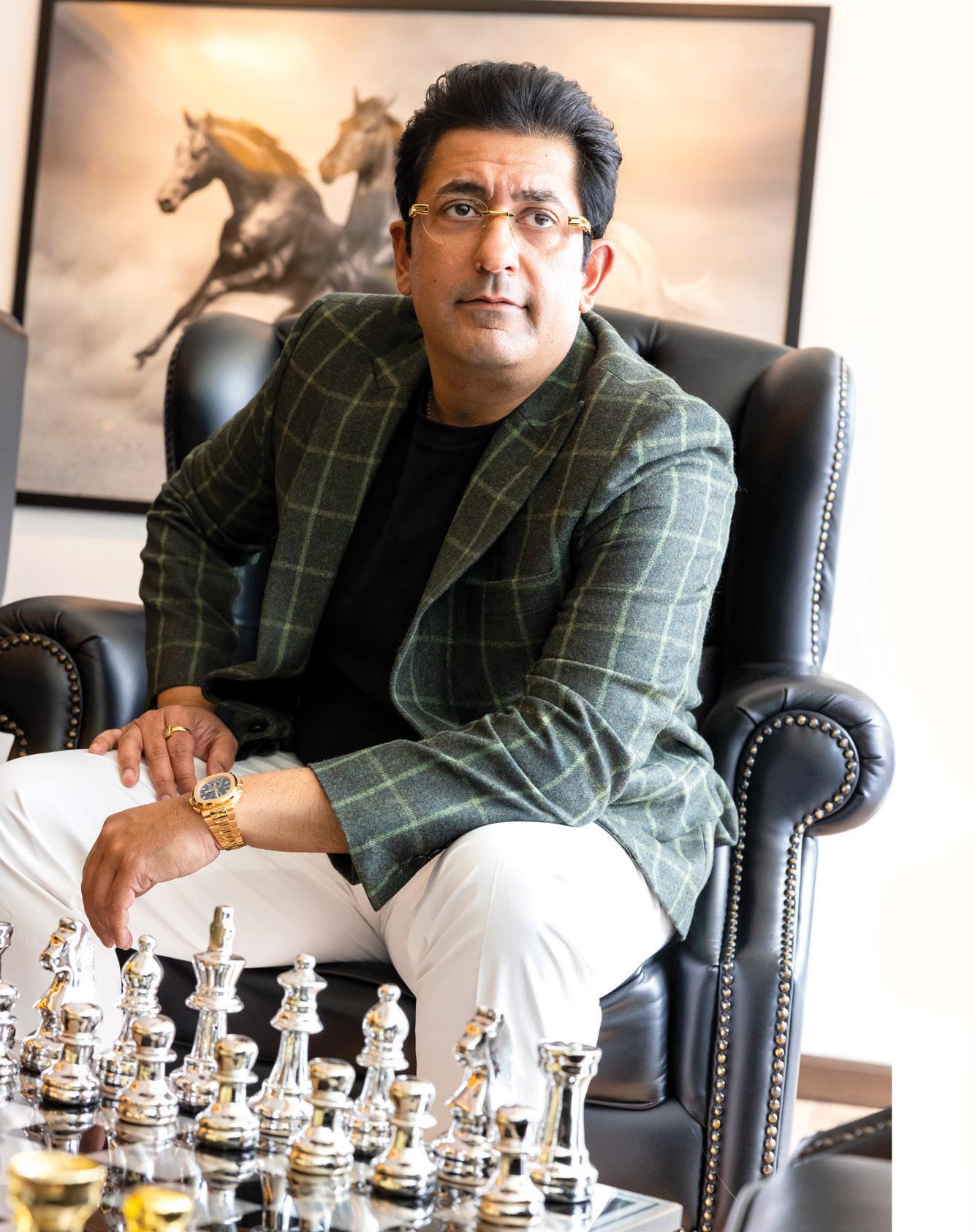
Foster a culture of innovation and excellence within the organisation, and encourage team members to think creatively and strive for continuous improvement
Open communication and collaboration are essential to ensure that everyone’s input is valued and heard
Adaptability is key, especially in Dubai’s dynamic real estate market
Set high standards and demonstrate a strong work ethic to inspire and motivate the team
Create a collaborative, innovative, and performance-driven environment that drives the company’s success
Dubai’s prime residential market is set for the world’s strongest growth in 2023, bucking the trend in other markets such as London and Seoul where values are being impacted by inflation and a clouded economic outlook.
Dubai remains a lucrative luxury property market, where proactive government policy has bolstered the city’s safe-haven status fuelling long-term demand from buyers and investors alike.
Kapoor expects the city’s strategic location, economic stability, and investor-friendly policies to continue attracting foreign investments. This also bodes well for his strategic vision for LCRE’s growth and expansion.
THE PROPERTY MARKET’S LUXURY OR PRIME SEGMENT CONTINUES TO BE A GLOBAL OUTLIER WITH PRICES PROJECTED TO END 2023 AROUND 50 PER CENT HIGHER THAN IN 2021
gulfbusiness.com October 2023 35 COVER STORY
Tapping Dubai’s vast opportunities
Dubai is welcoming talent and capital to drive long-term economic growth, buoyed by a swift post-pandemic. The city is betting on vast investment opportunities that range from property investment to tourism and inflows of foreign direct investments.
Home to the world’s tallest tower and man-made islands, the allure of the emirate as a place to live and do business has never been stronger, and AIX Consultancy is well-positioned to help entrepreneurs turn their dreams into reality. In the heart of the UAE’s tourism and business hub, AIX stands as a
dependable partner, offering comprehensive PRO services and business support solutions.
The investment advisory firm has been supporting investors who are considering tapping into the market and seeking to understand the UAE’s legal framework – a legal system that businesses encounter on a day-to-day basis when operating in the country.
A PLACE TO CALL HOME
Dubai has long been a magnet for people seeking not only prosperity, but also a high quality of life. One of the key factors contributing to Dubai’s allure is its
remarkable standard of living. With worldclass infrastructure, a booming job market and a diverse cultural scene, the emirate offers an unparalleled lifestyle.
“Dubai’s appeal goes beyond its glitzy skyscrapers,” says Samah Ahmed, director of AIX Consultancy. “The city’s commitment to safety and security, along with its forward-thinking government policies, make it a top choice for individuals and families alike.”
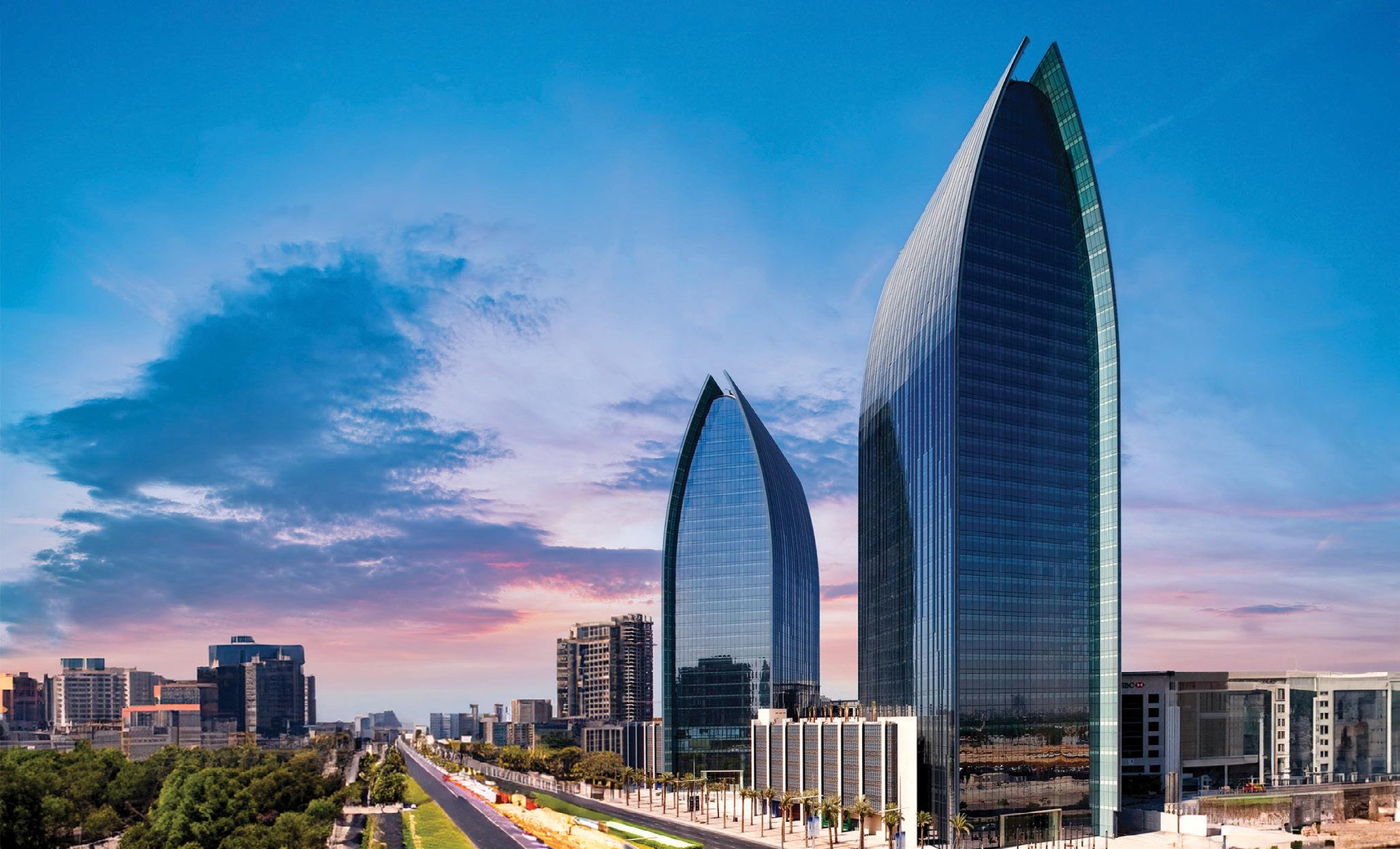
Moreover, Dubai’s strategic location as a global transportation hub and its rapidly expanding aviation industry have opened doors to endless opportunities. The emirate’s exceptional connectivity ensures that residents have easy access to global markets and a gateway to international travel.
Its welcoming attitude towards diversity and its vibrant cultural scene also plays a significant role in attracting new residents. The city’s festivals, exhibitions, and culinary experiences create an atmosphere of celebration and inclusivity that is hard to match elsewhere.
A HUB FOR ENTREPRENEURSHIP
Dubai’s appeal extends beyond its allure as a place to live; it is also a thriving
From visa applications to licence renewals, AIX Consultancy offers a comprehensive suite of services that allow clients to focus on their core operations
Pics: Supplied
business hub. The latest data shows that a record number of entrepreneurs from around the world are flocking to the UAE to set up their businesses and for good reason. The country offers a progressive and supportive environment for businesses of all sizes.
One of the most enticing aspects of business setup in the UAE is low taxation. This fiscal advantage allows businesses to reinvest their profits and expand at a rapid pace, making Dubai an ideal destination for both startups and well-established enterprises.
“The UAE’s business-friendly policies and strategic location make it a magnet for investors,” explains Alaa Abdulrahman, the operations manager of AIX Consultancy. “Dubai’s well-established infrastructure, streamlined bureaucracy, and access to global markets make it a top choice for those looking to expand their ventures.”

Furthermore, the UAE’s commitment to innovation and technology is evident in the numerous free zones and business incubators that have sprouted across the city. These initiatives provide entrepreneurs with the necessary support, resources and a network of like-minded individuals to foster growth and success. Dubai’s ambitious vision for the future,
encapsulated in initiatives such as Expo 2020, reinforces its position as a global business epicentre.
With its strategic location between Europe, Asia, and Africa, the city is strategically situated to facilitate international trade and commerce, attracting businesses from various industries.
A PRODUCTIVE PARTNERSHIP
With a deep understanding of the unique challenges businesses face when setting
up and operating in the UAE, AIX is wellpositioned to steer clients through every stage of their entrepreneurial journey. The investment advisory firm has the knowledge, expertise, and resources that cater to the needs of investors considering setting up in Dubai.
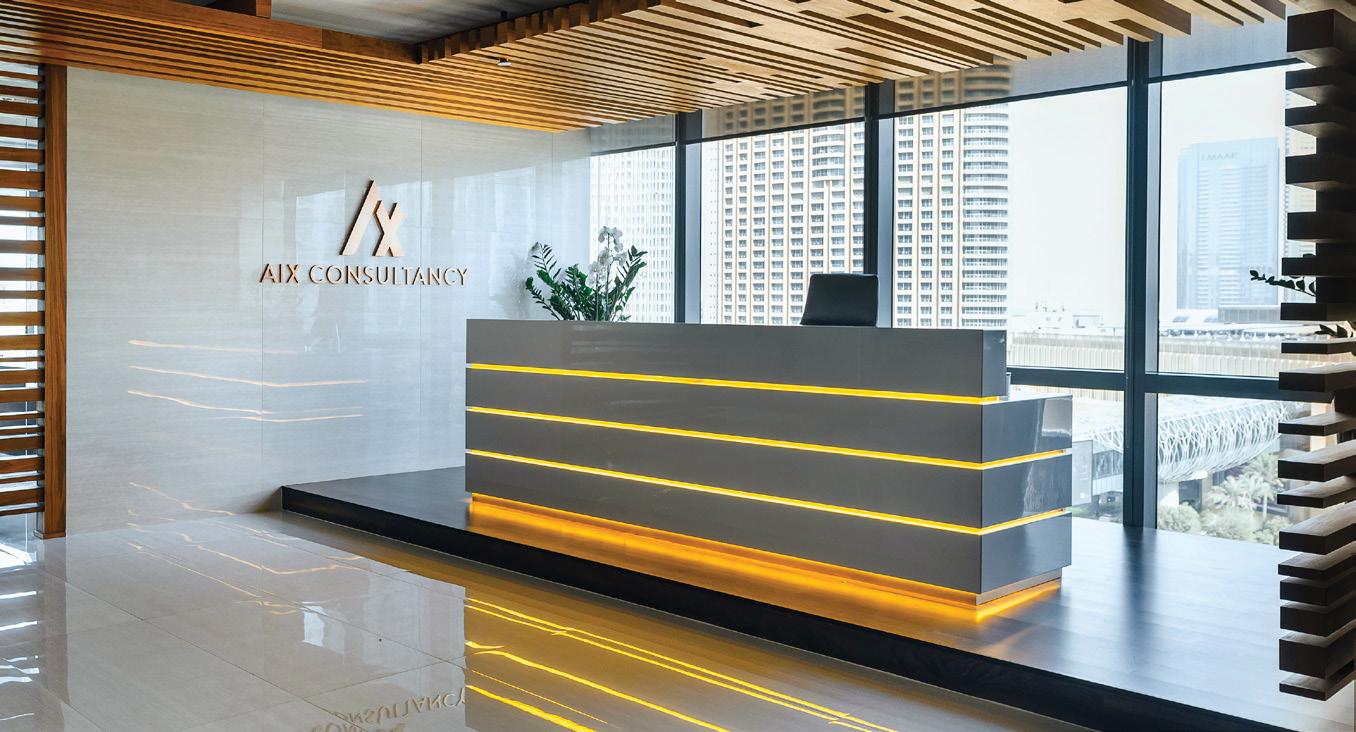
AIX offers a comprehensive suite of services, including company formation, PRO services, visa assistance, and legal compliance. The advisory firm’s team of experts is dedicated to ensuring that clients have a seamless experience, from the initial setup process to ongoing support and growth strategies.
The company’s PRO services streamline government-related processes, ensuring that clients can focus on their core operations. From visa applications to license renewals, the firm handles the bureaucracy, allowing entrepreneurs to dedicate their time and resources to strategic business activities.
“We understand the complexities of the UAE’s legal landscape, and we are here to simplify it for our clients,” says Ahmed. “Our goal is to provide tailor-made solutions that help businesses thrive in Dubai’s dynamic environment.”
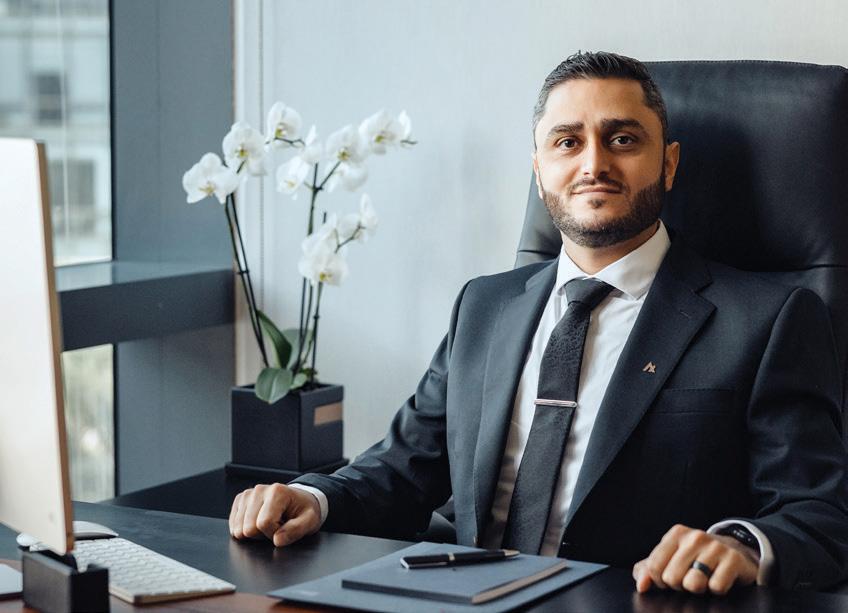
For businesses seeking to grow their global footprint, AIX offers international business support services that cover market research, feasibility studies, and entry strategy development. The company’s services allow investors to confidently explore new horizons and seize global opportunities.
Whether one aspires to make Dubai a home or establish a business, the city’s appeal is irresistible. As Dubai continues to dazzle the world with its exceptional lifestyle and thriving business environment in 2023, AIX remains committed to assisting entrepreneurs and businesses to prosper in this dynamic city.
We understand the complexities of the UAE’s legal landscape, and we are here to simplify it for our clients. Our goal is to provide tailor-made solutions that help businesses thrive in Dubai’s dynamic environment”
Samah Ahmed, director of AIX Consultancy
BRAND VIEW
Alaa Abdulrahman, operations manager of AIX Consultancy
NEOBANKS HAVE RESET THE PARADIGM FOR THE TRADITIONAL







BANKING INDUSTRY IN TERMS OF


CUSTOMER EXPERIENCE, PRODUCT

INNOVATION AND PRICING

SHAPING THE FUTURE OF GCC BANKING






WORDS: KUDAKWASHE MUZORIWA

FEATURES / DIGITAL BANKING gulfbusiness.com October 2023
38
Banking has traditionally been a conservative industry that enjoyed relatively high barriers to entry due to regulations that restrained access for non-bank competitors.
The changes in the regulatory environment and innovative technologies such as open banking have changed the field of play for GCC incumbents as they face fierce competition from neobanks who are billing on user experience as their point of sale.
The GCC is primed for a wave of change in the banking sector, driven by the region’s young and digitally-savvy population and high rate of internet connectivity, as nearly two-thirds of the population is expected to use 5G-enabled smartphones devices by 2026.
“Adoption by millennials, small and medium enterprises (SMEs), and those having sporadic incomes and earnings, embracement of innovative technologies and rising consumerism are some of the catalysts for the success of neobanks,” said S&P Global.
Neobanks, also known as challenger banks, have reset the paradigm for the traditional banking industry in terms of customer experience, product innovation, and pricing.

With a projected market value of $3.45bn by 2026, according to global consultancy firm Boston Consulting Group (BCG), GCC neobanks will soon become a part of the mainstream financial services system. These players have emerged as true game-changers, revolutionising how banking customers in the region manage their money.
“The GCC region o ers an excellent environment for turbocharged growth to digital-only banks. Not only is the region overwhelmingly mobile-friendly – with smartphone penetrations exceeding 95 per cent in many countries – it is also significantly mobile-first, with engagement on mobile apps 1.6 times higher than in Europe and North America,” says Pedro Sousa Cardoso, chief digital o cer, Retail Banking and Wealth Management at Emirates NBD.
Cardoso highlights that many GCC countries are at the forefront of exploring advanced banking technologies.
However, the long-term success of the market hinges on neobanks’ ability to create an artificial intelligence-powered banking model that is customer-centric, operationally e cient and profitable at scale.
THE BANK OF THE FUTURE
The digital transformation in the GCC financial services market was already underway before the turn of the decade, but it was accelerated by the outbreak of the Covid-19 pandemic. The result was a seismic shi t in the way that customers organise their finances.
“In the rapidly evolving GCC landscape, the emergence of digital-exclusive propositions presents exciting opportunities,” says Radu Topliceanu, head of Neo and Personal Banking at Mashreq.
Neobanks such as Wio Bank are starting to have a tremendous impact on consumer finance, the digital
economy, and society at large. Founded in September 2022, Wio has three main business lines: digital banking apps, embedded finance, and banking-as-aservice solutions.

The bank unveiled Wio Personal, its retail banking offering, in August to complement its first banking application, Wio Business. Wio Business has partnered with several entities including the Abu Dhabi Global Market (ADGM) and HUB71 to support and provide startups, freelancers and SMEs with access to simplified, seamless and full digital banking services seamlessly.
“As the digital revolution continues to drive changes across economies, it is paramount for us to evolve new operating models that contribute to the growth of digital businesses in the UAE. We believe the next evolution of banking is a shi t from traditional online banking and pure-play digital banks to that of platform banking and we are excited to launch Wio as the first platform bank in the region,” Jayesh Patel, CEO of Wio Bank said at the digital bank’s launch in September last year.
Dubai-based digital banking platform YAP raised $41m in a funding round that was led by Saudi Arabia-based Aljazira Capital in July 2022 to fuel its expansion into new markets and augment its product o erings.
The challenger bank o ers consumer debit cards, virtual cards with Apple Pay and Samsung Pay spending analytics, YAP 2 YAP, money transfers, bill payments, and real-time notifications of purchases. It has amassed more than 150,000 customers across three markets.
“The growth of these institutions is spurred by the need for on-demand and easier-to-access financial solutions demanded by a young and increasingly digitally savvy, o ten digitally native, demographic,” said BCG.
Al Maryah Community Bank is already a household name in the country’s financial service market. The Abu Dhabi-based neobank developed an innovative solution for its customers to subscribe to initial public o erings and
FEATURES / DIGITAL BANKING gulfbusiness.com October 2023 39
ADOPTION BY MILLENNIALS, SMALL AND MEDIUM ENTERPRISES (SMES), AND THOSE HAVING SPORADIC INCOMES AND EARNINGS, EMBRACEMENT OF INNOVATIVE TECHNOLOGIES AND RISING CONSUMERISM ARE SOME OF THE CATALYSTS FOR THE SUCCESS OF NEOBANKS”
invest in local stock markets through its mobile application.
Zand Bank, another digital-exclusive bank in the UAE, is expected to open its doors for business soon after receiving a banking licence from the central bank in July 2022.
Royal Strategic Partners-backed NAQD Community Bank is the latest neobank to join the UAE’s growing digital banking ecosystem after the challenger received preliminary approval from the Central Bank of the UAE.
“NAQD will provide its customers with a safe, seamless, and cutting-edge digital banking network supported by a reliable and advanced infrastructure as well as the progressive laws of the UAE’s digital economy,” Dr Hamad Al Ali, CEO of Royal Strategic Partners said in a statement after securing the banking licence earlier in March.
Neobanking in Saudi Arabia is yet to reach mainstream adoption but the market is already showing an appetite for alternative solutions that enable customers to access banking services without stepping into brickand-mortar branches.
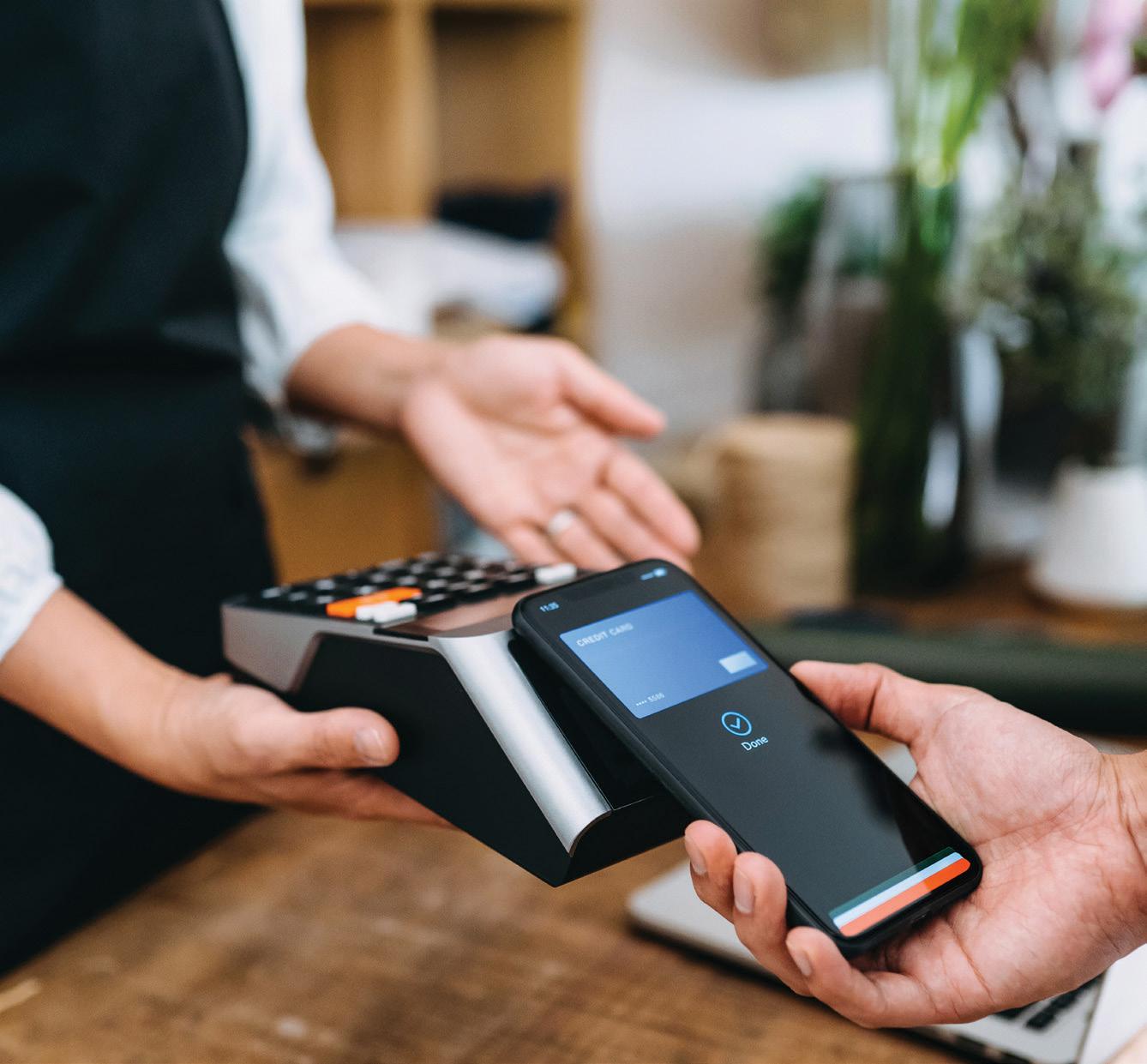
STC BANK, WHICH HAS EIGHT MILLION RETAIL CUSTOMERS AND MORE THAN 120,000 MERCHANTS WITHIN ITS NETWORK, IS CURRENTLY CONVERTING ALL ITS ACTIVITIES AND FUNCTIONS FROM AN E-WALLET TO A DIGITAL BANK
Saudi Central Bank (SAMA) began publishing licensing requirements for digital-only banks in 2020, in line with Vision 2030 and the financial sector development programme, and the country currently has three licensed challenger banks.
D360 Bank, a Shariah-compliant neobank backed by the Public Investment Fund and Derayah Financial Company, is targeting the underserved segments, focusing on addressing customer pain points and leveraging innovation and technology to make banking convenient, accessible and fair to all.
Speaking at the second edition of the Financial Sector Conference in March, Mohammed Ghonaim, acting CEO of D360 Bank, said, “With internal operations now live, D360 Bank is due to announce very soon when it will open its doors for public registration.”
Based on these developments, GCC neobanks are gaining traction with consumers largely because of the superior products and personalised experiences they offer. However, as important as these offerings are within financial relationships, trust is a critical factor and incumbents are still operating from a position of strength on this front.
THE BALANCING ACT
Banking executives in the GCC have recognised that digitalisation is essential to improve performance. However, transforming the business model and legacy system of a traditional bank is slow, costly and complex.
THE SCATTERED MARKET, WHERE SAUDI ARABIA AND THE UAE COMPRISE 80 PER CENT OF THE GCC’S TOTAL POPULATION, HIGHLIGHTS THE NEED FOR SCALABLE CLOUD SOLUTIONS
stc Bank, which boasts eight million retail customers and more than 120,000 merchants within its network, is currently converting all its activities and functions from an e-wallet to a digital bank.
Saudi Digital Bank, which will run on cloud-native infrastructure and will focus on providing hyper-personalised financial services and products, will target both retail and small and mediumsized enterprise customers.
“As neobanks bridge the gap left by traditional banking infrastructure, they’ve significantly enhanced the user experience and promoted financial inclusion, prompting traditional banks to improve their offerings. This competition benefits customers, ultimately,” explains Abdulla Almoayed, founder and CEO of Tarabut Gateway.
Mainstream banks in the region are taking a greenfield approach, building entirely new digital-first subsidiaries that provide better customer experiences at lower costs. These digital offshoots are
FEATURES / DIGITAL BANKING gulfbusiness.com 40 October 2023
leveraging incumbents’ existing sizeable user bases to gain similar advantages while tapping into new customer segments.
Nomo, a digital bank backed by Kuwait’s Boubyan Bank Group, partnered with UAE’s Abu Dhabi Commercial Bank and Al Hilal Bank in April, giving UAE customers access to UK-based Shariah-compliant multicurrency current and savings bank accounts. The unique proposition allows customers to get finance to invest in the UK’s property market.
Similarly, Mashreq trimmed its nationwide branch network from 34 in 2019 to just 10 this year. The Dubai-based bank is one of several UAE traditional lenders that operates ‘digital spinoffs’ offerings with its consumer-facing Neo and business-focused NeoBiz.
Emirates NBD launched Liv., a digitalexclusive bank for millennials, in 2017. Building on this success, the bank unveiled E20 in 2019, a digital bank that caters to the needs of small and medium-sized enterprises.
Dubai Islamic Bank also introduced its digital spinoff rabbit in December 2021. The shariah-compliant lender’s digital banking platform offers current accounts, globally accepted debit cards as well as payments and money transfer services.
“The scattered market, where Saudi Arabia and the UAE comprise 80 per cent of the GCC’s total population, highlights the need for scalable cloud solutions. Amidst the rise of digital initiatives by incumbents, striking the right balance between innovation
and regulatory adherence is crucial,” adds Topliceanu.
Overall, GCC mainstream banks are leveraging their existing resources to beat neobanks at their own game by introducing cloud-native digital spinoffs that enable faster time-to-market for the launching of new products.
These greenfield or speedboat banks are independent, cost-effective and agile digital banking spinoff that operates like fintechs.
STEPPING INTO THE SPOTLIGHT
The business of banking is changing rapidly and open banking is the perfect growth catalyst for neobanks. McKinsey said though several banks are adopting open-banking enablers, successful challenger banks gain a competitive advantage by building an open platform from the outset.
Cardoso said many GCC countries are at the forefront of exploring advanced banking technologies.
Open banking is revolutionising the GCC financial industry by enabling the secure sharing of customer financial data between banks, non-bank financial institutions, and third-party financial services providers.
“Open banking empowers neobanks to lead the shift towards digitised banking (and capture market share). We engage with banks and neobanks via partnerships; more comprehensive bank connectivity is better for the wider financial ecosystem,” adds Almoayed.
When looking at open banking, the power comes through the use of application programming interfaces (APIs), which enable third parties to bypass traditional intermediaries and replace them with more innovative technology.
“Banks have an opportunity to integrate into the growing ecosystem by embedding their services in apps run by big tech companies, cross-industry players, fintechs and other third-party providers,” said Accenture.
Open banking in the Gulf region exists on a spectrum, from models driven by regulators to those led by industry. In UAE, open banking is industry-led, with guidance from the Abu Dhabi Global Market (ADGM) and Dubai International Finance Centre (DIFC).
ADGM has developed its API regulatory guidance, while DIFC has been collaborating with industry players to establish an API sandbox.
SAMA issued a roadmap for open banking in 2021 and published an open banking framework in November 2022. Saudi Arabia also unveiled its ‘Open Banking Lab’ to speed up the development of open banking in the country in December 2022.
Last September, the Central Bank of Bahrain ordered retail banks and financial institutions operating in the kingdom to implement the requirements for the second phase of its open banking framework. The framework seeks to enhance the reach and quality of services offered by retail banks through digital online and mobile channels.
“The GCC has rapidly moved forward with truly transformative financial services innovation,” Almoayed reveals, adding that the region is committed to building an ecosystem where traditional banks, fintechs, and neobanks coexist and complement each other through collaboration.
GCC traditional banks still enjoy some benefits of being consumer’s financial focal points. However, though they are expected to retain a strong position in the near term, neobanks will gain share in specific product areas such as digital payments, digital lending, buy-nowpay-later (BNPL) and remittances, by targeting specific customer groups such as the region’s tech-savvy youth.
FEATURES / DIGITAL BANKING gulfbusiness.com October 2023 41
AS NEOBANKS BRIDGE THE GAP LEFT BY TRADITIONAL BANKING INFRASTRUCTURE, THEY’VE SIGNIFICANTLY ENHANCED THE USER EXPERIENCE AND PROMOTED FINANCIAL INCLUSION, PROMPTING TRADITIONAL BANKS TO IMPROVE THEIR OFFERINGS”

OCTOBER 19TH 2023
VERSACE DUBAI FIND OUT MORE EMIRATESWOMAN.COM/AWARDS @emirateswoman VOTE PROCESSING PARTNER PRESENTED BY VENUE PARTNERS
PALAZZO
SPONSORS
AUTOMOBILES
THE TRANSFORMATION OF THE AUTO INDUSTRY IS UNFOLDING AND HERE’S WHAT IT ENTAILS...







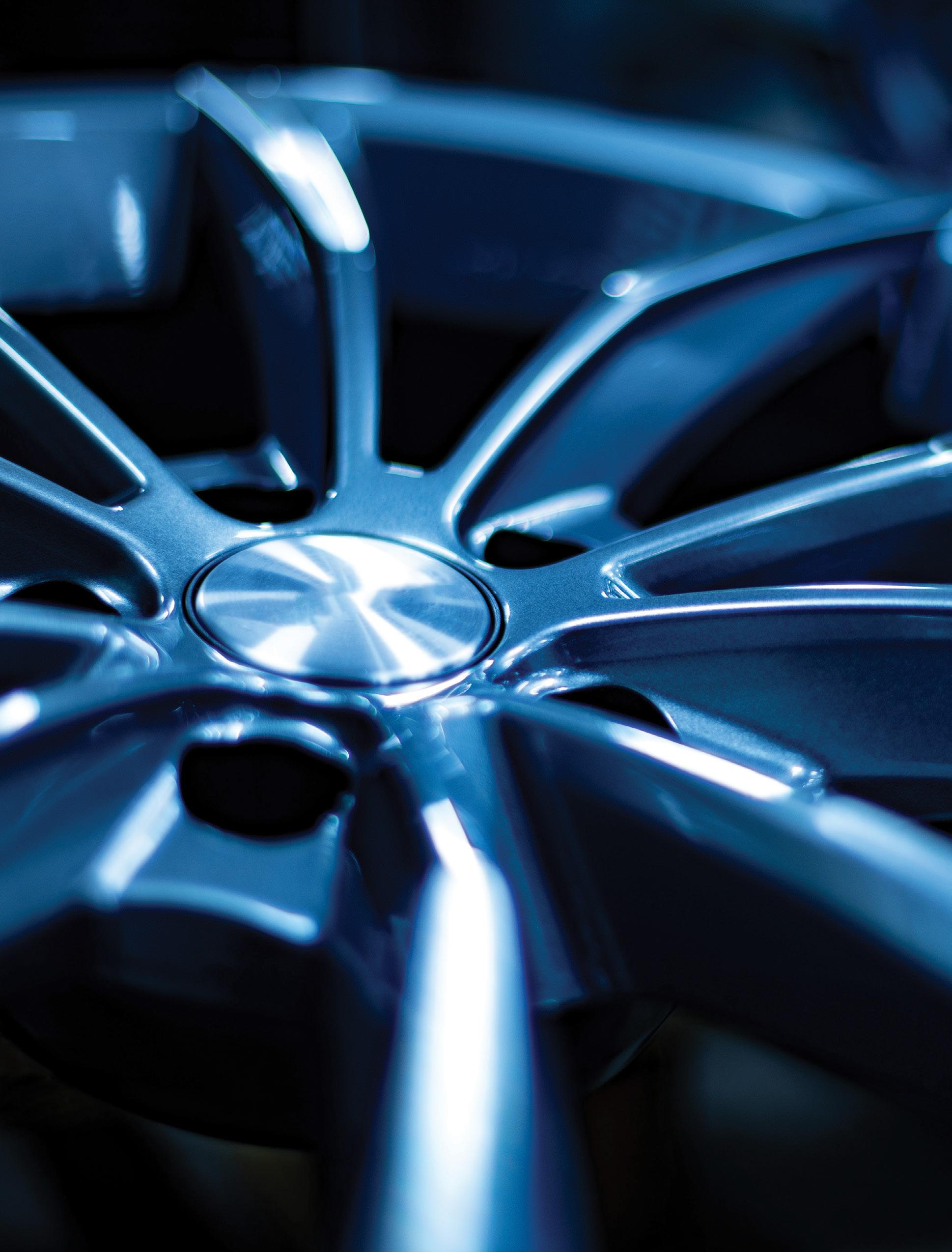
SPECIAL REPORT
Pic: Getty Images/Pencho Chukov
A CELEBRATION OF AUTO INNOVATION
THOUSANDS OF PROFESSIONALS FROM THE AUTOMOTIVE SECTOR WILL MEET AT AUTOMECHANIKA DUBAI TO GAIN INSIGHT INTO THE KEY TRENDS THAT ARE TRANSFORMING THE INDUSTRY
More than 1,800 exhibitors from over 60 countries will converge at Dubai World Trade Centre (DWTC) for Automechanika Dubai 2023. This is the show’s largest edition in its two-decade run.
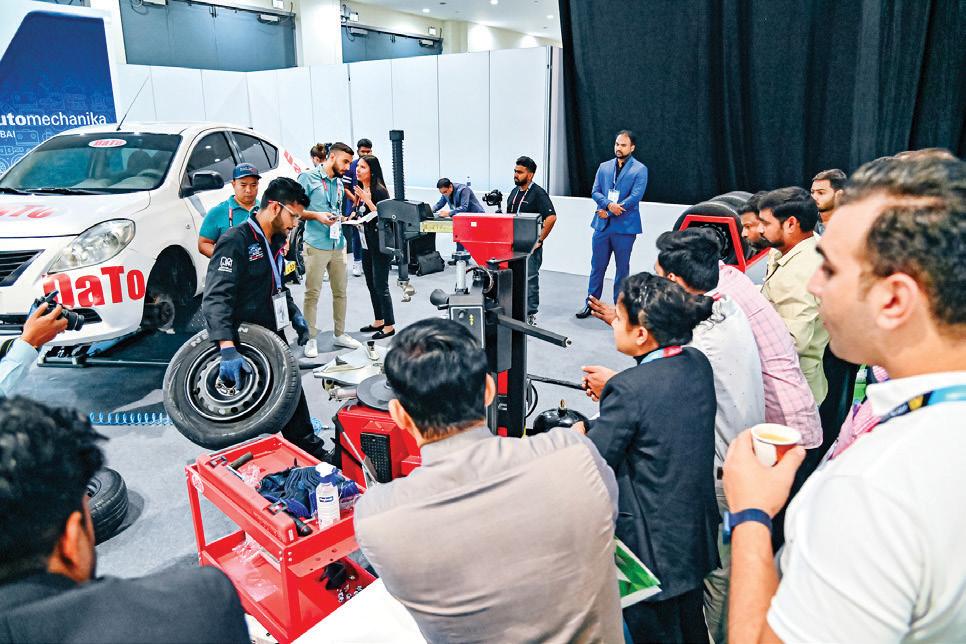
The event, being held from October 2-4, is witnessing a year-on-year growth in exhibitor participation to the tune of 57 per cent. It will feature 20 country pavilions set across 14 halls at DWTC. In 2022, the show attracted 1,145 exhibitors and 42,937 visitors from 145 countries. Figures show that C-suite professionals and managing directors accounted for almost a third (32 per cent) of visitors to last year’s show, followed by business development and sales (30 per cent), and procurement and purchasing personnel (8 per cent).
Sustainability will be under the spotlight at Automechanika Dubai, as automotive a termarket professionals from around the world come together to discuss the significant role that electric vehicles (EVs) are playing within the industry.

The UAE government has also shown its commitment to electrification with its recently revised National EV Policy, which will see a 50 per cent increase in the number of EVs on the country’s roads by 2050.
New event features such as Innovation4Mobility and the Lubricants Technology Conference will also address how the sector is working to reduce its environmental impact as participants explore related market opportunities, share knowledge and forge new partnerships.
FOCUS ON GREEN MOBILITY
Mahmut Gazi Bilikozen, portfolio director at Automechanika Dubai organisers Messe Frankfurt Middle East, said, “This year, we will have a keen focus on the EV sector, where, in the UAE for example, demand for EVs is projected to grow at a compound annual rate of 30 per cent between 2022 and 2028, according to the global electric mobility readiness index published last year.”
The event will feature several new events designed to enable attendees to exchange knowledge and identify new commercial opportunities.
On the exhibition’s opening day, delegates will learn more about emerging trends from the fields of climate-neutral, connected and autonomous mobility as part of Innovation4Mobility.
The event will see expert speakers share insights into sustainability-related issues such as EV charging infrastructure, battery recycling and green investment opportunities.
The Lubricants Technology Conference, held on day two of the show, will address a range of segment-specific themes such as digitalisation, cold blending technologies and the prevention of corrosion in EV drivetrains.
OTHER KEY HIGHLIGHTS
DEMAND FOR EVS IS PROJECTED TO GROW AT A COMPOUND ANNUAL RATE OF 30 PER CENT BETWEEN 2022 AND 2028
Other features at this year’s event include the Automechanika Dubai Awards, which will recognise excellence from across the MENA region; Automechanika Academy, an interactive learning and networking hub; AfriConnections, a platform that connects African buyers with global suppliers; Modern Workshop, a programme that enables workshops, garages and repair centres to become future-ready; and the PitStop Challenge, which o ers automotive professionals an opportunity to demonstrate their skills under pressure.
44
Pics: Automechanika
Features / Auto Show
ON THE ROAD TO SUSTAINABILITY
With experts aiming to cap global warming at 1.5 degrees Celsius, every major sector, including the automotive industry, is shi ting gears to reassess the status quo and adapt to collectively meet the challenge of achieving carbon neutrality.
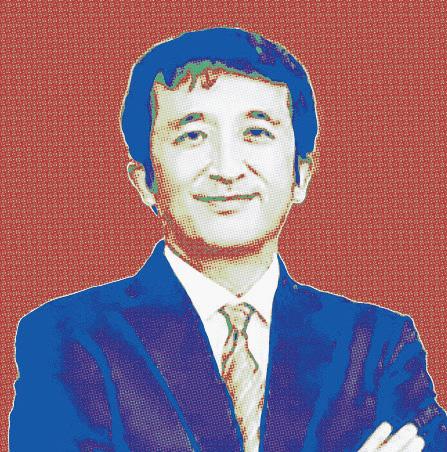
Toyota Motor Corporation’s pursuit of carbon neutrality began over two decades ago with the introduction of the iconic Prius, the world’s first mass-produced hybrid electric vehicle (HEV), in 1997. In 25 years, Toyota sold more than 20 million electrified vehicles, significantly cutting CO2 emissions globally by over 160 million tonnes. We remain committed to achieving carbon neutrality by 2050 through a multi-pathway approach to cra ting sustainable mobility solutions that leave no one behind.

Our electrification drive marked a significant milestone with a new battery electric vehicle (BEV) factory. Established in May, this specialised organisation will not only lead Toyota’s development, production, and business operations, but will also spearhead the company’s advancement in next-gen BEVs. One of the BEV factory’s primary directives includes the development of an energy and cost-e cient solid-state battery for a 2026 next-gen BEV launch with a 1,000 kilometre range.
Our newly established hydrogen factory aims to promote business across three key areas: localising R&D and production in major markets, strengthening alliances with leading partners to provide a ordable fuel cells, and competitiveness and technology.
The hydrogen factory is preparing for the 2026 launch of a next-gen fuel cell (FC) system for commercial use that prioritises longevity, cost-efficiency,

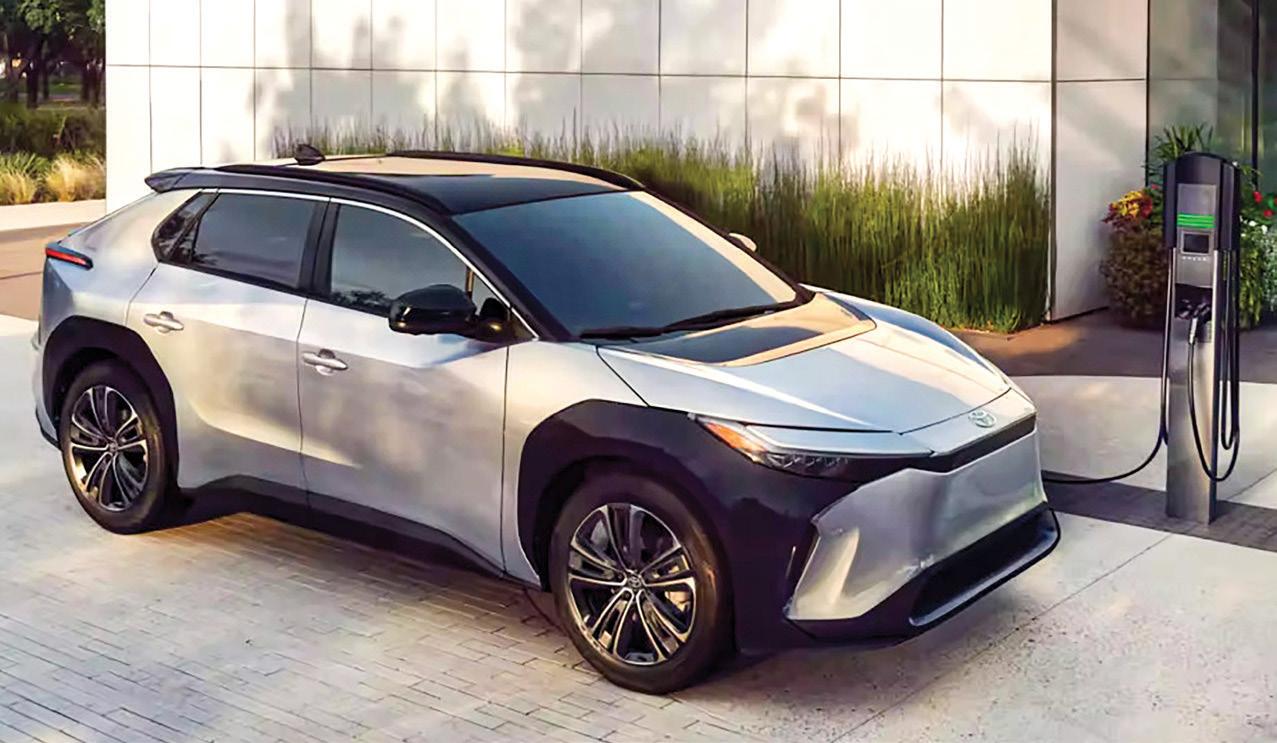
and low fuel consumption, targeting a 20 per cent range boost, and 37 per cent cost cut through technological advancements, volume e ciency, and localisation.
In addition to making all factories carbon neutral by 2035, Toyota’s lineup of eco-friendly vehicles continues to grow. The company aims to develop and o er a full lineup of 30 BEV models by 2030, including passenger and commercial vehicles, with a target of 3.5 million annual global sales within the same timeframe. This includes plans for the shorter run where, in April 2023, the company announced its target to introduce 10 BEV models by 2026 and 1.5 million electrified vehicle sales. While these seemingly only begin to scratch the surface, the company’s e orts are anticipated to yield a 33 per cent CO2 emissions reduction by 2030 and a 50 per cent reduction by 2035 compared to 2019.
45
WE ASKED SOME OF THE WORLD’S LEADING AUTOMAKERS ON WHAT THEIR SHORT AND LONG-TERM SUSTAINABILITY GOALS WERE. HERE’S WHAT THEY SAID
COMPILED BY SHIVAUM PUNJABI
Features / Sustainability
Pics: Supplied
KEI FUJITA, chief representative, Middle East and Central Asia Representative Office, Toyota Motor Corporation
For Polestar, our mission is to lead by example and share information to inspire others to follow suit. So, for example, saying that we’re going to create a climate neutral car by 2030 with the Polestar 0 Project, that’s in line with this challenge that we have set ourselves.

How are we going to do this? We must find ways to decarbonise the supply chain and production process. We are being very outspoken about the target that we set for ourselves, and making that commitment is an invitation to others to participate and set similar goals as well. Only by industry-wide collaboration can we create that shi t in supply chains and advancement in technologies to make our objectives achievable.
We want to show that the sustainable path can also be competitive. Like all companies, we set parameters for our projects, such as cost, quality of delivery, profitability and so on. What’s di erent for us is that we’ve set the sustainability parameter there as well, and a CO2 target for each project. We’re really challenging our designers and engineers to find solutions, and there’s a lot of creativity that comes out when you start challenging
talented people like these, the magic really happens.
The Pathway Report, a joint report between Polestar, Rivian and Kearney focusing on sustainability in the automotive industry, established three key levers we have to focus on. The first is obvious, we have to accelerate the transition to EVs. The second is that these EVs must be charged with renewable energy. And the third is to decarbonise the supply chains.
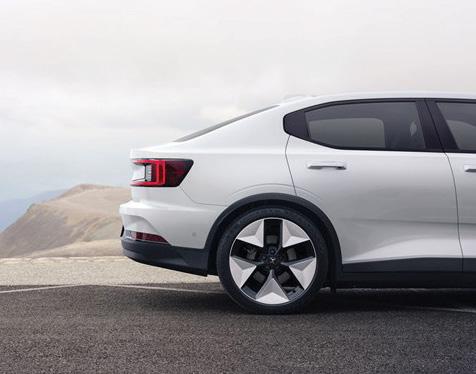
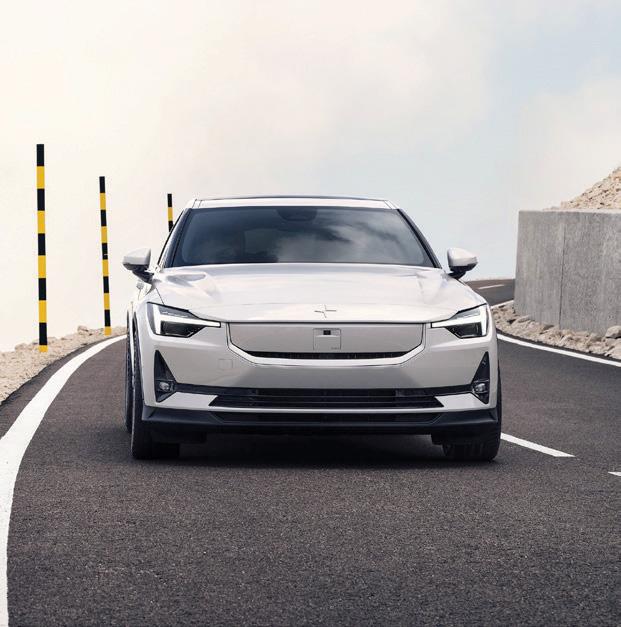
Of course, to achieve that there are some very important tasks ahead of us. For example, ensuring that we’re scaling the volumes of batteries being produced
in a sustainable way, or investing in the build-out of renewable energy to support the transition.
And finally, supply chain decarbonisation, which can be accelerated if companies come together to place requirements on suppliers. This is especially important for energy intensive materials and parts, like batteries, steel, and aluminium.
Traceability through blockchain is also very exciting. If we can successfully trace materials, that lays the foundation for improvement. At Polestar, we’ve been able to implement blockchain traceability on essential materials including cobalt, mica, lithium and nickel, so we can have visibility on where they are coming from.


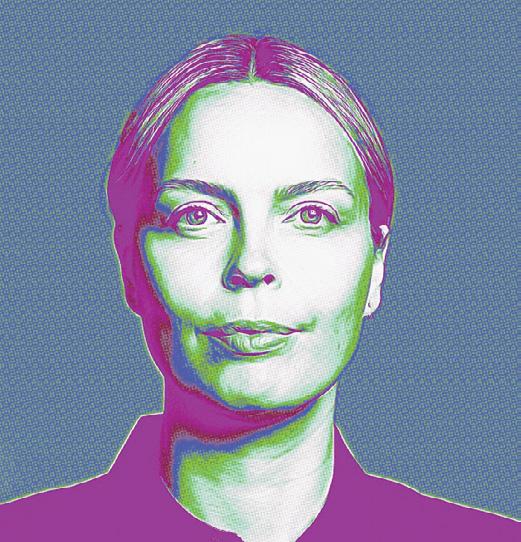
46 Features / Sustainability
FREDRIKA KLAREN, head of Sustainability at Polestar Global
Honda has set ambitious global targets to focus our future development. We will be carbon neutral across all global operations by 2050, adopting a multi-pathway approach by deploying the most appropriate technologies and solutions to best suit the markets we operate in.
The automotive industry is going through an immense change like never seen before. We cannot speak for other manufacturers, however at Honda our goals are very clear, at the end of April,
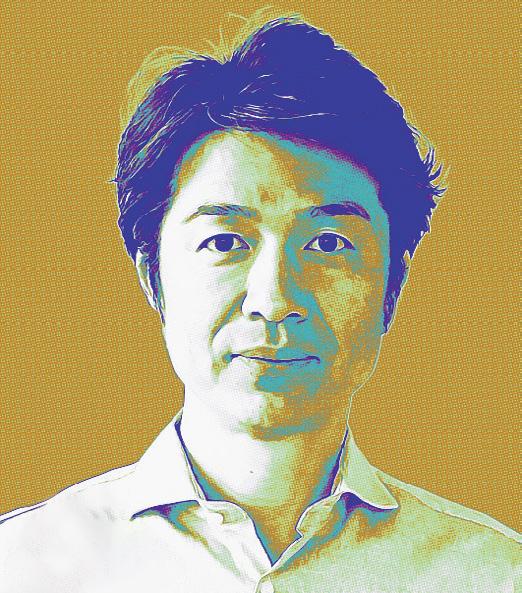
For automobiles globally, we have committed that 100 per cent of our sales will be zero-emission by 2040. And as a step on this journey, last year we confirmed Honda will launch 30 EV models globally by 2030. For motorcycles, we are committed to carbon neutral operations during the 2040s and have announced the launch of 10 EVs globally by 2025.
We are proud that Bentley is a true industry-leader when it comes to pursuing an ambitious sustainability strategy. For the long-term, we are completely transforming our entire operations and product range, moving towards end-toend carbon neutrality by 2030. This is driven by our Beyond100 Strategy, the culmination of two decades of innovation and achievement.
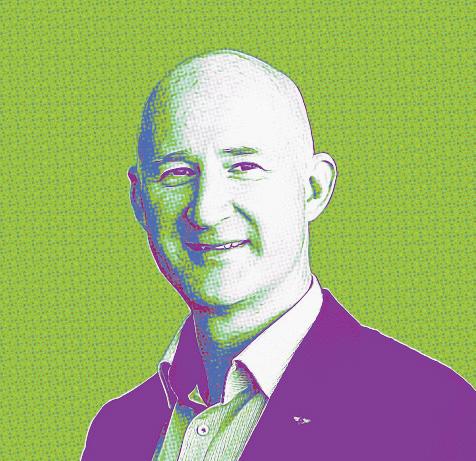
We have already reduced the environmental impact of our factory in Crewe, UK, which has been certified carbon neutral by the Carbon Trust since 2019. And we recently launched the Bentley Environmental Foundation, which supports a wide range of initiatives, with initial launch partner projects including Project Drawdown, The Biomimicry Institute and Sustainable Surf.


In terms of products, we have already introduced two hybrid models globally –the Bentayga and Flying Spur – as part of our strategy to develop a fully electrified range of cars by 2030. A further example of the company’s attention to detail is the recent introduction of Olive Tan Leather
during Monterey Car Week. With this, we became the first automotive manufacturer to implement an industry-leading process that uses an organic by-product of the olive oil industry during the leather tanning process that uses less water and is free from harmful metals, minerals and aldehydes. It is this focus that will ensure that our every part of business becomes more sustainable.
In terms of our cars, the target is very clear – Bentley is implementing a transformation programme across our entire

product o ering. This includes switching our model range to o er exclusively plugin hybrid or battery electric vehicles by 2026, and then full electric vehicles only by 2030.
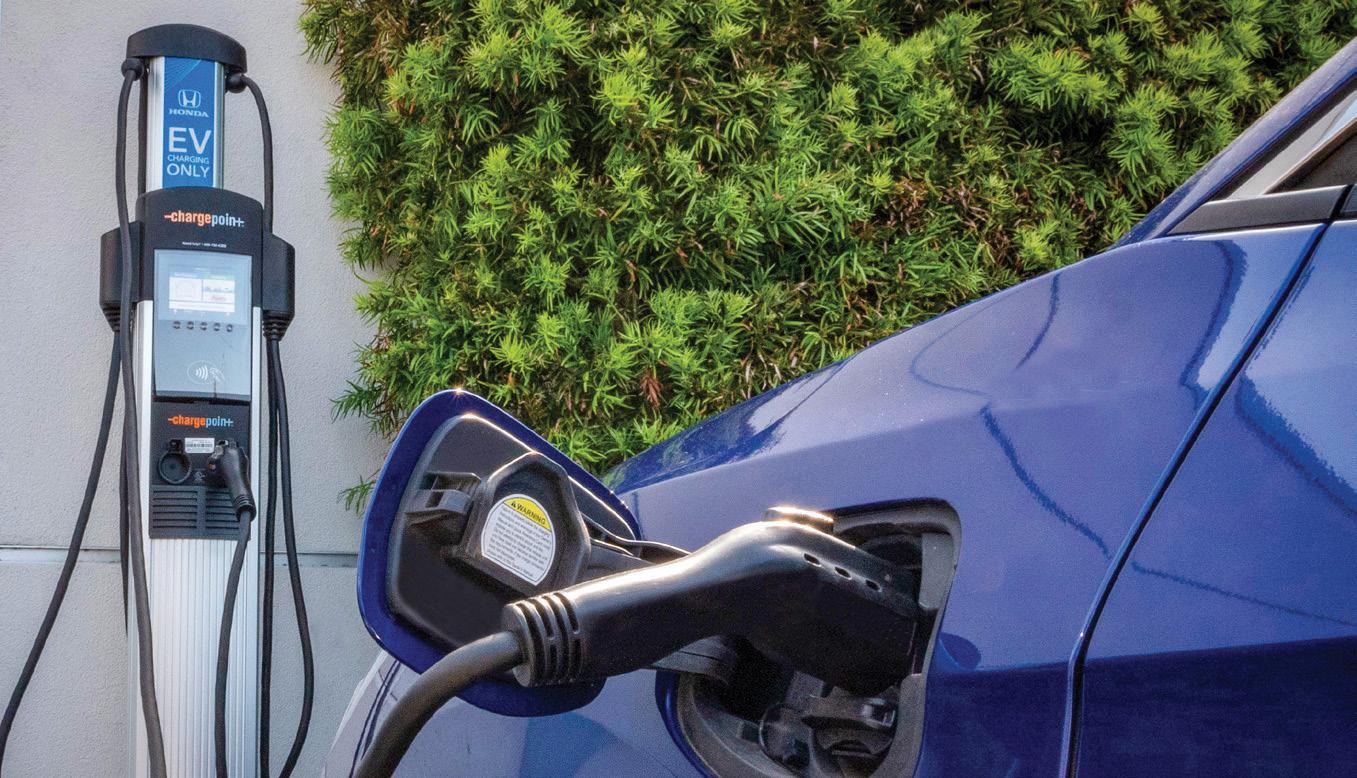



47
Honda Motor CEO, Toshihiro Mibe, reconfirmed Honda’s ambition to deliver mobility for people around the world with zero environmental impact and zero tra c collision fatalities.
RICHARD LEOPOLD, regional director of Bentley for the UK, Middle East, Africa and India
SHU SATO, director of Honda Motor Company (Africa and Middle East)
THE FUTURE IS ELECTRIC
 BY MARISHA SINGH
BY MARISHA SINGH
The recently concluded International Moto Show (IAA Mobility) which took place in Munich, Germany from September 5-10 showcased the future of mobility. With 750 exhibitors, and 300 world premieres –the auto exhibition showcased what auto giants will bring to the market in the coming years.
The theme was electrification and the combustion engine o erings were considerably subdued, with headline makers such as BMW, Mercedes and Porsche showing o their electric vehicle o erings.
Chinese automakers such as Xpeng and BYD made their presence felt with their range of electric cars.
Here are the showstoppers from Munich.
01. BMW showcases Neue Klasse

BMW’s vision of the future is electric, digital and circular. It unveiled the Vision Neue Klasse to the public at the IAA Mobility 2023
show. The car is the luxury auto giant’s concept model built on an architecture that will underpin the company’s electric cars over the coming years.
Vision Neue Klasse features BMW’s iDrive – a digital user experience that is set to merge the real and virtual worlds. The car also has a fullyelectric drive train with sixth-generation BMW eDrive technology.
The concept vehicle has a glass roof along with classic brand elements such as its kidney-shaped grille that fans recognise.
The first cars built on the Vision Neue Klasse architecture are set to enter production in 2025.
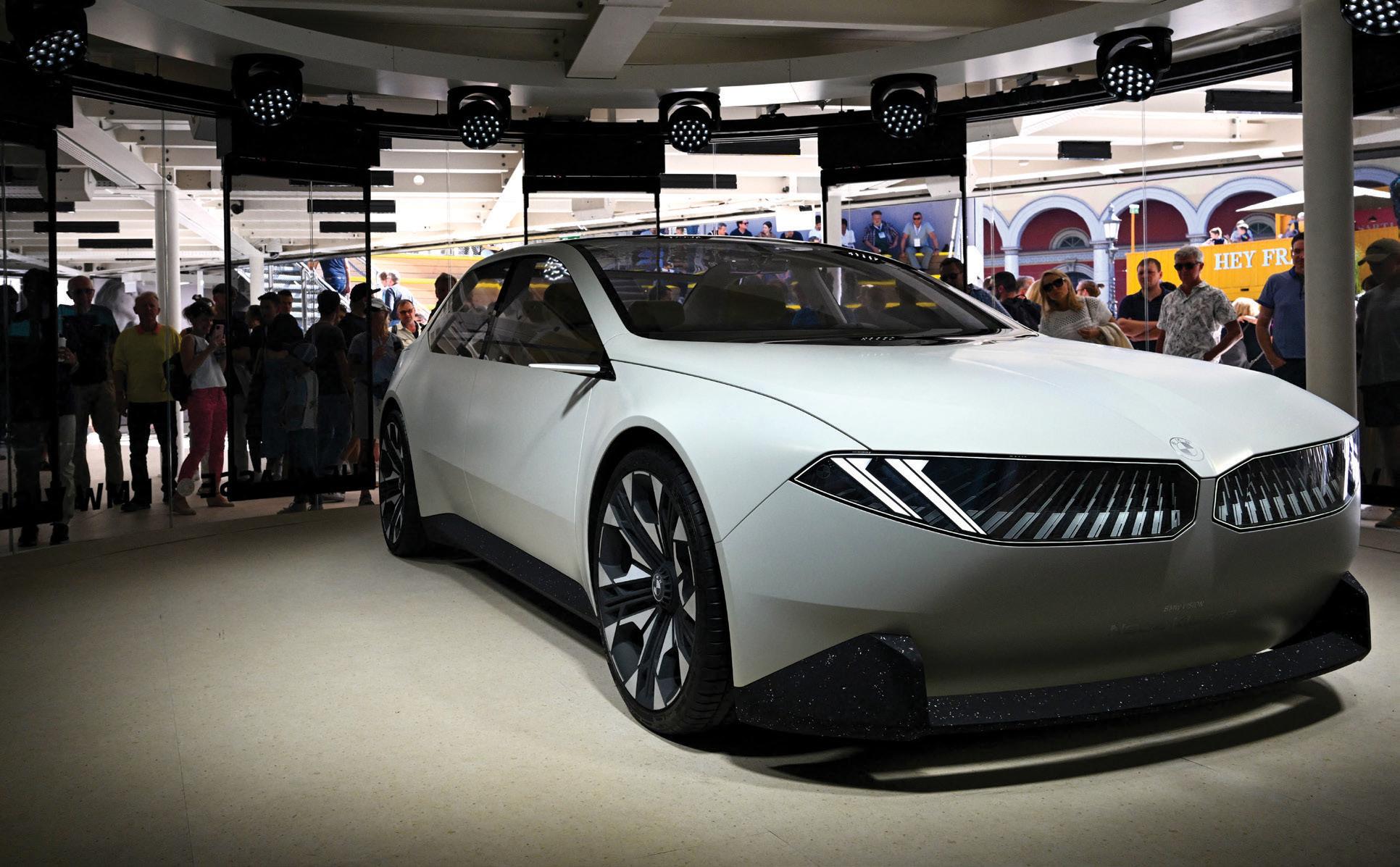
02. Mercedes Benz offers up the Vision One Eleven
Striking orange in colour, the Mercedes Benz Vision One Eleven is inspired by the C 111 experimental vehicles from the 1960s - 70s. It combines the ethos of a luxury sports car with an all-electric engine.
48
Features / Munich Auto Show
THE RECENTLY CONCLUDED MUNICH AUTO SHOW OFFERED A GLIMPSE OF WHAT WE COULD OWN AND DRIVE IN THE NOT TOO DISTANT FUTURE
The car maker said its concept o ering at Munich embraces a new battery concept that uses “high-performance liquid-cooled cylindrical cells with a novel cell chemistry”. This is combined with an “extremely powerful and highly e cient axial-flux motor.”


This car opens up new possibilities in the luxury electric car segment and comes with a touch of futuristic elegance.
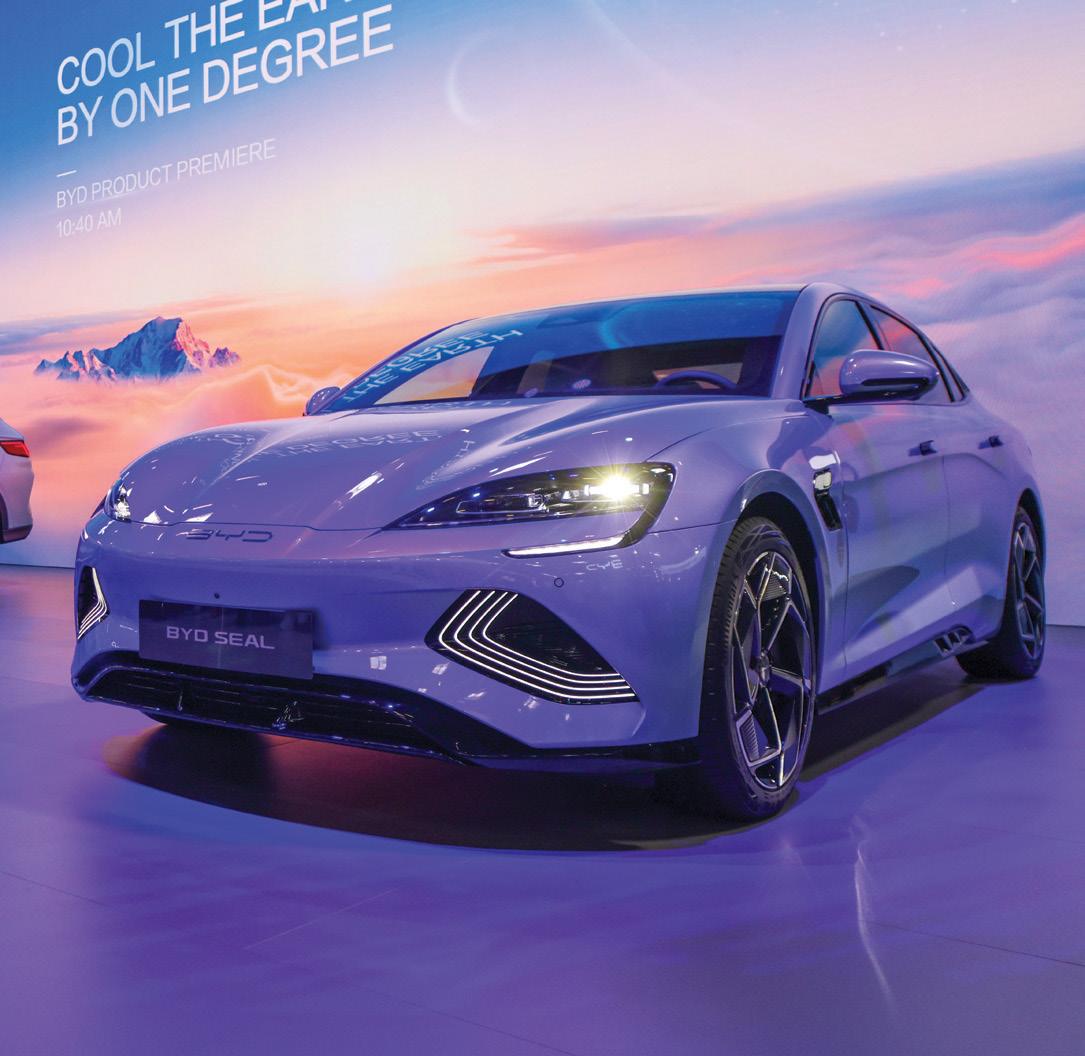
03. BYD (Build Your Dreams)

introduces Seal EV BYD is one of China’s biggest electric carmakers and it chose the Munich Auto Show to launch its Seal vehicles for Europe. The electric vehicle maker brought the Seal all-electric sedan and the Seal U fully electric SUV to Munich.
The entry-level Seal has a range of 550 kilometres while the long-range model has a bigger battery for 700 kilometres autonomy.
On the other hand, the Seal U comes with a battery that can power the vehicle for upto 520 kilometres while a long-range version o ers up to 700 kilometres.
49 Pics: Getty Images
The entry-level Seal has a range of 550 kilometres while the long-range model has a bigger battery for 700 kilometres autonomy”
PORSCHE CALLS THE VEHICLE
“A TECHNOLOGY BEACON FOR THE SPORTS CAR OF THE FUTURE,” AND SAYS IT “PICKS UP THE TORCH OF ICONIC SPORTS CARS OF DECADES
PAST: LIKE THE 959, THE CARRERA GT AND THE 918 SPYDER BEFORE IT”
The car-maker said the limited-production model takes inspiration from the darkness of night, and is derived from the Lucid Air Dream Edition.
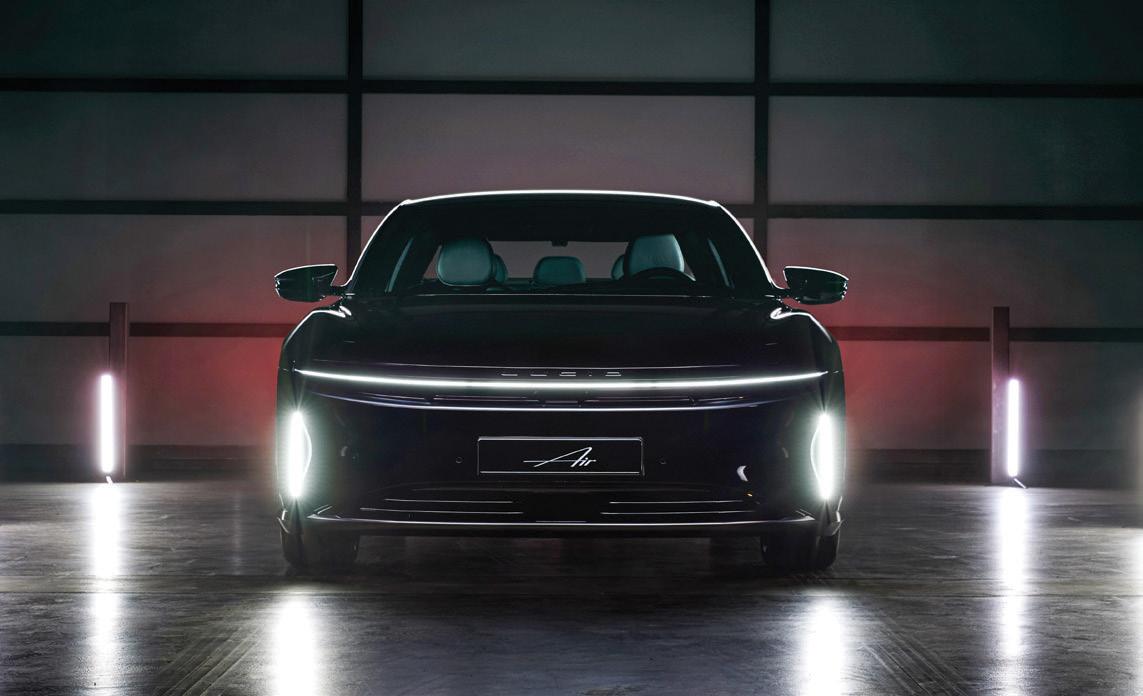
Lucid said the car has a range of 799 kilometres on a single charge coupled with a combined power consumption of 16.6 kilowatt-hours per 100 kilometres.
06. Volkswagen reinvents its GTI
The German automaker chose the Munich show to show off what it will do with GTI versions of its ID electric cars.
The ID. GTI concept car was presented for the first time at the IAA Mobility in Munich. It provides a concrete insight into how Volkswagen will transport the iconic GTI label into the electric future.
The Volkswagen brand is giving its electric offensive an additional boost: by 2027, Europe’s largest automotive manufacturer will launch 11 new all-electric models.
Alongside electric vehicles such as the ID. GTI Concept, ID.4, ID.5 and new ID.7, Volkswagen will also continue to offer combustion engine vehicles.
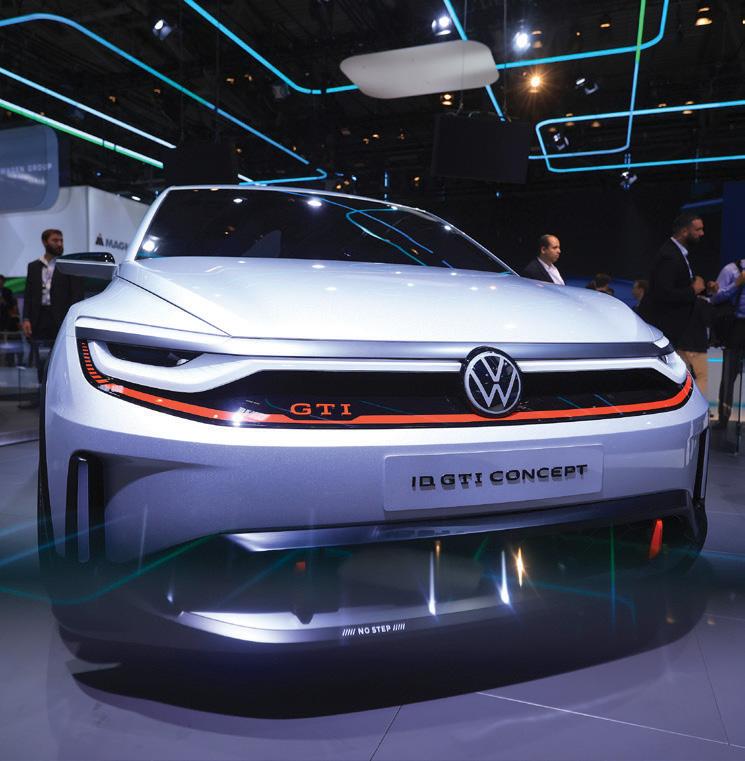
04. Porsche’s on Mission ‘X’
Mission X is a concept electric “hypercar,” as Porsche describes it.
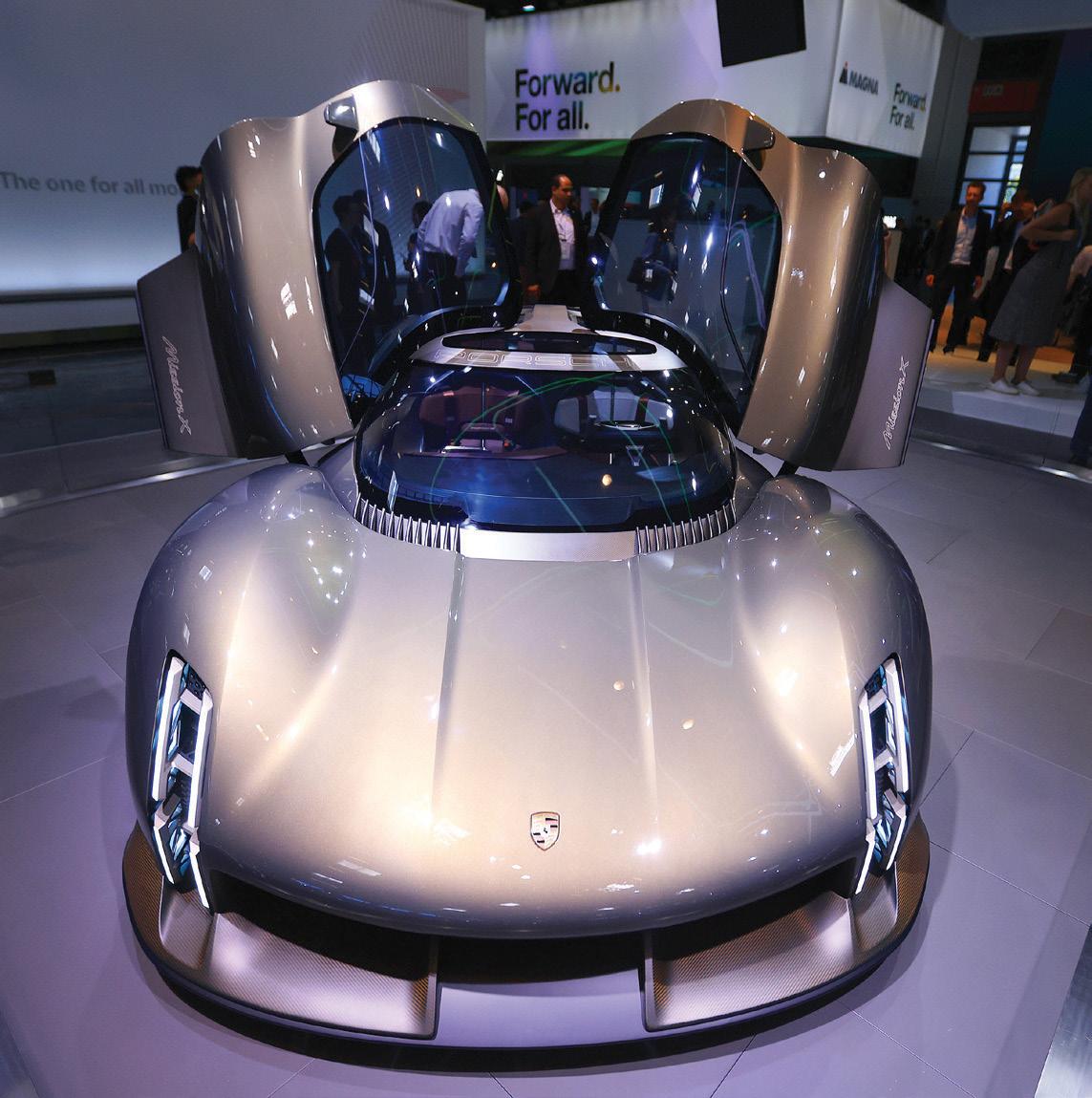
The supercar is aimed at being the fastest roadlegal vehicle at the Nurburgring race track. It was showcased at Munich as a road-ready vehicle.
Porsche calls the vehicle “a technology beacon for the sports car of the future,” and says it “picks up the torch of iconic sports cars of decades past: like the 959, the Carrera GT and the 918 Spyder before it.”
05. Lucid’s Midnight Dream
Lucid Group made its inaugural appearance at the IAA Mobility in Munich. It unveiled the Lucid Air Midnight Dream Edition, a limited-production luxury electric sedan. This series is exclusive to the European market only.
50
Pic: Supplied
Pic: Getty Images
Pic:
Getty Images
07. Opel goes the ‘Experimental’ way
The Stellantis-owned auto maker debuted its experimental concept car in Munich a ter the o cial launch in July. It is aptly named Opel Experimental. The futuristic looking vehicle was designed “to provide a tangible vision of where the Opel brand is heading,” the company said.
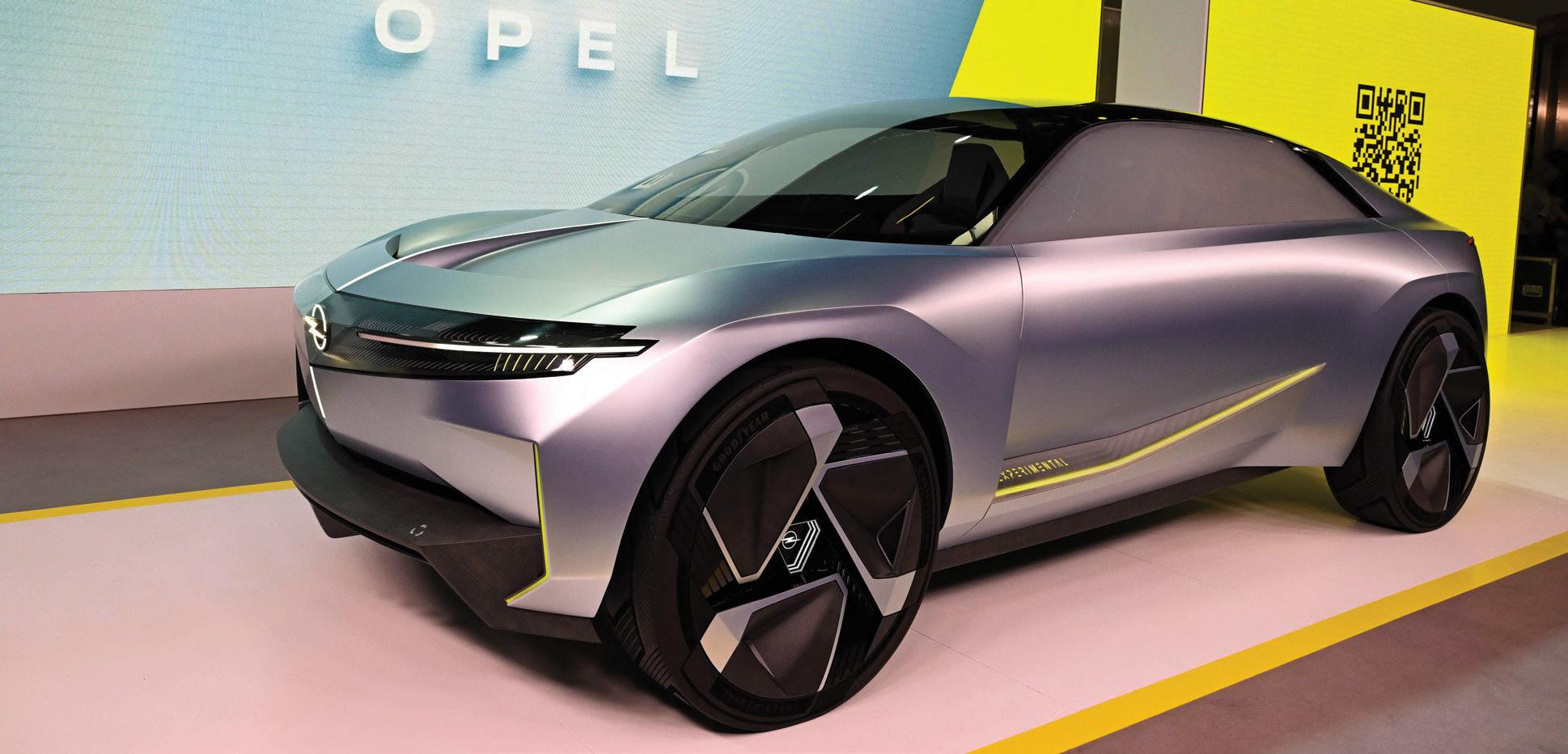
The design is set to anticipate a stylish and tech future for the Opel brand, giving shape to the most technical and extreme vision of the “bold and pure” design philosophy.
The car maker also showcased the new Opel Corsa Electric and new Opel Astra Sports Tourer Electric.
08. MG brings ‘Cyberster’


Morrison Garage (MG)’s Cyberster was first featured at the Shanghai Auto Show earlier this year, but was brought to the IAA Mobility for its European debut.
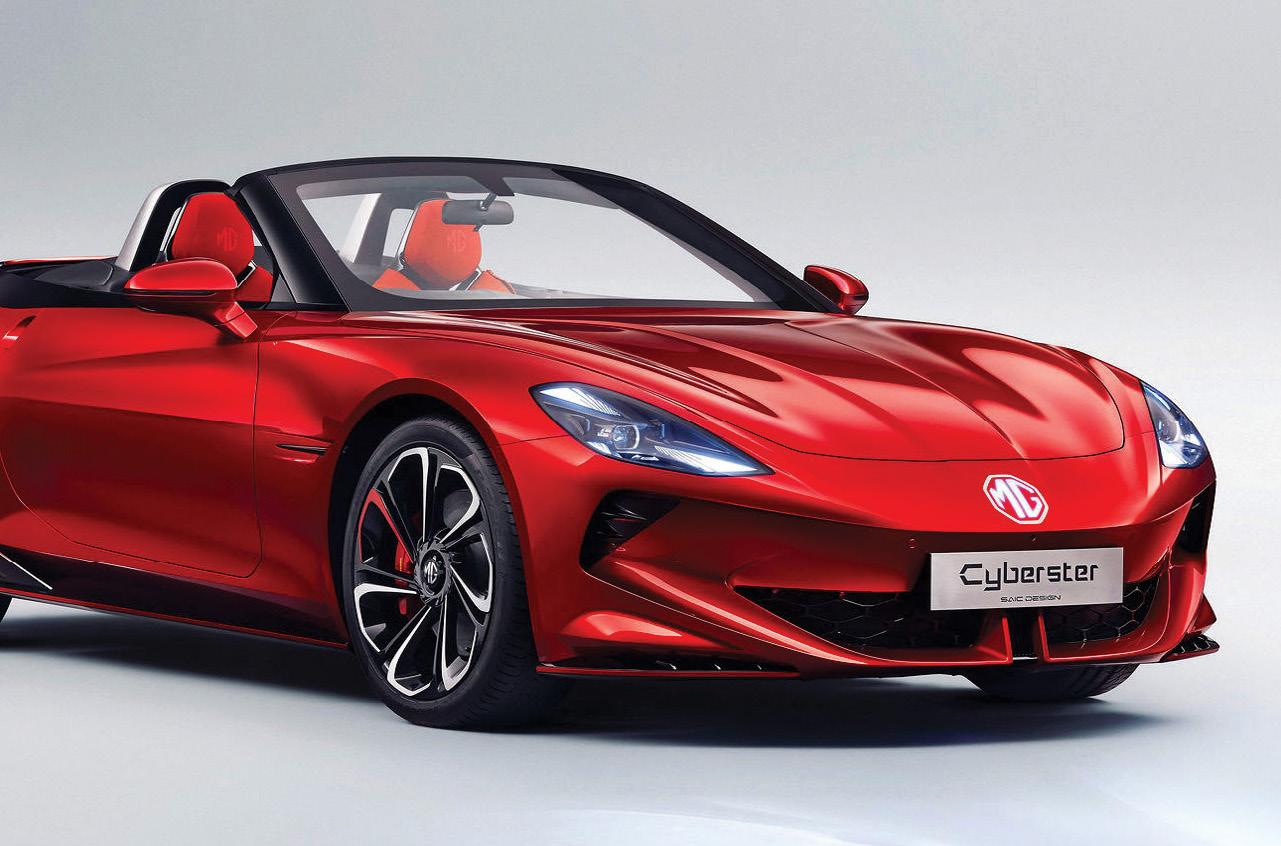
It is built on an electric car architecture that MG says will allow a vehicle to travel 800 kilometers on a single battery charge.
MG said it draws upon the brand’s classic design, but has features like a gaming cockpit and 5G connectivity.
The British brand also brought the MG4 Electric XPOWER and Marvel R, a celebration of the brand’s 100th anniversary celebrations.
CLOSER TO HOME
Moving forward, Dubai is gearing up to host the 20th edition of Automechanika, the Middle East’s largest international trade show for the automotive a termarket and service industry from October 2-4. The exhibition will showcase the world standard in auto-care and the pivots being undertaken by the global automotive a termarket industry.
51 Pic: Supplied
Features / Munich Auto Show
The design is set to anticipate a stylish and tech future for the Opel brand, giving shape to the most technical and extreme vision of the “bold and pure” design philosophy”
Pic: Getty Images
NEW AND ENHANCED PORSCHE CAYENNE:


BUILDING UPON THE SUCCESS OF THE THIRD-GENERATION CAYENNE, THIS MIDCYCLE REFRESH BRINGS SUBTLE YET IMPACTFUL UPDATES THAT ELEVATE THE CAYENNE’S STATUS IN THE WORLD OF HIGH-PERFORMANCE LUXURY SUVS
BY SHIVAUM PUNJABI
The Cayenne was first launched in 2002, with Porsche unveiling its first-ever SUV. Two decades later, the game changer is the luxury automaker’s most successful vehicle to date.
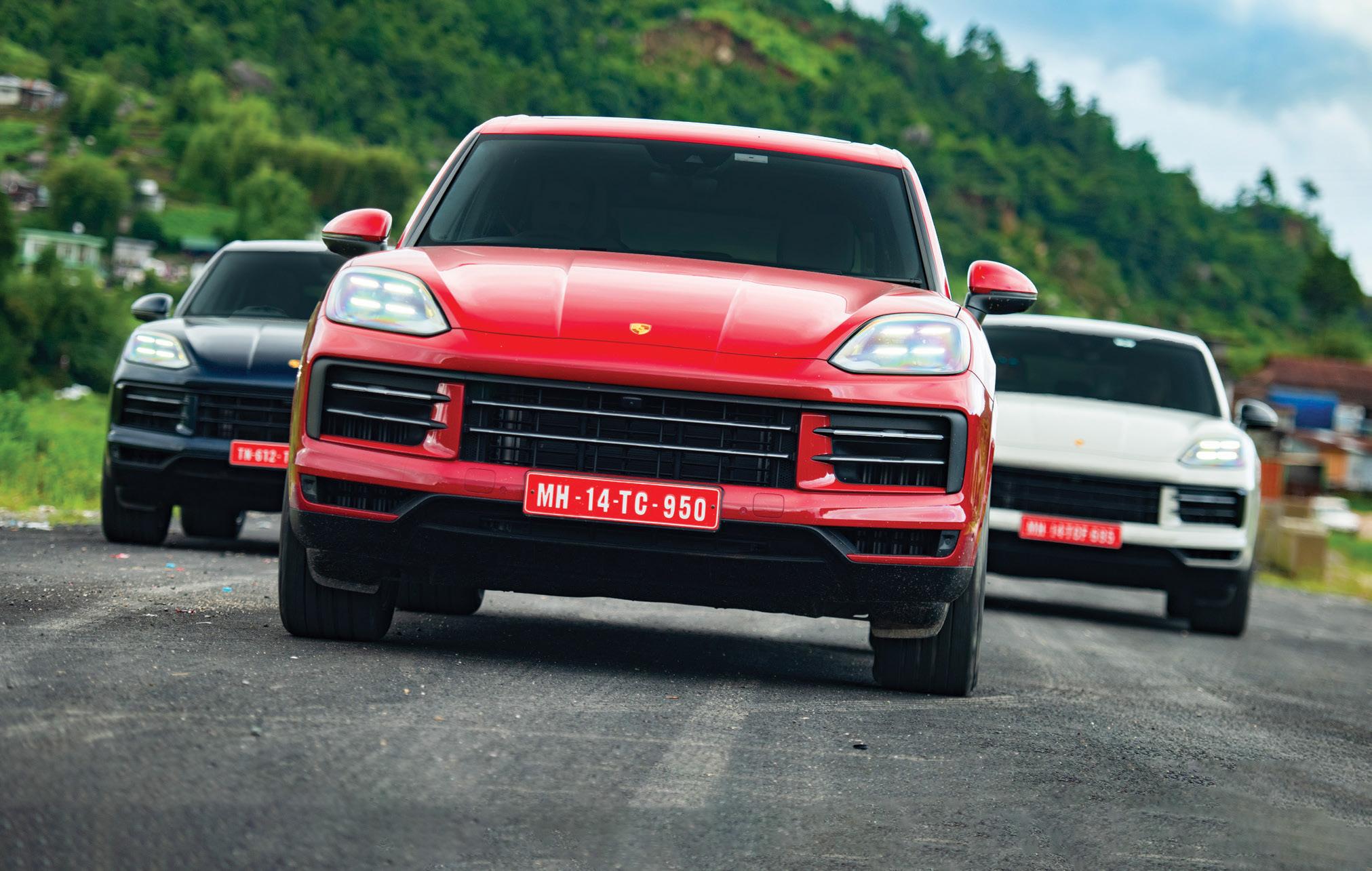
In April, the brand introduced the latest Porsche Cayenne 2024. This is the third generation of the Cayenne globally, and the ‘faceli t’ version of the third generation. The SUV has always been a symbol of automotive sophistication, and this version maintains that tradition.
I recently travelled with Porsche to North East India to experience the Cayenne’s performance at close quarters. Driving over two days from Guwahati, in the state of Assam, to Cheerapunjee, in the state of Meghalaya, and back, was a great way to experience all the latest enhancements to this legacy SUV.
THE LOOKS OF IT
Evolution over revolution has been a Porsche
THE VEHICLE COMES WITH MULTIPLE ENGINE OPTIONS. THE BASE MODEL COMES WITH A TWIN-TURBO V6 ENGINE THAT PRODUCES 353HP

mantra for a long time. Just look at the 911. Many people cannot tell most 911s apart. It is the same for the Cayenne; you will need an expert eye to be able to tell the current generation apart from the older ones.
Several elements in the car are revised and sharper: more intelligent headlights (HD-Matrix LED) and a sleeker bonnet and grille make the SUV look fresher, modern and compact.
The side profile remains the same. The rear gets a new light bar that stretches across the length of the vehicle, emphasising its width and lending a touch of elegance.
New wheels (20-, 21- and 22 inch options) and a palette of three colours add to the plethora of variations to customise the Cayenne. Two body styles, including the coupe version, are also available, making its appeal more versatile.
INTERIORS: DESIGNED FOR INTERACTIVITY
Porsche has modernised the complete interior

52
Pic:
Shivaum
Punjabi
layout of the dashboard, future-proofing it to give it a contemporary feel.
The cabin is adorned with high-quality materials, including leather, brushed aluminium and wood accents. Porsche’s infotainment system is now even more intuitive, with a larger touchscreen interface that’s responsive and user-friendly.
The 12.3-inch touchscreen has been borrowed from the Taycan. Customers can now spec a separate digital screen for the passenger. The driver gets a new 12.6-inch digital instrument cluster with up to seven display layouts.
The gear lever has now moved close to the steering wheel on the centre console, providing drivers with a lot more room – a definitive plus point for a luxury SUV. This change has helped Porsche create more space for a larger AC control unit, which blends touch-sensitive buttons with haptic feedback and analogue controls.
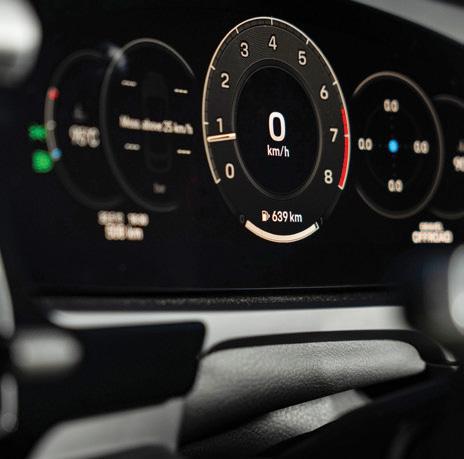
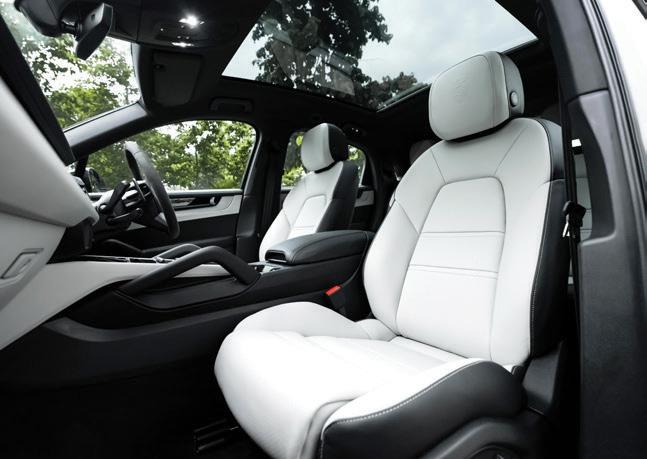
The new version gets the latest multi-function steering wheel from the 911, with the drive control knob on the steering wheel. All of these touches modernise the Cayenne. The grab handles on the centre console though have stayed the same.
POWER AND PERFORMANCE
Performance has always been the Cayenne’s strong suit. Porsche has set the benchmark for all other manufacturers to follow its recipe.
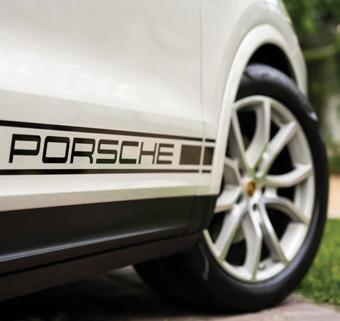
The vehicle comes with multiple engine options. The base model comes with a twinturbo V6 engine that produces 353hp. You can
NEW WHEELS (20-, 21- AND 22 INCH OPTIONS)
AND A PALETTE OF THREE COLOURS ADD TO THE PLETHORA OF VARIATIONS TO CUSTOMISE THE NEW
up the ante by ordering the Cayenne S, which has the 4.0 litre V8 engine. If you need more power, opt for the Cayenne Turbo. If you are conscious about the environment, but do not want to give up on driving pleasure, then you have the Cayenne e-Hybrid. Down the line, there will even be a GTS version with the best elements from all the trim levels.
Departing from the hotel in Guwahati, I got the full options Cayenne Coupe with the base twin-turbo V6 that produces 353hp. Its 8-speed automatic gearbox manages power to all four wheels.
The drive took us through highways, cities, small village roads and many twisting and winding sections with continuous switchbacks. The Cayenne managed the entire journey effortlessly. I drove the car with utmost ease and comfort. Even during gridlocked traffic in Shillong, the capital of Meghalaya, I could drive the car stress free. Once the traffic opened up, I got to explore the true performance potential of the car, and I came away impressed. The base Cayenne is amazing. Handling a big SUV is tricky, but this car does a brilliant job of hiding its weight; it drives almost like a sedan. Its straight-line performance is impressive and engaging.
When I picked up the pace, I preferred driving the car in Sport+ mode, as it kept the boost in the turbos at optimal mode. It also kept the gearbox more alive. More than once, I decided to change the gears via the nicely weighted padel shifters to make sure the car could deliver the power I needed, which added more appeal to the car’s character.
The NVH (noise, vibration and harshness) levels in the car are superb, and you rarely get distracted by the noise and commotion from outside. The car filters external sounds very well.
With its air suspension, the car easily managed to sail through some bad roads, and I was barely disturbed by any undulations, bumps or potholes. The Cayenne boasts proper off-roading capability, which I did not test in this car. But having done that on previous generations, I can guarantee that Cayenne has the muscle to master off-road terrain.
VERDICT
I predict the Cayenne S, with its V8 engine, will be very popular in our region. Sportscar lovers will also lap up the Turbo GT. The Cayenne is a brilliant piece of kit – a very capable vehicle that can wear multiple hats depending on the occasion.
Pricing in the UAE starts at Dhs368,900 and goes up to Dhs 811,400 for the Cayenne Turbo GT.

53 Pics: Supplied
Features / Auto Review
CAYENNE






AVAILABLE AT ALL MAJOR BOOKSTORES AND ON BOOKSARABIA.COM MOTIVATEBOOKS MOTIVATEBOOKS MOTIVATE_BOOKS www.motivatemedia.com YOUR GUIDE TO REAL ESTATE INVESTMENT LEARN TO MAKE WELL-INFORMED DECISIONS AND CREATE LASTING WEALTH N e
LUXURY HYBRIDS:
BRIDGING THE GAP
As the world experiences an accelerating transition to electrified mobility, is there still a place for luxury hybrid vehicles in the face of strong competition from fully electric vehicles?
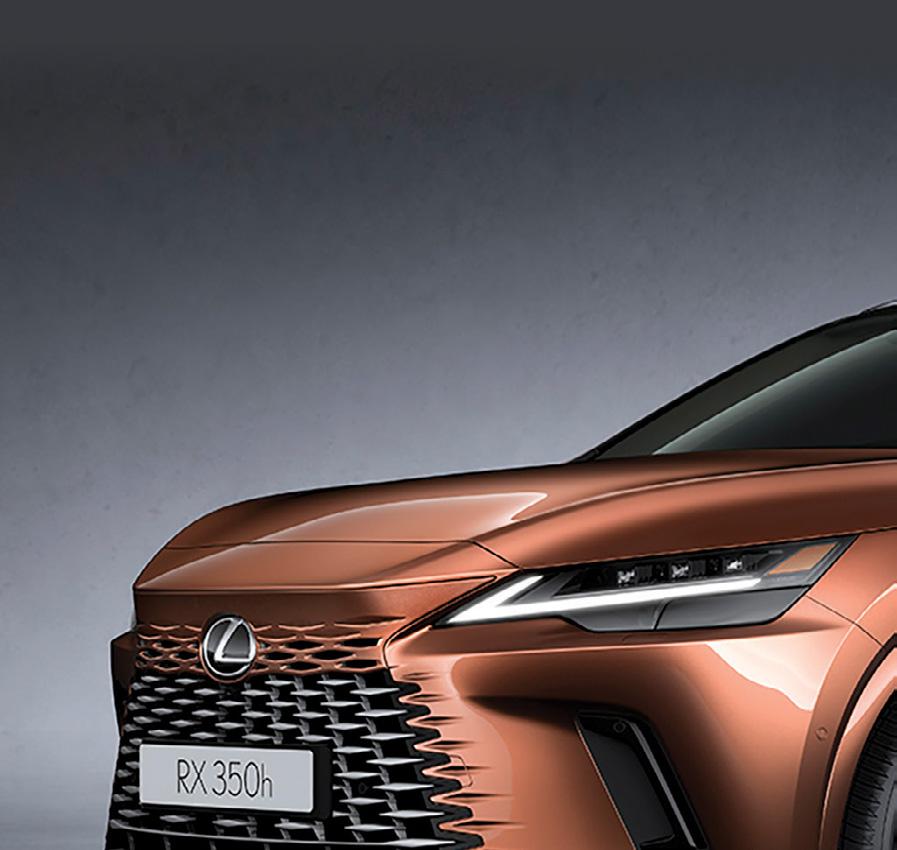
Yes, there certainly is. The demand for luxury vehicles is strong, and is only expected to grow for the foreseeable future. The global luxury car market size was estimated at $617.36bn in 2022, and is expected to reach $654.79bn in 2023, with a compound annual growth rate of 6.9 per cent expected until 2030, according to a report by Grand View Research.
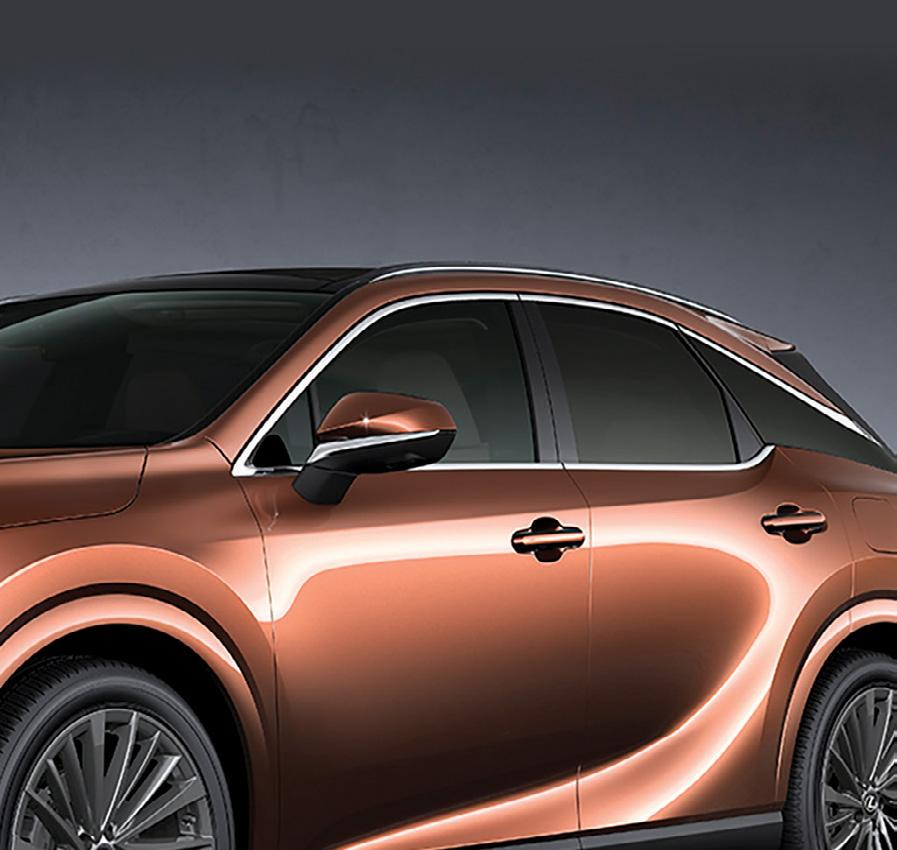
We believe that, not only is there a place for luxury hybrid vehicles, in fact they will play an











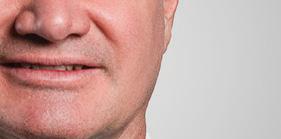

















55 Interview / Hybrids and Electrification
JACQUES BRENT, MANAGING DIRECTOR OF AL-FUTTAIM LEXUS, DISCUSSES THE ROLE OF LUXURY HYBRIDS IN THE AUTOMOTIVE INDUSTRY’S ELECTRIFICATION JOURNEY
Pics: Supplied
Interview / Hybrids and Electrification
essential role in the switch to electric vehicles, vastly reducing emissions in the transition period and acting as a vital bridge between the internal combustion engine (ICE) vehicle and the coming age of all-electric motoring.
But surely this demand can be met with allelectric vehicles currently being introduced to the market?
Not really. According to the Global EV Outlook report by the International Energy Agency, 14 per cent of all new cars sold in 2022 were electric, jumping significantly from 9 per cent in 2021 and less than 5 per cent in 2020. While these figures are encouraging, it’s clear that we are still a long way off full electrification of the automotive industry.
At the moment, the world isn’t quite ready for full electrification. Even for electric vehicles, the power must come from somewhere, and global energy infrastructure doesn’t currently have the capacity to handle a full transition to all-electric transportation in the short term, despite significant progress being made in recent years.
In addition, electric vehicles can only be fully net zero if the power used to recharge them comes from clean energy. Governments around the world still need time to build their renewable and net-zero energy grid capacities to manage the increased demands electric vehicles will place upon them.
Why are hybrids the answer to these challenges?
On average, luxury cars and SUVs have a higher carbon footprint than mid-range and economy options, due to higher expectations from buyers in terms of performance, increased weight and other factors. Given the growth in demand for luxury vehicles, it’s important to explore realistic ways to reduce those emissions.
For these reasons, Toyota and Lexus have invested heavily in several alternative forms of mobility, including EVs, hydrogen powered drivetrains, and most of all, hybrid technology, creating vehicles that greatly reduce their fuel consumption and carbon emissions through self-charging hybrid systems powered by energy recovery technology.
In addition to reducing emissions, they offer an added benefit. Hybrid systems can combine the power of the ICE engine with the instant delivery of an electric motor to deliver immediate torque and seamless acceleration for a truly
dynamic driving experience. This satisfies the expectations for luxury car buyers with regards to performance whilst reducing carbon footprints, without placing an increased demand on national energy grids.
Have hybrid models been successful for Lexus so far?
Yes, very much so. Building on the success of the Toyota Prius, the car that established low-emissions hybrid motoring in the global mass market, Lexus launched the world’s first mass-market luxury hybrid, the RX 400, in 2005. This was only the first in a range of luxury Lexus Hybrid models to come, and today the majority of luxury hybrids on the road are Lexus models.
Globally, the brand delivered its millionth hybrid in 2016, and as of May 2021, there have been over 2 million Lexus Hybrid vehicles sold around the world, demonstrating strong demand for low-emissions vehicles across the luxury segments and establishing Lexus as an early pioneer in sustainable luxury motoring.
How has the UAE market responded to these alternative forms of propulsion?
IN 2017, LEXUS HYBRID MODELS ACCOUNTED FOR JUST 3.6 PER CENT OF THE TOTAL VOLUME OF LEXUS MODELS SOLD
Driven by rising fuel prices, luxury car buyers in the UAE have been increasingly exploring alternatives to the traditional ICE engine. In a clear demonstration of this shift in attitudes, the Lexus RX Hybrid SUV outsold its ICE counterpart in 2021, making it the first Lexus Hybrid model option to do so.
2023, THEY NOW ACCOUNT FOR
In 2017, Lexus’ hybrid models accounted for just 3.6 per cent of the total volume of Lexus models sold. In 2023, they now account for 41.2 per cent of the total volume, meaning nearly half of the total number of Lexus cars sold are hybrids. Lexus Hybrid models have been massively reducing emissions amongst limousine and chauffer fleets in the UAE since 2019. The Lexus ES Hybrid is by far the most prolific model with regards to executive chauffer and taxi services such as Careem and Uber. This is because the hybrid variant achieves up to half the fuel consumption of fully petrol-powered large luxury sedans, vastly reducing emissions on these high mileage fleet vehicles, as well as greatly reducing fuel costs for fleet operators.
MEANING NEARLY HALF OF THE TOTAL NUMBER OF LEXUS CARS SOLD ARE HYBRIDS
It’s very clear to us that hybrids will be an important part of the low-emissions transition journey for at least the coming decade, and aren’t going anywhere soon. EVs are certainly coming, but it is hybrid vehicles that will pave the way.
56
IN
41.2% OF THE TOTAL VOLUME,
AUTONOMOUS ALL FOR
JENNIFER LI, VICE PRESIDENT,
 BY NEESHA SALIAN
BY NEESHA SALIAN
What is your outlook for the autonomous vehicle sector?
The autonomous driving market is expected to see tremendous growth. By 2030, the global autonomous driving market will reach $1,724bn, representing a compound annual growth rate of 98 per cent from 2021 to 2030. In particular, L4 autonomous driving is expected to dominate the market worldwide gradually and is expected to account for 88 per cent of the overall autonomous driving market globally in terms of revenue in 2030.
Tell us about WeRide and its foray into autonomous vehicles.
WeRide is a commercial-stage global company that develops Level 4 autonomous driving technologies. It aims to develop safe and reliable driverless solutions which make mobility and transportation safer, more affordable and accessible.
We offer best-in-class autonomous driving products and services, including Robotaxi,
Robobus, Robovan, Robosweeper and Advanced Driving Solutions.
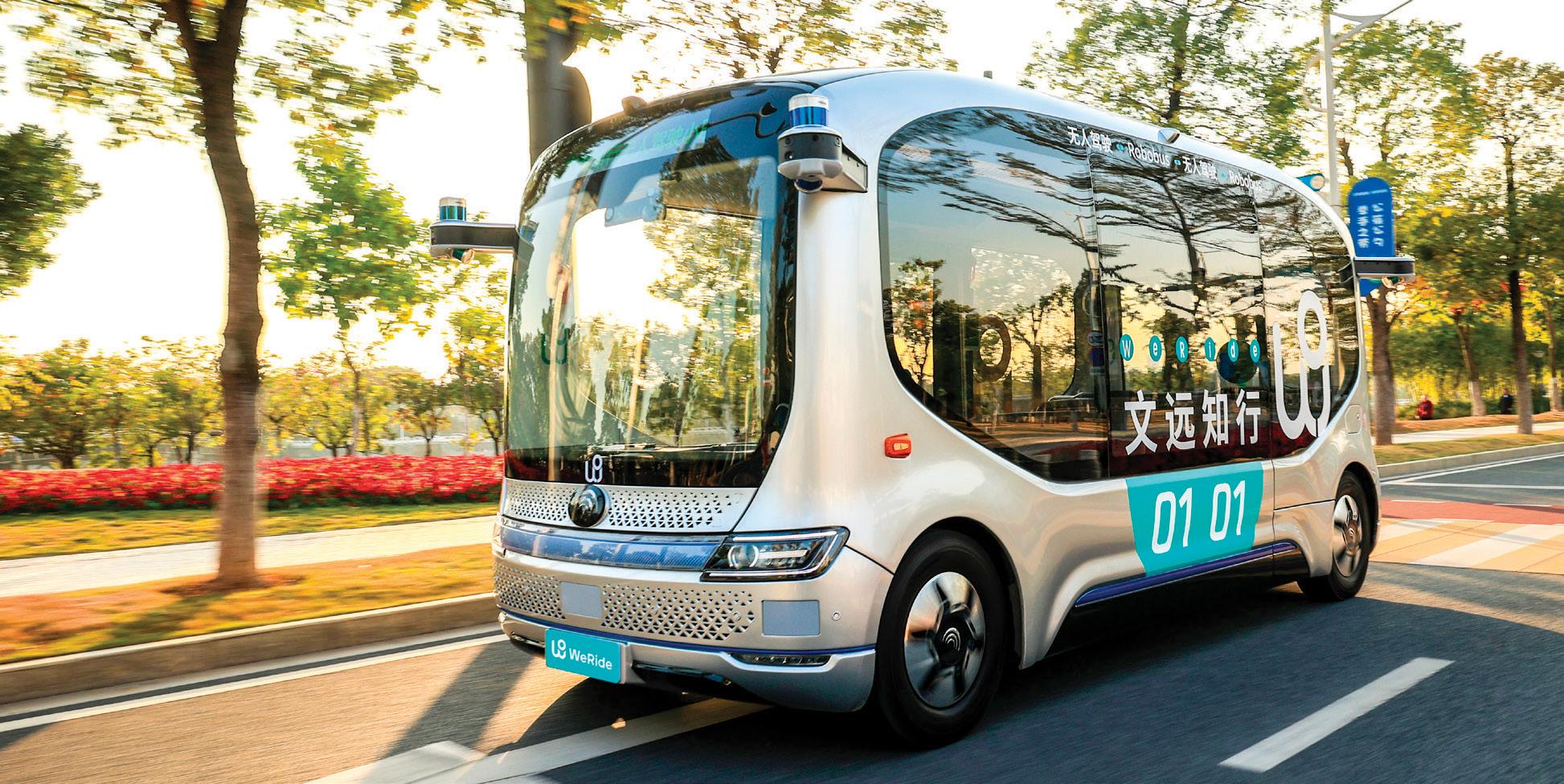
We partner with key ecosystem participants across the globe to commercialise autonomous driving products and services. The company has also forged strong alliances with leading vehicle manufacturers, Tier 1 suppliers, logistics and urban service providers, among others.
To date, the company has partnered with top-tier global OEMs (original equipment manufacturers), including Renault-NissanMitsubishi Alliance, Yutong Group and GAC Group, among others.
You recently received the UAE’s first national licence for self-driving vehicles. Tell us how it will support the company’s expansion into the region. The licence WeRide received was the first national-level autonomous driving licence in the Middle East and globally. With this licence, we will conduct various road tests and operate autonomous vehicles in the UAE.
57 Interview / Self-Driving
Vehicles
WERIDE – MENA, TELLS GULF BUSINESS HOW THE COMPANY IS FOCUSED ON DELIVERING AUTONOMOUS DRIVING TECHNOLOGY, PRODUCTS AND SERVICES TO MORE CUSTOMERS AND CONSUMERS IN THE REGION
Pics: Supplied
Interview / Self-Driving Vehicles
Company to launch the first dynamic robobus route in Saudi Arabia.
The company’s autonomous driving vehicles have been deployed to run testing and commercial pilots in 26 cities and five countries across Asia, the Middle East and North America. We have expanded our testing and operation of Robobus to 19 cities worldwide, including Abu Dhabi, Beijing, Guangzhou and Wuxi. We currently offer robotaxi rides in four cities globally.
Autonomous vehicles are considered the future of transportation. Tell us about safety and lower carbon emissions when it comes to these vehicles and how the company is addressing this.
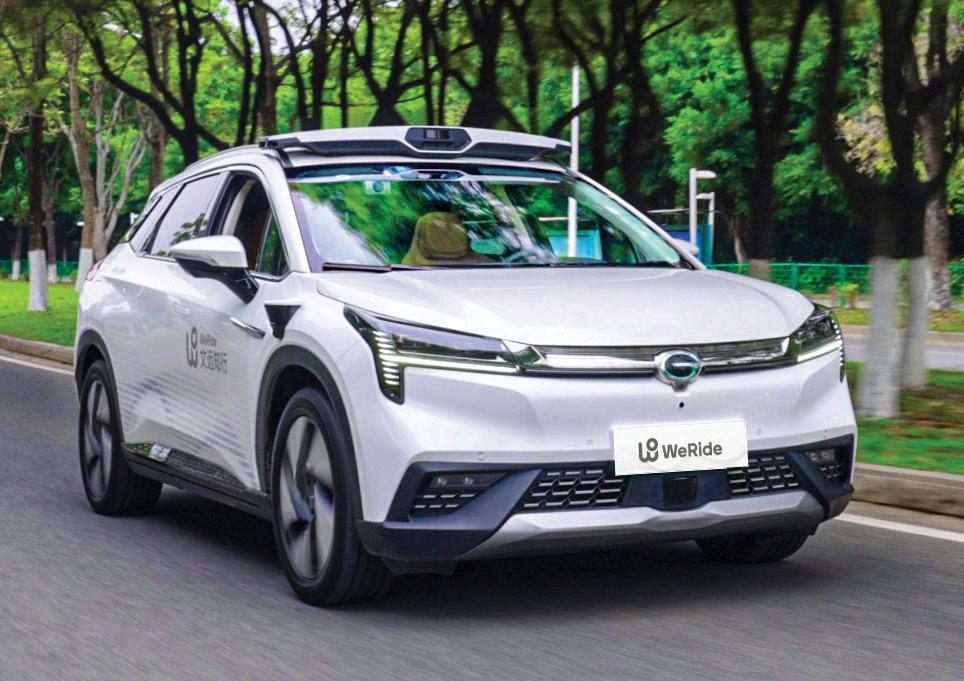
We aim to address the most pressing concerns that are challenging the movement of people and things with its autonomous driving products and services: safety, cost efficiency, environment and social impact and quality of life. For instance, our autonomous driving vehicles have not caused any safety incidents as of the end of August.
WeRide is committed to building a more sustainable future and positively changing communities. Our autonomous driving technologies enable a more efficient transportation network with higher vehicle utilisation and less congestion and alleviate any shortage of human drivers.
Compared to human operations, L4 autonomous driving can deliver over 15 per cent better fuel efficiency through optimised control, which leading to a measurable reduction in carbon emissions. Autonomous driving vehicles also render transportation more accessible to certain individuals, particularly people with mobility difficulties.
Tell us about some of the company’s key achievements.
WeRide is the world’s first pure-play autonomous driving company to obtain fully driverless test permits in China and the US. In March, WeRide officially established its presence in the China-UAE Industrial Capacity Cooperation Demonstration Zone, forming a local team to further accelerate the commercialisation of autonomous driving technology in the UAE region.
In September 2022, WeRide showcased at the 2022 Global Artificial Intelligence Summit held in Riyadh, Saudi Arabia, and announced its collaboration with the Saudi Artificial Intelligence
OUR ROBOTAXI COMPLETED
307,363 TRIPS FOR MORE THAN 180,000 PASSENGERS DURING THE FIRST TWO YEARS OF ITS LAUNCH
Our Robotaxi completed 307,363 trips for more than 180,000 passengers during the first two years of its launch. It reached a maximum speed of 115km/h and a driving range of over 400km. The robotaxi is the first to offer paid services to the public in China, having operated for over 1,200 days.
The Robobus, Robovan and Robosweeper are the world’s first of its kind for commercial operation. WeRide owns one of the world’s largest autonomous driving fleets of more than 600 vehicles, which are all electric vehicles, and its cumulative autonomous mileage has reached more than 20 million kilometres.
What can we expect to see regarding tech innovations to make autonomous vehicles mainstream?
Autonomous driving can reshape urban living and improve unit economics through cost savings. Our autonomous driving technologies enable a more efficient transportation network with higher vehicle utilisation and less congestion and alleviate any shortage of human drivers. Our autonomous driving technologies improve quality of life by removing hours spent behind the wheel. We are also the first to develop a universal autonomous driving technology platform, WeRide One, which can be directly applied in a wide range of urban-centred use cases integrating full-stack software algorithms, modularised hardware solutions and a cloud-based infrastructure platform.
What are your future plans, particularly in the MENA region?
WeRide will continue to deepen our presence in the Middle East region and bring high-quality autonomous driving technology, products, and services to more customers and consumers. Besides Robotaxi and Robobus, the company will bring more autonomous driving products and services to the MENA region, such as Robosweeper and Robovan.
58
Lifestyle 23
Shortcut to stunning skin

Homegrown brand GLIST’s ultra-luxe products are specially formulated to hydrate and nourish your skin p.62
“ We founded The Mattress Store in 2013 after noticing a market gap for home furnishing products focused on comfort and wellness. We are proud to have developed this specialty segment for the market locally in the UAE while also working with a range of international brands”
Mubashir Shaffi, co-founder and managing director of The Mattress Store
Audemars Piguet Haute Joaillerie Royal Oak self-winding watch
Audemars Piguet has introduced its very first Royal Oak models shimmering with snow-set diamonds. Conceived for smaller wrists, these timepieces in 34 and 37mm are executed in a choice of 18-carat white or pink gold and covered with an array of brilliantcut diamonds. The rare and highly technical snow setting creates a dazzling effect.

gulfbusiness.com October 2023 59 OCT


























































































MORE INFO BOOK NOW! Bi Bra A round (18 holes) at The Els Club Dubai Bratwurst Fresh pretzels Four brews Cheeky shot YOU WILL GET Country Club membership at The Els Club Dubai Brews More on-course prizes AND CHANCE TO WIN THESE PRIZES Friday, October 20, 2023 Pro-Am spot (x2) and hospitality passes for 2024 Hero Dubai Desert Classic Season passes for Emirates Dubai 7s AED 795 INCLUDING VAT* HERODUBAI DESERTCLASSICPRO-AM QUALIFIER
Snooze in style
A LOOK AT HOW THE GROWING LUXURY MATTRESS MARKET IN THE UAE HAS OFFERED A HOMEGROWN RETAILER THE CHANCE TO DRIVE LOCAL VALUE
BY MARISHA SINGH
How much is a good’s night sleep worth to you? If the price points in the mattress industry are anything to go by you might have to cough up as much as Dhs250,000.
Mattress producers and retailers are redefining the value attributed to sleep through a range of factors – the raw material used in the construction, to the technology deployed and finally, its expected lifecycle. From using premium products such as British wool, and hand-opened Austrian Moosburger horsetail, to wool blended with cashmere and silk, mattress producers are leaving no stone unturned to ensure you sleep like a king, or queen, for that matter.
Additionally, the mattress industry has also pushed the envelope when it comes to the science of sleep. Cooling gel foams, ergonomic designs that alleviate spinal pressure, hand-nested pocket springs are just some ways in which the luxury mattress industry is addressing needs of the modern sleep cycle.
GROWING POTENTIAL
This advancement in the market has seen it grow into a global industry valued at a staggering $50.61bn in 2022 and projected to reach $52.45bn in 2023. This growth is made obvious by the market size along with the range of mattresses being produced, marketed, sold, and used. Additionally,
the emergence of online sales, direct-to-consumer models, and an increasing focus on comfort, health, and wellness have transformed the industry.
One key player in this evolving landscape is The Mattress Store, a UAE-based retailer that has redefined home furnishings with its emphasis on comfort and wellness. Mubashir Shaffi, co-founder and managing director of The Mattress Store, said they worked to identify and manufacture products for local users that prioritise wellbeing. “We founded The Mattress Store in 2013 after noticing a market gap for home furnishing products focused on comfort and wellness. We are proud to have developed this specialty segment for the market locally in the UAE while also working with a range of international brands.”
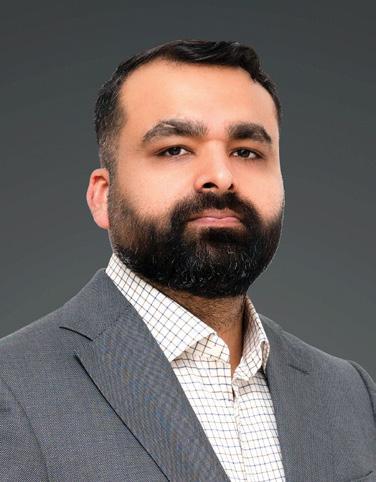
Over the last decade, The store has grown in scale and has 20 storefronts across the country, showcasing a range of globally recognised luxury mattress brands as well as high-end furniture brands. For example, mattresses at The Mattress Store start at Dhs900 and can go up to Dhs 244,000.
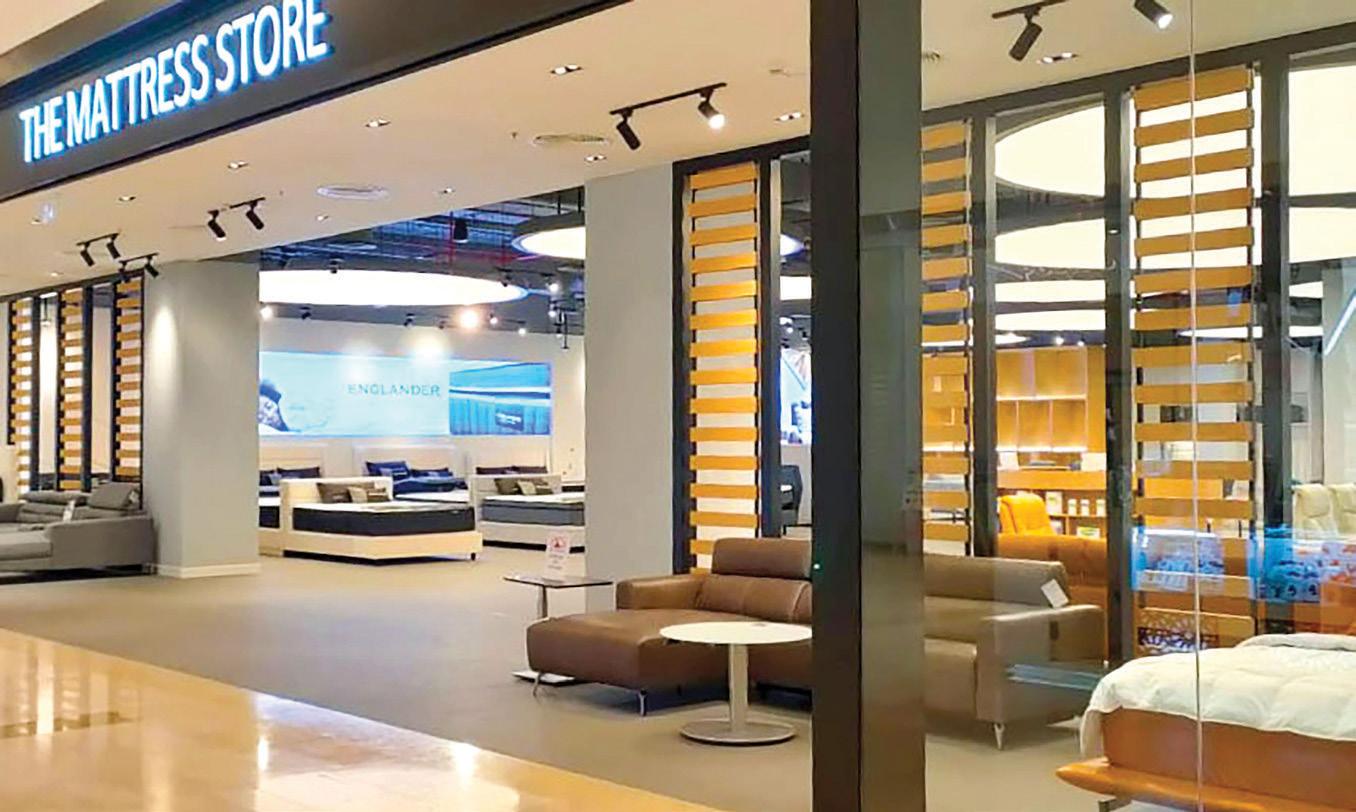
Shaffi notes, “We started by making The Mattress Store concept as a retail store to sell Englander beds and mattresses produced in our factory. As we
were Englander’s exclusive manufacturing licensee in the region and had set up a large production line, we also needed our own retail showroom concept to demonstrate our manufactured products. Our evolution has seen us go from manufacturers to becoming retailers of our own products, to retailing other brands alongside in our specialty stores.”
INDUSTRY-WIDE SHIFTS

The home-grown brand has its factory in Um Al Quwain which is the UAE’s largest mattress manufacturing facility. It produces up to 400 premium-range mattresses daily with a 200 strong workforce. While Englander beds and mattresses are manufactured locally, Hastens beds from Sweden and Vispring beds from the UK are imported, catering to diverse customer preferences.
Shaffi explains, “As part of our expansion we continued to prospect other well-known international brands’ furnishings to retail. Some of the brands we offered in our store worked very well, to the extent that we felt the need to open and operate monobrand stores just for them.”
PREMIUM FURNITURE

The store has been an early mover in the luxury furniture segment. It currently operates monobrand stores through a partnership with hyper-luxury brands like Bugatti Home, Armani Casa, Bentley Home, and Chateau D’ax. Shaffi reveals the response to these luxury offerings has been overwhelming, signalling a growing demand for premium furniture in the UAE market.
THE POST-PANDEMIC SHIFT
The Covid-19 pandemic had a huge impact on shoppers. It super-charged online shopping habits and led to a substantial increase in e-commerce sales. Shaffi notes, “As digital continues to grow and new opportunities are unlocked, we monitor trends to make access to the store and our products seamless for customers.”
Looking ahead, he sees a future shaped by trends in sleep, relaxation, wellbeing, and comfort, mirroring the health-conscious lifestyle that is gaining traction in the furniture space.
gulfbusiness.com October 2023 61 Lifestyle / Retail
Pics: Supplied
Mubashir Shaffi, MD of The Mattress Store
Primed to pamper
BY NEESHA SALIAN
Harsh, humid climes can wreak havoc on your skin, leading to sunburn, dehydration, breakouts and wrinkles. Layered skincare routines – powered by an army of products – are touted to be the ideal solution to deal with all skincare complaints (thanks to K-beauty trends). However, if you don’t have the time to go through a complicated 12-step skincare routine, nourishing sheet masks – laden with skin-loving ingredients – can work as a quick fix to ensure your skin is hydrated and glowing. Sheet masks are said to be effective because they are occlusive, which means they cover the skin and deliver a bevy of beneficial ingredients – hyaluronic acid, niacinamide, peptides, vitamins C and E, alpha and beta hydroxy acids, collagen (it’s a growing list) – that help improve the skin’s appearance and texture when used regularly.

Kary Cheng, founder and CEO of GLIST says, “Living in a region such as the UAE means that we are constantly exposed to hot and humid weather and air-conditioned environments, which dry out the skin and strip it of essential nutrients. Dehydrated skin can lead to a whole range of different skin concerns with the most common being fine lines and wrinkles, sensitivity and irritation among other challenges. This is where sheet masks can help. They are also great if you are prepping your skin for an event or special occasion.”
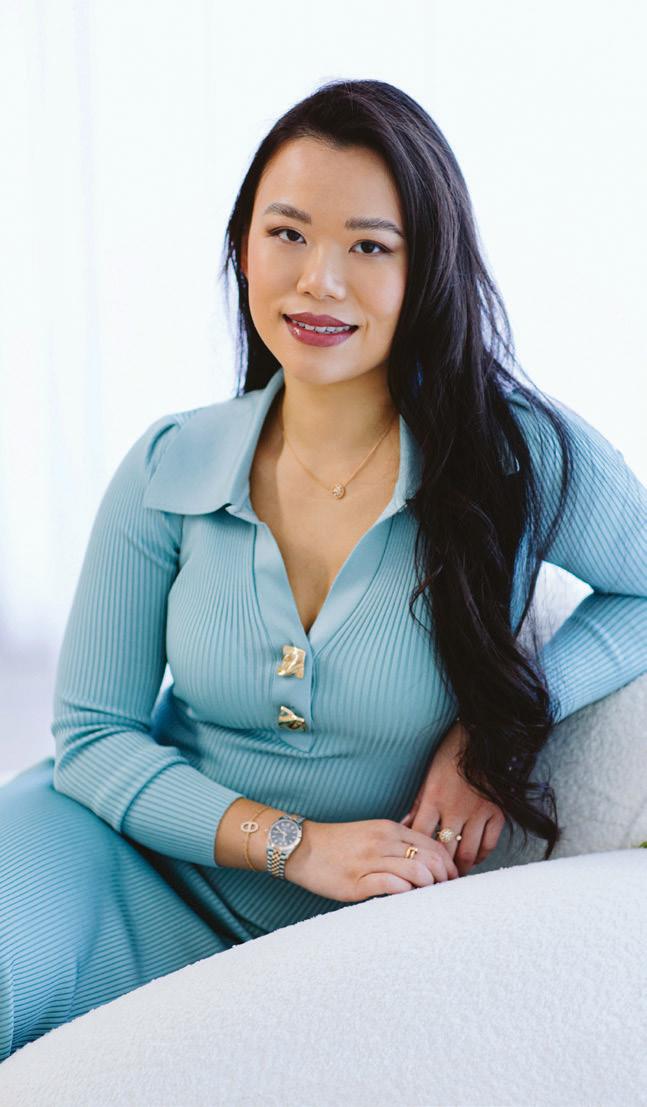
Lifestyle / Skincare gulfbusiness.com 62 October 2023
Kary Cheng, founder and CEO of GLIST
UAE SKINCARE BRAND GLIST’S ULTRA-LUXE SHEET MASKS HAVE BEEN SPECIALLY CREATED TO PROTECT THE SKIN AGAINST THE IMPACT OF HEAT AND HUMIDITY
A HOMEGROWN BRAND
Cheng’s homegrown premium skincare brand has been winning positive reviews for its range of pampering and nourishing sheet masks that are specially formulated to deal with skin issues resulting from the region’s climate.
“We’ve chosen clean and deeply hydrating ingredients to help people manage the effects of the extreme heat and weather conditions,” adds Cheng, who was inspired to start the brand because she couldn’t find similar sheet masks in the UAE that could replicate the quality and efficacy of the ones she used back home in Hong Kong.
“Every time I visited Hong Kong, I would bring back boxes of sheet masks to Dubai. It was frustrating. I always hoped that one day someone would create a skincare brand that specialises in sheet masks so I would be able to buy them locally.”
Seeing a gap in the market for such targeted products, Cheng decided to launch her own brand.
She worked closely with a leading skincare laboratory in Taiwan to create
and develop a collection of masks that was suitable for all skin types. She also ensured the masks were designed to fit all face shapes. Cheng adds, “I know how hectic people’s lifestyles are in Dubai so I wanted to create a product that fitted effortlessly into their routines to help them easily achieve ‘skin’ confidence. GLIST sheet masks need to left on for 20 minutes to take effect, revealing soft hydrated skin when the nutrient-rich mask is taken off.”
INNOVATIVE MATERIALS
Cheng attributes the efficacy of the masks to the unique formula the brand uses. “I’m proud of what we’ve created. The masks are made from high-quality, clean ingredients and are paraben-free, gluten-free, vegan and halal. We’ve also used an innovative sheet material, incorporating semi-gel, semi-cellulose technology, which has never been retailed in the region, making our sheet masks an innovative product in the Middle Eastern skincare market.”
The brand features a bespoke range of three sheet masks, each targeting specific skin concerns. These include the GLIST’s bestseller Ultra Hydro Plumping Mask. “It is packed with intensely hydrating active ingredients such as polyglutamic acid and sodium lactate to hydrate the surface and deeper layers of the skin. This creates a plumping and softening effect and promotes a more even skin tone,” explains Cheng.
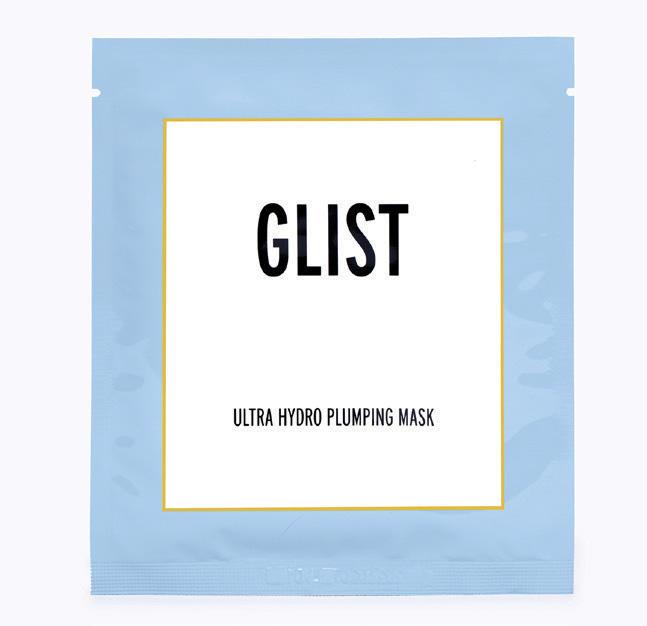
The Anti-Wrinkle Reviving Mask features a high concentration of anti-inflammatory, plant-based ingredients such as avocado oil, Jania Rubens extract, bacillus ferment, and Imperata cylindrica root extract. These active ingredients provide a variety of antiageing benefits that slow down the signs of ageing and reduce the visibility of fine lines and wrinkles. The Instant Rescue Purifying Mask comprises a rich source of natural bioactive and antioxidant ingredients such as Centella Asiatica extract and allantoin, which provide the skin with the perfect balance of hydration and moisturisation.
Cheng adds: “We also retail a hair slide, which is the perfect sheet mask companion, and have a brand-new product debuting soon in the region.”
Leveraging the growing popularity of her products in Dubai and overseas, she is looking to expand GLIST’s collection. “Since launching in Dubai in March this year, our sheet masks have been very popular and we’ve already expanded to shipping across the entire GCC region. We are currently in the R&D phase for two more products, which I am very excited about.”
Cheng’s excitement isn’t misplaced, with the global face mask market size expected to grow from $8.41bn in 2023 to $12.30bn by 2028 (Mordor Intelligence), sheet masks will continue to grow in popularity, and that bodes well for GLIST.
GLIST’s masks can be ordered from its website.

gulfbusiness.com October 2023 63
“I know how hectic people’s lifestyles are in Dubai so I wanted to create a product that fitted effortlessly into their routines to help them easily achieve ‘skin’ confidence”
Insights: Transforming for a better tomorrow
By Alexandre Ghanem
Recent research conducted by Kantar, a leading data and insights consulting company, reveals that 41 per cent of adult nicotine consumers in Saudi Arabia recognise the harm reduction potential of electronic nicotine delivery products.
To further advance the cause of tobacco harm reduction in the kingdom, a collaborative and inclusive approach involving stakeholders is crucial. This approach should be rooted in evidencebased regulations, supported by local scientific research that demonstrates the reduced risk potential of alternative nicotine delivery products.
Establishing robust quality standards for these products is essential to ensure the availability of high-quality options that cater to the evolving needs of adult consumers in Saudi Arabia.
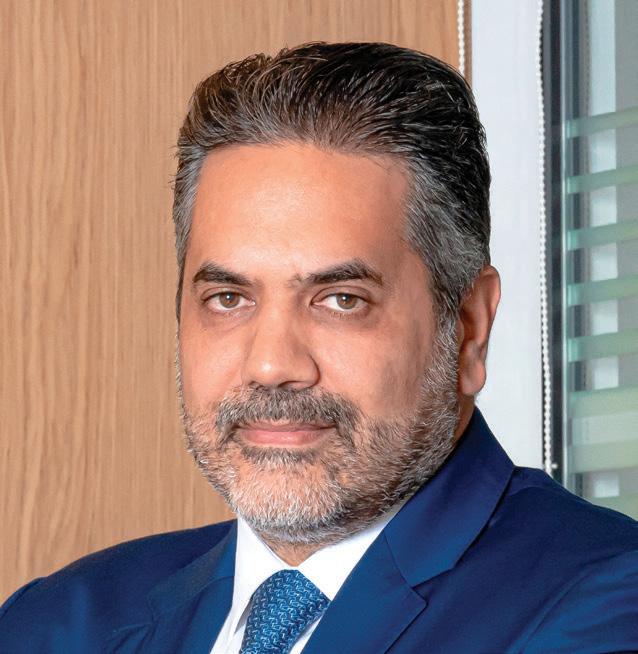
Comparative analysis
To evaluate the effectiveness of alternative nicotine delivery products and minimising the harm caused by cigarettes, it’s imperative to address prevalent misconceptions through scientific evidence.
Tobacco harm reduction hinges on the widely accepted notion that the majority of smoking-related harm is caused by inhaling toxicants from burning tobacco, not nicotine itself. Leading public health authorities and research institutions, including the World Health Organization1 and Public Health England2, estimate that electronic nicotine delivery products emit fewer and lower levels of toxicants compared to traditional cigarettes.

For instance, Public Health England states that e-cigarettes are approximately 95 per cent less harmful than smoking. This approach aligns with the efforts of BAT, a leading multicategory consumer
goods company, which invests significantly in research and development to introduce innovative alternatives to smoking and reduce its health impact.
Alternative solutions in the market
The company is clear that combustible cigarettes pose risks, and it acknowledges that the best way to avoid these risks is not to start or to quit. Consequently, it is focused on creating reduced-risk* products backed by science, which offer adult smokers less risky* alternatives to traditional smoking and has invested almost GBP350m towards the same.
In 2021, BAT also published a comprehensive report highlighting 10 years of scientific evidence on electronic nicotine delivery products. The paper featured a summary of more than 300 peer-reviewed scientific papers and other evidence published by an estimated 50 institutions over the past decade.
Currently, the company offers an expanding range of reducedrisk* products, including vapour, tobacco heating and modern oral products that cater to the diverse preferences of adult consumers.
Regulations in Saudi Arabia
Saudi Arabia’s decision to regulate and legalise the sale of alternative nicotine delivery products is commendable and represents a significant step towards advancing tobacco harm reduction. Research indicates that 37 per cent adult smokers in Saudi Arabia are open to transitioning to potentially reducedrisk products, suggesting a positive trajectory for tobacco harm reduction. To further its impact, ensuring consistent enforcement of quality standards will safeguard adult consumers and legitimate industry players.
Knowledge versus public
opinion: Perceptions about the harm of alternative nicotine delivery products stem from a disconnect between scientific knowledge and public opinion. Beliefs regarding nicotine’s role in smokingrelated harm overshadow the fact that it’s primarily the toxicants from tobacco smoke that cause harm.
While nicotine is addictive and not without risks, its presence in products that are designed to be less risky* than cigarettes can encourage adult smokers, who would not otherwise quit smoking, to choose these alternative nicotine products instead of cigarettes. Engaging in transparent dialogue, promoting research, and leveraging evidence can correct misconceptions and empower adult smokers to make informed choices.
Saudi Arabia’s journey towards tobacco harm reduction depends on collaborative, stakeholder-inclusive approach, science-backed regulations, enforcement on quality standards, dissemination of accurate information and amplification of scientific evidence. By fostering a supportive environment, aimed at encouraging the adult smokers, seeking to make informed choices, the kingdom can make significant strides in reducing the harm caused by tobacco use.
*Based on the weight of evidence and assuming a complete switch from cigarette smoking. These products are not risk free and are addictive.
1 Electronic-nicotine-and-non-nicotine-delivery-systemsbrief-eng.pdf (who.int)
2 https://www.gov.uk/government/news/phe-publishesindependent-expert-e-cigarettes-evidence-review
3 KSA Nicotine Incidence 2022, Kantar
A collaborative and stakeholder inclusive approach is required to further advance the concept of tobacco harm reduction in the kingdom
The writer is the general manager of BAT Middle East.
Celebrate Saudi’s Creative Legacy
Athar - Saudi Festival of Creativity is the Kingdom’s platform for the creative marketing community. In honour of Saudi’s creative excellence, the Athar Festival will culminate with an exclusive awards night and gala dinner.
Meet the who’s who of the Kingdom’s creative marketing industry in an informal setting, see the winners of the agency, brand and network of the decade as verified by Cannes Lions and Dubai Lynx, witness the reveal of special awards for the most creative marketers & agencies, and recognise young talent in the region.
Be part of a night to remember!
BOOK YOUR TABLE NOW - ATHARFESTIVAL.COM/AWARDS

AWARDS NIGHT & GALA DINNER

ATHARFESTIVAL.COM
CROWNE PLAZA RDC BALLROOM, RIYADH
16 NOVEMBER
Revolutionary, new out-of-home (OOH) advertising medium, powered by innovative technology.




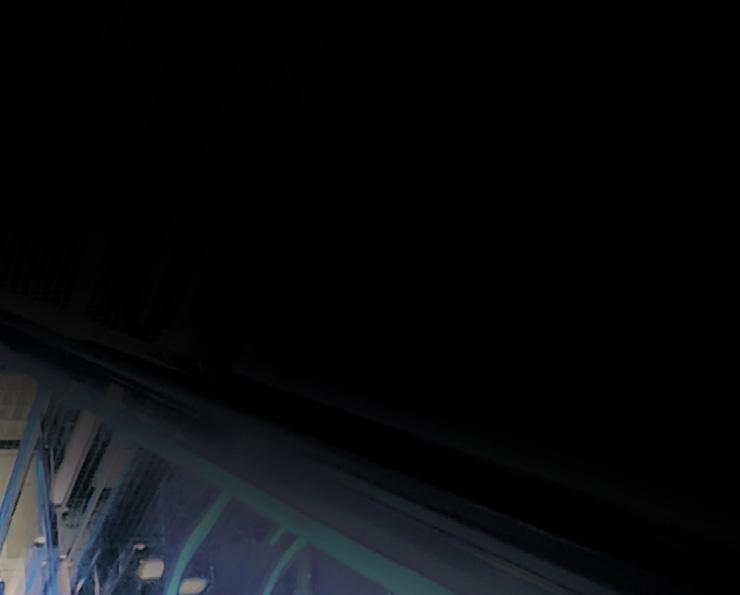

This unique and globally patented Escalator Step Branding Solution that gives brands an unrivaled opportunity to connect with audiences.



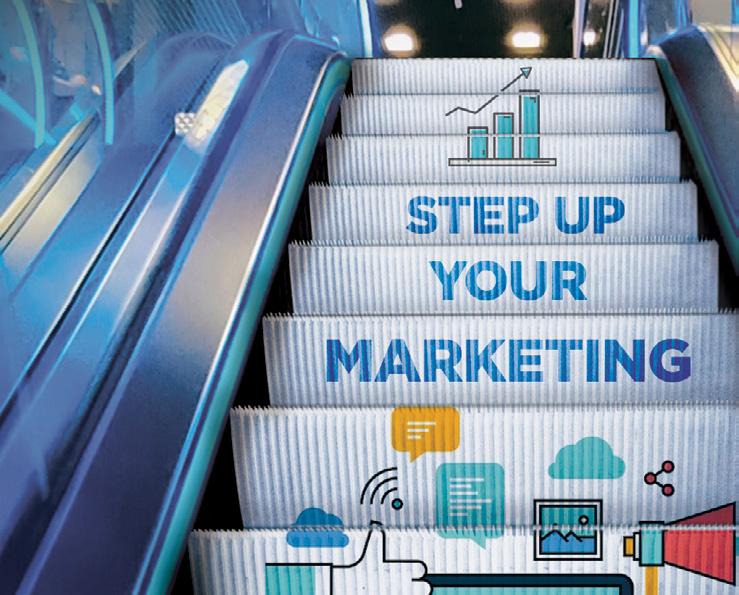









CONTACT US TODAY omran@motivate.ae
NOW AVAILABLE AT WAFI MALL
+971 4 427 3000
The SME Story
A DEDICATED HUB FOR THE REGIONAL STARTUP AND SME ECOSYSTEM
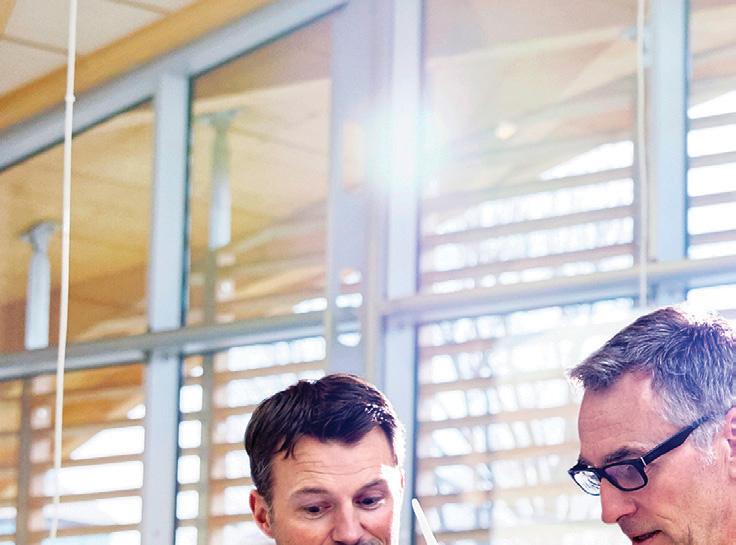
The SME Story / Sustainable Businesses
From entrepreneurship to ecopreneurship
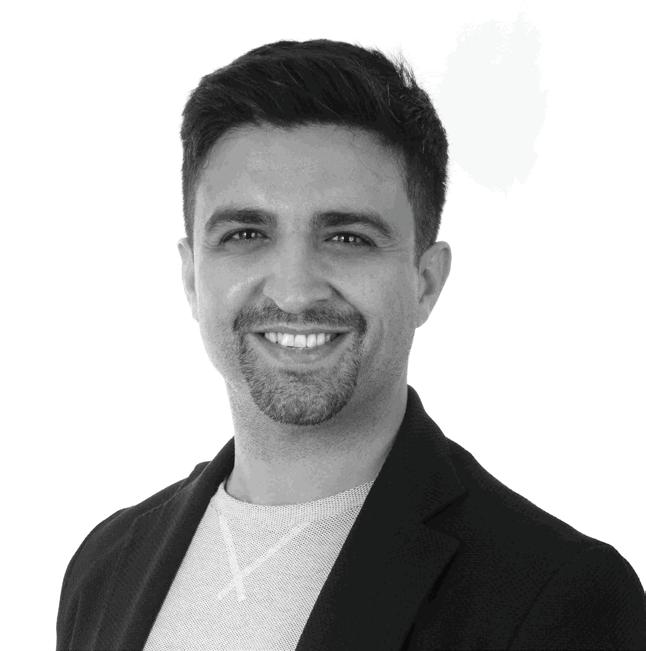
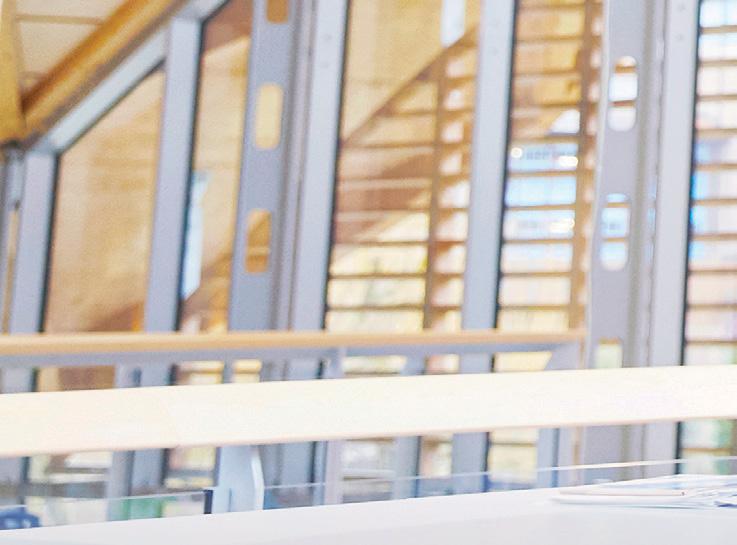

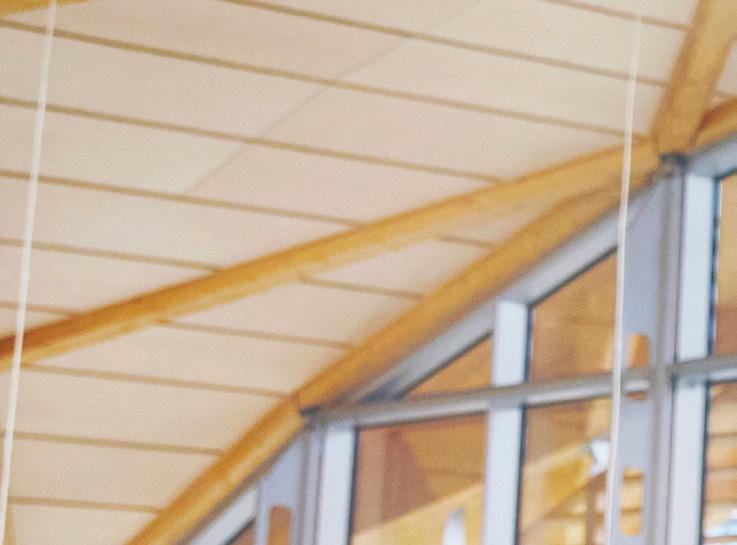
How startups can play a profitable role in the rising green tide

More than at any other time in our history, the business community is showing a genuine desire for responsibility among all its practitioners. In recent years, we have witnessed a flight of capital to sustainability-related businesses as institutional investors and funds have taken a keen interest in environmental, social and governance. In the UAE and beyond,
government regulations and incentives have encouraged practices of renewable energy production, sustainable mobility, waste management, water conservation, sustainable food production and more. This has given rise to a steady emergence of eco-friendly entrepreneurship. The ecopreneur has arrived.
A study by Wamda Research Lab showed that in 2019, there were more than 150

gulfbusiness.com October 2023 67
Pic: Getty Images
Ryaan Sharif, general manager, Flat6Labs UAE
OCT
23
IN 2019 ,THERE WERE MORE THAN 150 STARTUPS IN THE UAE THAT WERE FOCUSED ON SUSTAINABILITY. A 17 PER CENT INCREASE ON THE PREVIOUS YEAR
come? Will customers buy into the vision? Some segments such as sustainable food production and water management have small and concentrated customer bases who are set in their ways. Can the ecopreneur craft sufficient messaging to steer them towards the new thing?
THE UAE HAS SET A GOAL OF GENERATING CLOSE TO 50 PER CENT OF ITS POWER NEEDS FROM RENEWABLE SOURCES BY 2050
startups in the UAE that were focused on sustainability – a 17 per cent increase on the previous year. And in 2020, a report by Magnitt found that three of the top 10 funded startups in the UAE were similarly focused.
The UAE is the ideal proving ground for ecopreneurial business models. The government has launched funding programmes such as the Dubai Green Fund and the Abu Dhabi Catalyst Partners. It has also issued green bonds to fund sustainability projects and launched several accelerators and incubators focused on green goals, such as Dubai’s Climate Innovation Exchange and Companies Creating Change and Abu Dhabi’s Masdar City. Even larger private enterprises are getting involved.
OBSTACLES AND OPPORTUNITIES
But challenges remain for the ecopreneur. Developing sustainable technologies can be expensive, and securing adequate capital can be a significant obstacle. Regulation and policy hurdles are other examples. Next comes the recruitment of the right talent to deliver the core business offering. And finally, even if you build it, will they
The key to overcoming these challenges may lie in the stake the government has in the success of ecopreneurs. The UAE has set a goal of generating 50 per cent of its energy needs from renewable sources by 2050 – a great opportunity for the renewable energy sector. Dubai’s 20-minute city concept calls for sustainable transportation and innovations in mobility, as does the federal government’s goal to have 30 per cent of road vehicles be electric by 2030. Meanwhile, investors are also focusing on companies that can deliver electric vehicles, charging infrastructure, and mobility services. Additionally, they are focusing on solar and wind power generation, energy storage and smart-grid technologies.
THE RIGHT FOCUS
And then there is the pressing issue of food security, inflated by global supply chain disruptions. The UAE aims to reduce its dependency on food imports over the coming years, paving the way to investment opportunities in the sustainable agriculture sector. Sustainable farming practices, food waste reduction, and alternative protein sources are all areas where startups can innovate and differentiate themselves.
The UAE’s ecopreneurs can monetise the emerging landscape in several ways while also promoting sustainable business practices and inspiring the next generation of innovators. They can start a sustainable product line, building their business around eco-friendly items such as reusable bags, water bottles, or food containers. Such products have proved popular with UAE households as citizens and residents look for ways to reduce waste and live more sustainably. Businesses could also provide recycling and waste management services, capitalising on the UAE government’s focus on green initiatives. The support structure is there to guide them as they try to get their ideas off the ground. Alternatively, look up. It goes without saying that the UAE
does not lack direct sunlight – the prerequisite of viable solar technology. Solar energy is becoming increasingly popular. A startup specialising in panel installation and support services for businesses and homeowners would find itself on the ground floor of what promises to be a growth segment. And why not consider sustainable tourism? The UAE is already an established hub. Ecopreneurs could tap into this market by offering sustainable tourism experiences that promote environmental conservation and awareness.
Finally, let us not forget that established businesses across industries are looking to bolster their ESG credentials among shareholders, partners, and customers. Why not offer them green consultancy services to help draw roadmaps to sustainable practices and reductions in carbon footprint?
RIDING THE WAVE
For ecopreneurs, the future is bright. It is supported by governments, investors, and the public. Find a niche where value can be delivered while promoting sustainable business practices relevant to the UAE, and success will follow.
With the right focus, startups can ride the waves of expectation and enthusiasm all the way to regional, and even global, leadership.
gulfbusiness.com 68 October 2023 The SME Story / Sustainable Businesses
“ECOPRENEURS COULD TAP INTO THIS MARKET BY OFFERING SUSTAINABLE TOURISM EXPERIENCES THAT PROMOTE ENVIRONMENTAL CONSERVATION AND AWARENESS”
Unlocking the potential of UAE startups
Fuad Mansoor Sharaf, managing director - UAE Shopping Malls at Majid Al Futtaim Properties tells us why Launchpad X marks a major milestone in the company’s strategic focus on supporting SMEs
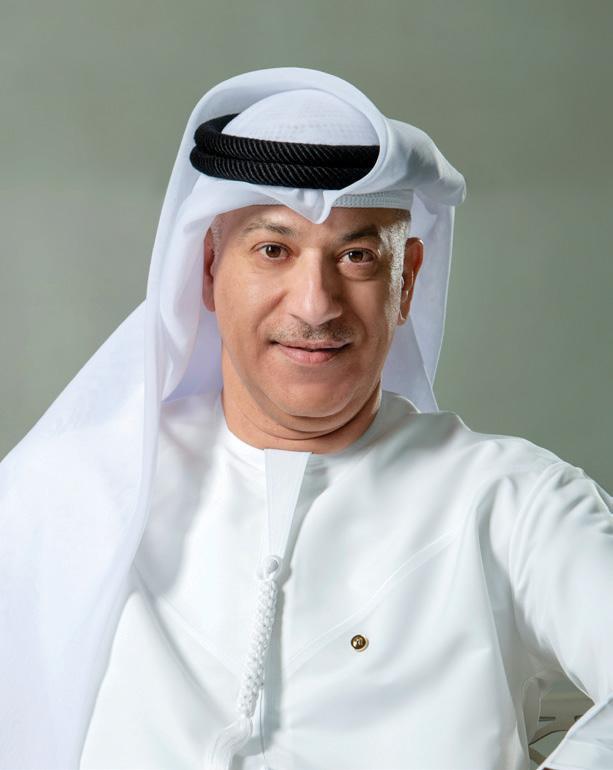 BY KUDAKWASHE MUZORIWA
BY KUDAKWASHE MUZORIWA
The contribution of small and medium-sized enterprises (SMEs) to the national economy is widely recognised in the UAE, making these businesses important drivers of growth. The number of SMEs in the country totalled 557,000 in 2022 and the government has an ambitious plan to reach one million SMEs by 2030.

THE NUMBER OF SMES IN THE COUNTRY TOTALLED
557,000 IN 2022
The sector represents more than 94 per cent of the total companies operating in the UAE and provides jobs for over 86 per cent of the private sector’s workforce, according to the UAE’s Ministry of Economy.
Government agencies and the private sector are working towards the dream of a diverse and dynamic SME sector, comprising a range of businesses and industries.
gulfbusiness.com October 2023 69
The SME Story / Retail
Supplied
Pics:
The drive to build a vibrant and thriving SME ecosystem has seen companies such as Majid Al Futtaim (MAF) creating an enabling business environment that nurtures growth, fosters innovation, and supports collaborations with other industry players.
Earlier in September, the company unveiled Launchpad X, a dynamic concept store that connects UAE startups with the unparalleled go-to-market opportunities offered by the company.
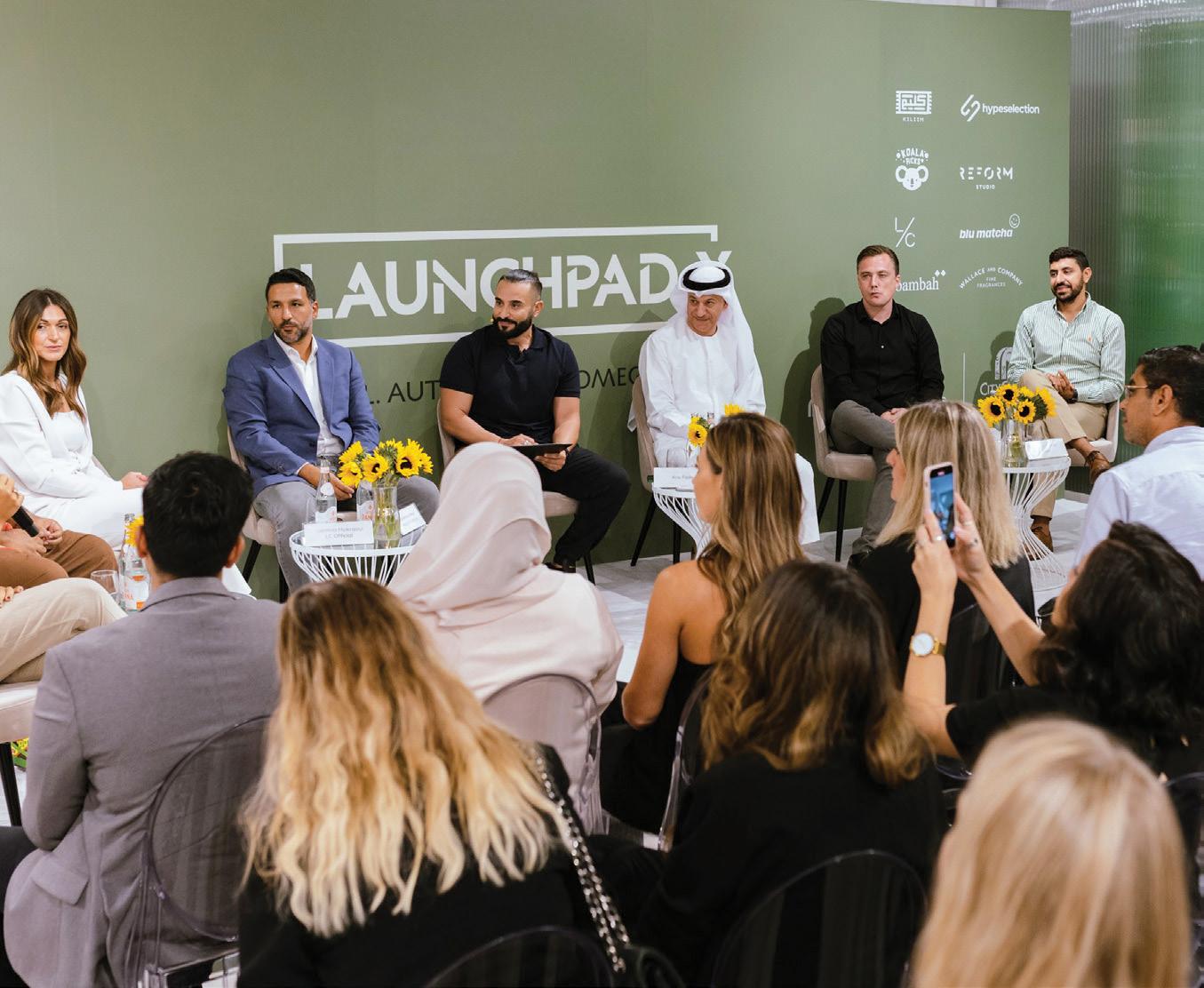
“We are confident that Launchpad X will not only connect the region’s leading startups to new opportunities that strengthen their commercial footprint but also be a catalyst for innovation and a powerful force for driving the region’s economic development,” says Sharaf.
Here are excerpts from our chat with Sharaf about the initiative.
Tell us more about Launchpad X and why MAF has opened this concept store.
Since its inception in 1992, the company has had the desire and interest to support and encourage homegrown concepts and startups. This is one of our key social responsibilities.
We launched our Launchpad Accelerator Programme in partnership with AstroLabs, Microsoft and DIFC Launchpad in 2022 to unlock value and invest in innovative startups and SMEs that benefit from the reach and scale of our ecosystem.
The new Launchpad X concept store builds on the success of our accelerator programme. It is home to a diverse range of local brands that have displayed outstanding innovation, creativity, and growth potential.
It includes local startups and winners from our initial accelerator programme such as luxury home fragrances company Wallace & Co, sustainable luxury fashion and home essentials brand Reform, and premium active and loungewear brand LC.
Healthy snack company Koala Picks, sneaker and streetwear boutique HypeSelection, premium matcha and coffee drinks spot Blue Matcha, and Egyptian sustainable and ethnic crafts brand Kiliim are also part of Launchpad X.
The programme caters to homegrown brands across segments such as fashion and lifestyle, leisure, climate tech, and community, and is a pillar of support for local entrepreneurs. Bringing in diverse brands adds value to the market and augments innovation.
SMEs and startups play a crucial role in the economy of the UAE. How will Launchpad X foster the support of the growth of these groups?
Launchpad X was set up as a platform to nurture entrepreneurship and support SMEs. We launched the second edition of our launchpad programme in May as part of Xsight Future Solutions business – MAF’s newly formed business that is aimed at accelerating the company’s digital offerings and empowering partners with scalable, end-to-end digital
services, products, and solutions. For the programme’s second edition, successful applicants in the homegrown brands category will be offered subsidised access to tangible growth opportunities, such as accelerating customer acquisition, improving operational efficiencies, and access to new revenue streams.
The edition of the programme will also include climate tech startups, offering digital twin and internet of things solutions, sustainability solutions, and innovative approaches to waste management. Winners will have the opportunity to introduce their innovative solutions within MAF’s portfolio through fully funded pilot programmes.
Do you see Majid Al Futtaim taking the initiative to other markets?
We are the biggest retailer and shopping
gulfbusiness.com 70 October 2023
The SME Story / Retail
“The new Launchpad X concept store builds on the success of our accelerator programme. It is home to a diverse range of local brands that have displayed outstanding innovation, creativity, and growth potential”
mall operator in the region. Given MAF’s extensive regional footprint, our next step is Egypt. We will be working with homegrown startups and entrepreneurs there shortly. The company seeks to work with startups whose concepts and business models prove to be profitable and successful. That is the whole idea behind Launchpad X, connecting these budding businesses with the unparalleled go-to-market opportunities offered by our shopping malls.
We offer startups and SMEs that are willing to work with us the space to expand further. Some of these players don’t have an idea how shopping malls operate and what are the requirements to be in a shopping mall.
As a shopping mall operator or developer, it is our responsibility to take these startups, hold their hands and take them to the next phase of growth.
We are looking for innovation, creativity and people who are eager and passionate to grow their businesses. More or less Launchpad X is an accelerator programme that is helping startups and entrepreneurs to grow their businesses.
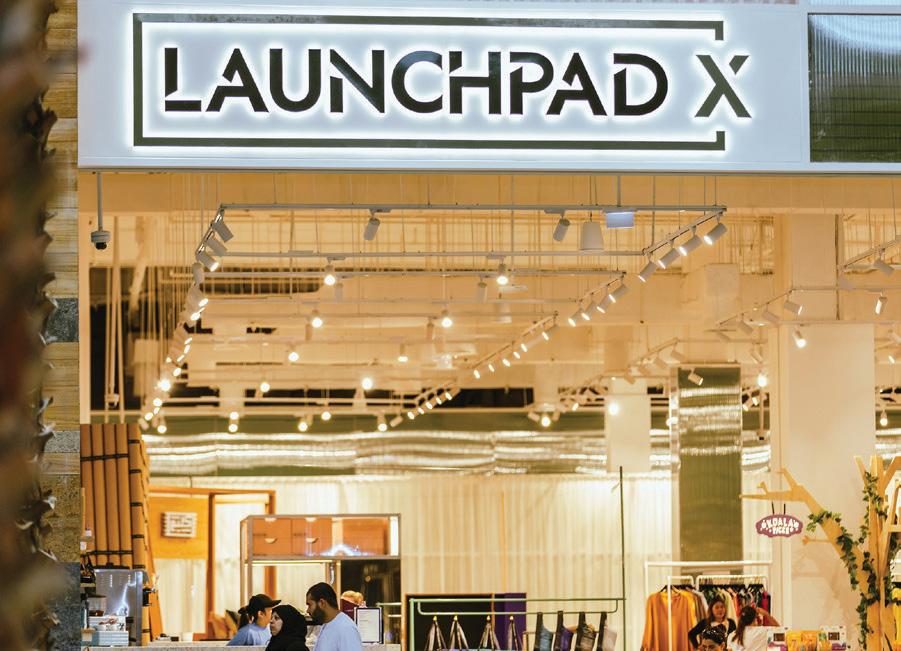
One of the things I want to highlight is that we are very open to homegrown concepts. We welcome them, grow them and that is the whole intention of our initiative. We don’t want to specify and target certain categories, segments or industries.
Technology and sustainability rank among GCC companies’ top priorities in 2023. Tell us what MAF is doing in this space.
On the sustainability front, we are a LEEDcertified company. Mall of the Emirates was awarded the Leadership in Energy and Environmental Design (LEED) Platinum certification in June. With the certification, we are even more determined in our journey towards our sustainable business commitments, which include becoming net positive in carbon and water by 2040.
We have been implementing innovative technologies across our portfolio for the past eight years and today we are seeing the results. Because of technology, today our
business is different than it was five years back. The way we operate and our attitude within the organisation has changed.
So, this is the transformation we are talking about and we are implementing sustainable practices at each level of our business.
How do you envision retail in the future and what are the trends shaping the growth of the industry?
We went through a shutdown at the height
of the Covid-19 pandemic and gradually reopened until we became fully operational. I think that experience made us learn more and made us accelerate our digital transformation while bringing our ecosystem online.
Today when we talk about the shopping mall, it’s a hybrid model between online and physical. However, the footfall at our malls remains high and we see some of our customers are very keen to come to the mall and shop in person. Both online and physical retail is growing in the UAE.
We launched the ‘Self-Checkout’ service in 2021, giving customers full autonomy and ease of shopping while augmenting the customer experience by allowing shoppers to skip the inconvenience of long queues.
The service underlines our ongoing commitment to creating seamless shopping experiences for all our customers. We are open to innovative ideas and we are witnessing a change in retailers and customers’ behaviours over the past three years.
Our customers are not the typical traditional shoppers from the past three to five years back, they have changed so we need to accommodate and cope with the emerging trends in the industry these changes.
gulfbusiness.com October 2023 71
“Given MAF’s extensive regional footprint, our next step is Egypt. We will be working with homegrown startups and entrepreneurs there shortly”
MAJID AL FUTTAIM LAUNCHED THE SELF-CHECKOUT SERVICE IN 2021, GIVING CUSTOMERS FULL AUTONOMY AND EASE OF SHOPPING
TODAY WHEN WE TALK ABOUT THE SHOPPING MALL, IT’S A HYBRID MODEL BETWEEN ONLINE AND PHYSICAL
Serving the need
We speak to a group of entrepreneurs who are helping blue collar workers with their financial needs and a startup that’s adding a personal touch to pet sitting

it first-hand, I have no doubt that we made the right choice to move our base to the UAE. Fast forward a year and a half later, we now have a fintech proposition attracting initial interest and soon going into public beta.
What are some of the key trends you see impacting your industry?

SMA: The financial technology sector is a hotbed of innovation, enabled by advances in cloud computing, blockchain, machine learning and artificial intelligence, and robotic process automation. Players are vying for the attention of consumers and corporates by simplifying the access and UI/UX (user interface and experience), enabling interoperability, and reducing transactional costs.
Tell us what inspired the launch of myZoi.




























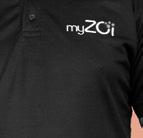






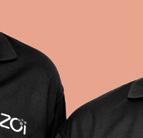






CB: During my role at SC Ventures in Singapore, I had the opportunity of interacting with the underbanked segment, which included migrant workers from countries such as Philippines, India and Bangladesh. Many of them sent 80 per cent of their earnings to their home countries, leaving very little for their personal use or savings. These stories le t a lasting impact and inspired me think of a possible solution to the challenges they faced.
A ter conducting in-depth research and talking to migrant workers, I decided to start myZoi towards the end of 2019. I called my friends, and now co-founders, Shanawaz Rouf and Nabid Hassan,
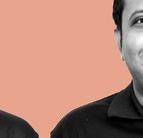

and they loved the idea. They were also instrumental in putting together a concept paper and pitching the idea to SC Ventures. A ter multiple challenging sessions and further research, our idea was given the go ahead – it was a moment that marked a turning point in our lives. I support the company as its chief product o cer.
Why did you set up operations in the UAE?
CB: We had always heard that the UAE was a country that supported startups and offered a business-friendly environment that made it easier for entrepreneurs to set up and operate their businesses. Having experienced
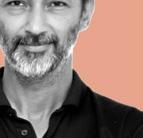

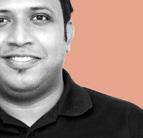
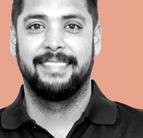
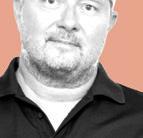



Specifically in the consumer segment, the proliferation of affordable smart phones and ubiquitous internet access, have allowed providers to reach previously inaccessible populations. There is a realisation that technology now allows developing solutions that can enable financial inclusion of underserved segments of our society.
The super app model conceives a one-stop online platform catering to the consumers’ commerce and communication needs and embraces many aspects of personal and commercial life. Such platforms are gaining in popularity in urban areas amongst both the tech savvy youngsters and increasingly with traditional laggards in the older generations. The platform approach is being successfully adapted for the underserved communities, for whom simplicity, cost e ectiveness, and choice in their day-today transactional needs are previously unknown luxuries.
gulfbusiness.com 72 October 2023 INTERVIEW
(From left to right) Arsalan Siddiqui (AS), Christian Buchholz (CB), Shanawaz Rouf (SR), Nabid Hassan (NH), and Syed Muhammad Ali (SMA), founders of myZoi
Last but not least, these advances entail increased financial crime risk –particularly the risk of fraud for the new ‘digital immigrants’. It is the responsibility of technology providers to assume the responsibility of eliminating cyber fraud risk to the extent possible from their offerings. In addition, they can differentiate themselves by making efforts to add elements of financial education and literacy for their more vulnerable users.
As CEO, tell us how you intend to use the capital raised in the coming months.
SMA: This funding forms part of myZoi’s initial raises after the seed round to enable continued product and corridor development post its commercial go-live. Prior to this round the entire funding has been through SC Ventures.
The company raised $14m from SC Ventures and SBI Holdings, and obtained two regulatory licenses from the Central Bank of the UAE. These achievements mark a significant milestone in our mission to enable, digitise and simplify access to essential financial services for a growing segment of migrant workers.
We are preparing for its full commercial launch by the end of 2023. We’re also looking to expand into other GCC markets and beyond. The team has plans to roll out community educational initiatives that will deepen our understanding of the people who are using our product. The development process is a continuous cycle and we will always aim to improve to meet the needs of our users and make their lives easier.
members to secure payroll mandates and then support their employees’ transition to myZoi as well as activation to use the full suite of myZoi’s financial services and educational content. We aim to reduce the transaction cost of migrant remittances to less than 3 per cent, in line with the UN’s Sustainable Development Goals 2030 (10c), while providing corporates with a digitised, safe and efficient way to process payroll.
For end users – myZoi is a tech led solution and everything from onboarding to KYC and real-time transfers is automated and digitised to enable seamless and simple experience. Our primary goal is to enhance the user experience by making it cleaner, more visual, and simpler at every stage. This includes ongoing education and digital literacy seamlessly embedded into the consumer journey. Behind the scenes, the back-end infrastructure is designed to enable efficiency — we try to keep everything automated, minimise service time or make it near instant, building in automated controls around cybersecurity, including fraud detection which is a critical aspect for the underserved.
offers to the right client at the right time and be able to measure the output to optimise.
As the product lead, how have you aligned the product design with the needs of your audience?
NH: My approach to product design at myZoi has been significantly shaped by personal experiences, particularly those involving my uncle, who was a bluecollar migrant worker in Al Ain, UAE. He diligently sent money back home to support my aunt and cousins, only to have those funds unfairly withheld by a family member. I witnessed first-hand the far-reaching consequences this had on our family.
These personal encounters with the struggles faced by migrant workers have influenced our approach to product design. Our design philosophy revolves around human-centered principles, placing a strong emphasis on user feedback and an iterative development process. It involved preliminary, rough concepts and prototypes, which we subjected to rigorous testing and user feedback. We continuously refine our solutions, gradually progressing towards more sophisticated prototypes that undergo further scrutiny through user interviews. This meticulous approach enables us to create user experiences that are intuitive and practical, specifically tailored to individuals with limited tech literacy.
As myZoi’s COO,
how are you making things simpler for a generation that is not digitally savvy?
SR: The company is developed on a B2B2C model. The team works with (corporate) employers of low-income
Being able to deliver continuously high standards of service as we scale is another area that we focus on. In addition to multiple languages on offer for our client segments, we also aim to have data analytics and marketing technology, which enables to serve personalised
By adhering to this user-centric methodology, we have developed solutions that genuinely cater to the needs of our target audience and seamlessly align with the real challenges faced by those we aim to assist.
You are the country head for the company’s Pakistan operations. Tell us about your role.
AS: My role is to form strategic partnerships with entities that share a similar goal and passion for financial literacy and financial inclusion. My focus in particular is on enhancing the myZoi proposition for the beneficiaries, which are families of low-income migrant workers based here.
gulfbusiness.com October 2023 73 The SME Story
“PERSONAL ENCOUNTERS WITH THE STRUGGLES FACED BY MIGRANT WORKERS HAVE INFLUENCED OUR APPROACH TO PRODUCT DESIGN”
MYZOI AIMS TO REDUCE THE TRANSACTION COST OF MIGRANT REMITTANCES TO LESS THAN 3 PER CENT, IN LINE WITH THE UN’S SUSTAINABLE DEVELOPMENT GOALS 2030
What inspired you to start PetBae?
The driving force behind the creation of PetBae was a deeply personal experience. It started when I rescued a pitbull named Renzo, who su ered from severe anxiety. Traditional boarding facilities exacerbated his anxiety, leading to an uncomfortable experience for him. An unfortunate incident occurred when I le t Renzo at a kennel, and he contracted a virus from another sick pet during his stay, causing him to fall seriously ill. Frustrated with the existing options, I turned to a friend who o ered to care for Renzo in a home-based environment, where he felt much happier and at ease. To ensure my friend’s motivation to look a ter Renzo, I compensated him financially, even though he was willing to do it for free. It was this personal journey that sowed the seeds for PetBae to address the need for a reliable and home-based pet sitting platform.
What makes PetBae an innovative platform, and why did you choose Dubai to launch it?
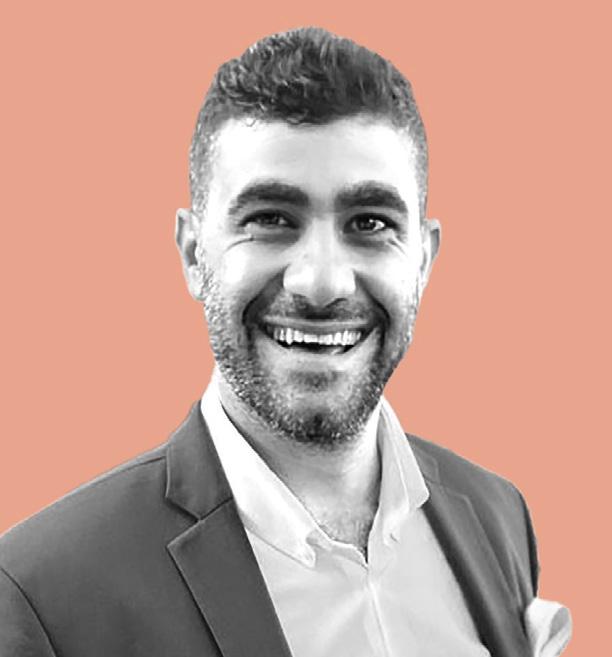
PetBae stands out as a platform due to its streamlined process for booking home-based pet sitters in just a few clicks. By carefully vetting and onboarding sitters, we take the burden o pet owners and match them with suitable caregivers based on their preferences, locations, and specific pet requirements. Ultimately, a majority of pets prefer to stay in their own home environment
and no other company in the UAE or the Middle East has digitised this process to the extent we have. As for launching in Dubai, it was a strategic choice because Dubai o ers a diverse and pet-loving community, providing an ideal market for PetBae’s services. Although pet sitting is how we will scale up PetBae, eventually we will be adding all other pet categories such as rabbits, reptiles and fish with other services such as pet taxis, dog training, online stores and more.
Tell us about your business model.
PetBae operates as a C2C website and app, connecting pet owners with vetted individual pet sitters who can care for pets in a home environment. We handle the financial aspect, collecting the payment from pet owners and releasing 80 per cent to the sitter upon successful completion of the booking.
Signing up with PetBae is entirely free for both pet owners and pet sitters. Aspiring pet sitters need to go through an application process that includes an
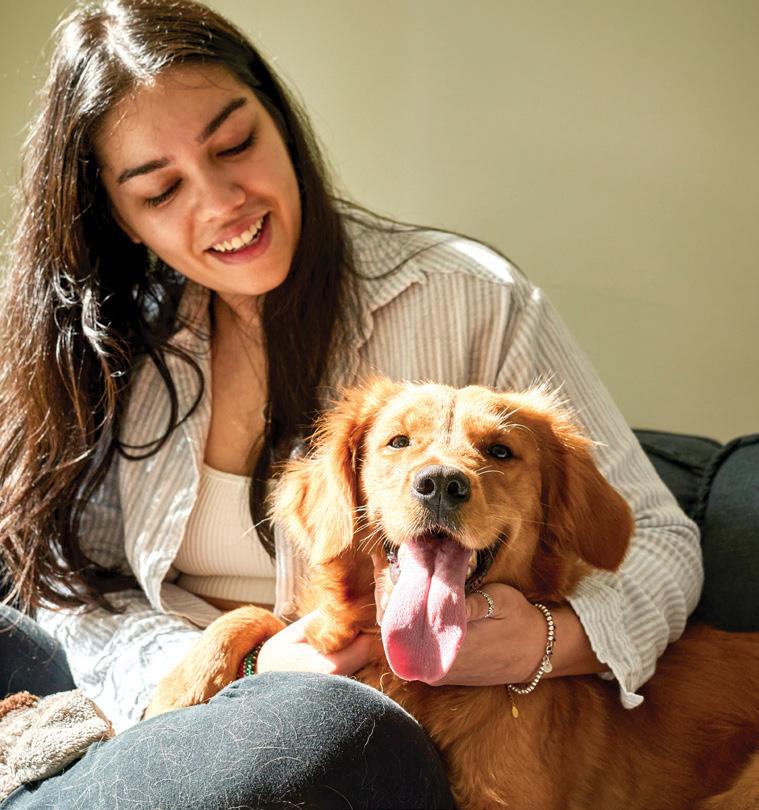
experience quiz, attaching their Emirates IDs, and a possible video call for verification. Upon meeting PetBae’s standards, they are approved and listed on the platform. For pet owners, the sign-up process is straightforward but necessary, as they need to add their pets’ details, which helps in finding the perfect match when searching for a pet sitter.
Tell us about the kind of pets you’ve taken care of.
While we primarily cater to cats and dogs, PetBae has had bookings for various other pets, including rabbits, birds, fish, and even plants. The process of hiring a pet sitter through PetBae is e ortless. Users select the type of pet, service, and input their travel dates on the homepage. The platform then presents a list of pet sitters that match their filters based on interests and proximity. A ter initiating contact or directly booking a sitter, the integrated chat feature allows easy communication, sharing of images, videos, and other information throughout the booking period, while PetBae’s customer service remains available for any assistance needed.
What are your future plans for the business?
Our future plans for PetBae involve expanding our services beyond pet sitting to create a comprehensive pet super app. We aim to become the one-stop-shop for all pet-related needs at home, including dog training, grooming, e-commerce, pet taxi services, and more. With ambitions to build a strong and connected community of pet lovers across the GCC, Middle East, and parts of Europe, we are focused on making this vision a reality.
gulfbusiness.com 74 October 2023 The SME Story
“PETBAE STANDS OUT AS AN INNOVATIVE PLATFORM DUE TO ITS STREAMLINED PROCESS FOR BOOKING HOME-BASED PET SITTERS IN JUST A FEW CLICKS”
Joey Chaaya, founder, PetBae
A Constellation of Distinction
Imagine a vision brought to life through different sparks of light to form a beautiful constellation that shines around you, with you in mind. A constellation where every detail is handcrafted with each stroke, creating a variety of decors that grace your homes.
Signature Living by Majid Al Futtaim
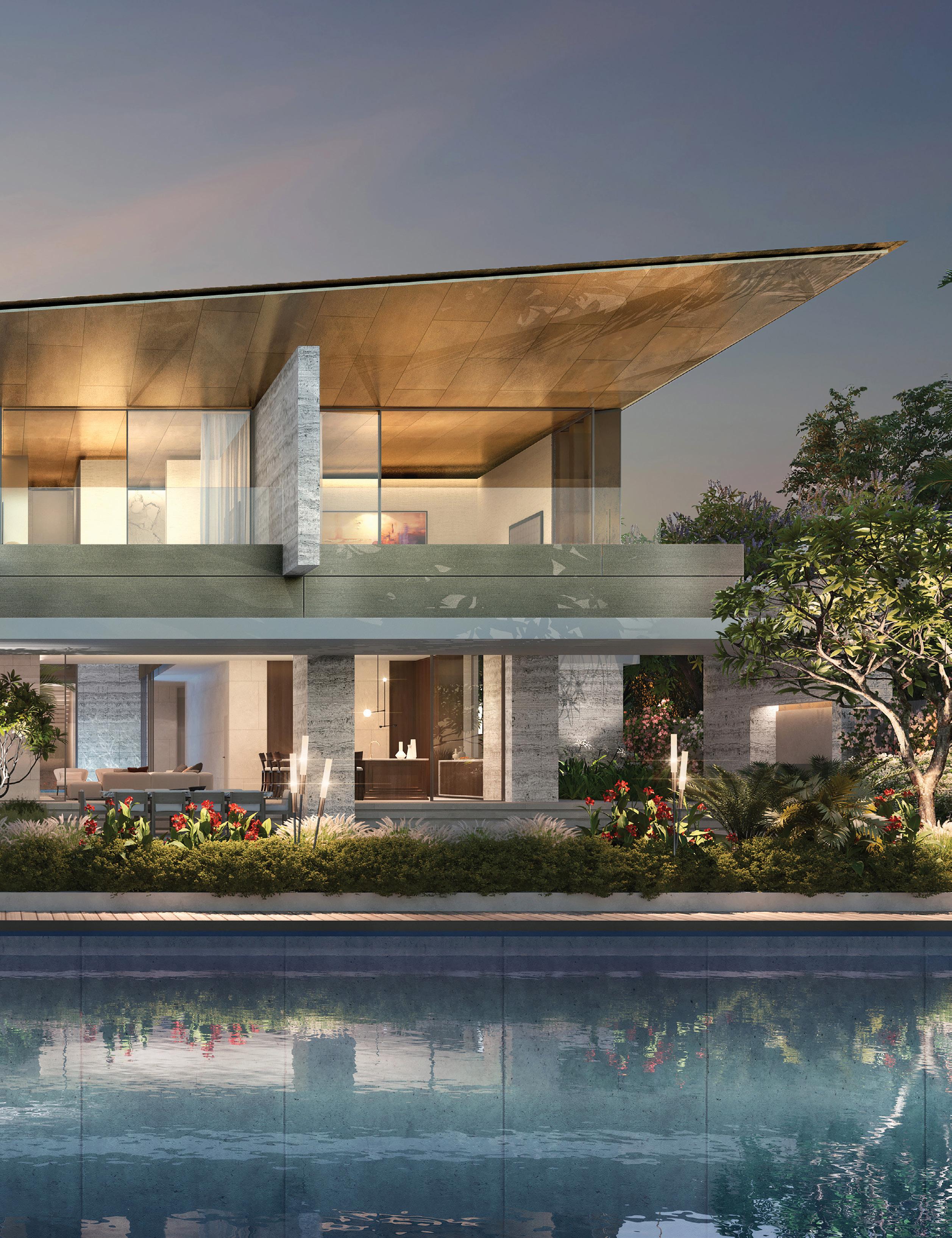
800GHAF




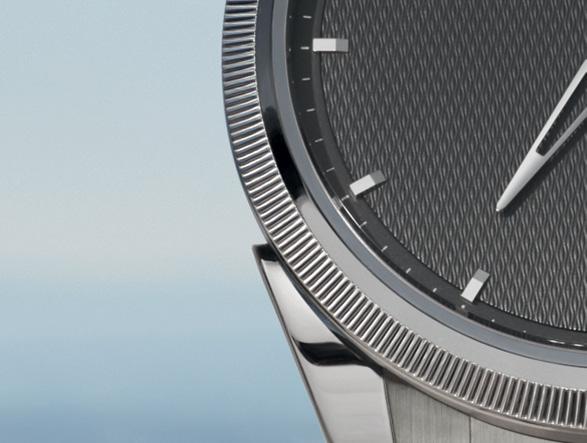
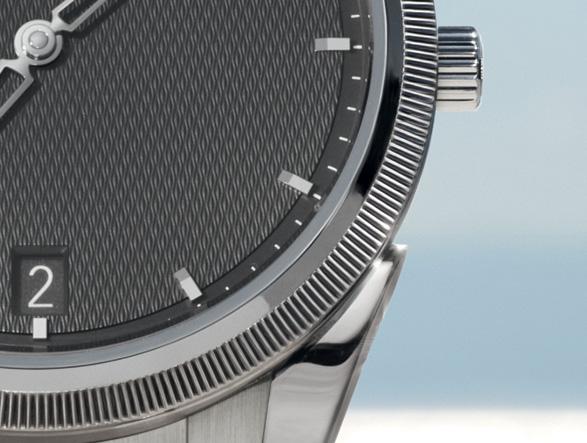

































































































































 BY KUDAKWASHE MUZORIWA
BY KUDAKWASHE MUZORIWA



 By Mohammad A Baker, deputy chairman and CEO of GMG
By Mohammad A Baker, deputy chairman and CEO of GMG







 Alan O’Neill Managing
Alan O’Neill Managing



















































































































 BY MARISHA SINGH
BY MARISHA SINGH

























































 BY NEESHA SALIAN
BY NEESHA SALIAN


































































































 BY KUDAKWASHE MUZORIWA
BY KUDAKWASHE MUZORIWA

















































































